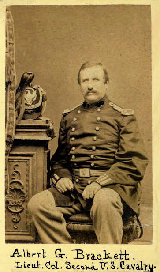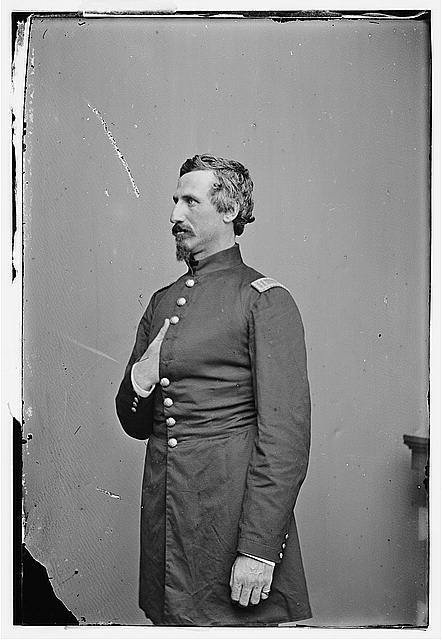History
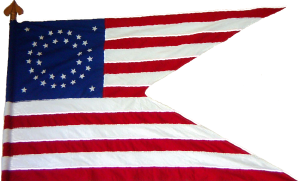
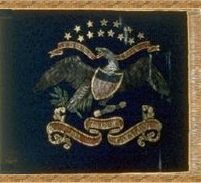
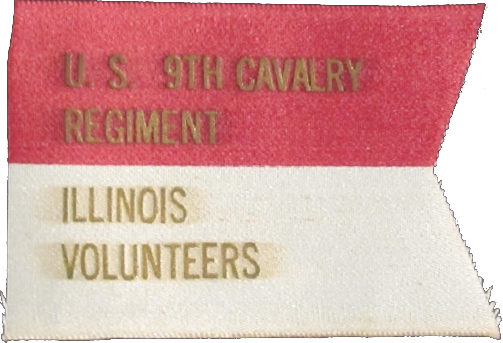
Volume:
- Brackett Cavalry Regiment
- Czechs were in on the ground floor
- Adjutant General's Report
- Col Albert Gallatin Brackett
- Czech National Cemetery in Chicago
- Dennis C. Schurr Collection - very interesting documents
- Photographs of soldiers
- Edward A. Davenport - author of a book about the history of the regiment
- Veteran ribbons
- Grand Army of the Republic in Illinois
- Civil War Magic Lantern Slide collection
- Sword Presentation to Colonel Burgh
- Sword Presentation to Major A. R. Mock
- General Samuel R. Curtis
- March on the city Helena AK - photos
- Last Cavalry Campaign of the Civil War
- Private Benjamin Frank Price, Company M
- Private Dwight L. Talcott, Company I
- Roll of Honor
- Died at Andersonville Prison
- Died at Cahaba Prison
- Died at other Prisons
- Andersonville Prison
- Remembering the backbone of the Civil War
Brackett Cavalry Regiment, Western Cavalry
Overview:
Organized at Camp Douglas, Chicago, Ills., and mustered in November 30, 1861. Moved from Chicago to Benton Barracks, Mo., thence to Pilot Knob and to Reeve's Station on Big Black, February 16-27, 1862. Attached to Steele's Division, District of Southeast Missouri, to May, 1862. Unattached Cavalry Curtis' Army of Southwest Missouri, to July, 1862. District of Eastern Arkansas, Department of Missouri, to December, 1862. 2nd Brigade, 3rd (Cavalry) Division, District Eastern Arkansas, Department of the Tennessee to January, 1863. 2nd Brigade, 2nd Cavalry Division, 13th Army Corps, Dept. of the Tennessee, to April, 1863. 2nd Brigade, 1st Cavalry Division, 16th Army Corps, Department Tennessee to June, 1863. 1st Brigade, 1st Cavalry Division, 16th Army Corps to August, 1863. 2nd Brigade, 1st Cavalry Division, 16th Army Corps to April, 1864. 3rd Brigade, 1st Cavalry Division, 16th Army Corps to June, 1864. 1st Brigade, Cavalry Division, District West Tennessee, July, 1864. 2nd Brigade, 1st Cavalry Division, District of West Tennessee to November, 1864. 2nd Brigade, 5th Division Cavalry Corps, Military Division Mississippi to July, 1865. District of Alabama to October, 1865.
Service:
Moved to Jacksonport, Ark., March, 1862, and duty there till June. Action at Cotton Plant May 14. Village Creek May 21. Reconnoissance from Jacksonport toward Augusta and Des Arc May 26-29. Cache River Bridge May 28. Galloway Farm, near Jacksonport, June 2. Waddell's Farm, Village Creek, June 2 (Cos. "A," "C," "K," "M"). Near Jacksonport June 12 (Detachment). Reconnoissance toward Augusta June 23 (Co. "F"). March to Helena, Ark., June 26-July 14. Stewart's Plantation, Village Creek, June 27. Duty at Helena till April, 1863. Expedition from Helena to Moro November 5-8, 1862 (Detachment). Clarendon August 13. Marianna November 7. Lagrange November 8. Expedition from Helena to Grenada, Miss., November 27-December 5. Yocknapatalfa, near Mitchell's Cross Roads, Miss., December 1. Oakland December 3. Expedition to Duvall's Bluff January 9-16, 1863. Moved to Memphis, thence to Germantown, Tenn., April 4-11. Expedition from Lagrange to Senatobia, Miss., May 21-26. Senatobia May 23 and 25. Operations in Northwest Mississippi June 15-25. Near Holly Springs, Miss., June 16-17. Jackson, Tenn., July 13. Scout from Germantown July 16-20. Coldwater July 28. Expedition from Memphis to Grenada, Miss., August 12-23. Grenada August 17. Expedition from LaGrange to Toon's Station September 11-16. Montezuma September 16. Operations in North Mississippi and West Tennessee against Chalmers October 4-17. Lockhart's Mills October 6. Salem October 8. Ingraham's Mills, near Byhalia, October 12. Wyatt's, Tallahatchie River, October 13. Operations on Memphis and Charleston R. R. November 3-5. Colliersville November 3. Moscow November 5. Operations on Memphis and Charleston R. R. against Lee's attack November 28-December 10. Saulsbury December 3. Wolf Bridge, near Moscow, December 3-4. Scout from Colliersville December 4. Near Colliersville December 13 (Detachment). Near Moscow December 27. Colliersville December 27-28. Oak Ridge January 16, 1864. Smith's Expedition from Colliersville to Okolona, Miss., February 11-26. Near Okolona February 18. Aberdeen February 18. New Albany February 18. West Point and New Albany February 20. Okolona February 21. Ivey's Hill, near Okolona, February 22. Regiment veteranized March 16, 1864, and Veterans on furlough till April 27. Sturgis' Expedition into Mississippi June 1-13 (Detachment). Brice's, or Tishamingo Creek, near Guntown, June 10. Ripley June 11. Smith's Expedition to Tupelo July 5-21. About Pontotoc July 11. Camargo's Cross Roads, Harrisburg, July 13. Tupelo July 14-15. Old Town Creek July 15. Smith's Expedition to Oxford, Miss., August 1-30. Tallahatchie River August 7-9. Hurricane Creek and Oxford August 9. Hurricane Creek August 13-14 and 19. Operations in West Tennessee and Alabama against Hood, and Nashville (Tenn.) Campaign November December. Expedition from Memphis to Moscow November 9-13. Shoal Creek November 11. On line of Shoal Creek November 16-20. Lawrenceburg November 22. Campbellsville November 24. Columbia, Duck River, November 24-27. Mt. Carmel November 28. Franklin November 30. Battle of Nashville December 15-16. Pursuit of Hood to the Tennessee River December 17-28. Brentwood and West Harpeth River December 17. Spring Hill December 18. Franklin Pike, Curtis Creek and Rutherford Creek December 19. Columbia December 20. Lynnville and Richland Creek December 24. Anthony's Gap, near Pulaski, December 25. Expedition from Eastport to Russellsville, Ala., February 19-28, 1865. Tuscumbia February 20. Duty at Huntsville and Florence, Ala., Eastport, Miss., and Gravelly Springs, Ala., till June. Moved to Iuka, Miss., June 23, thence to Decatur, Ala., July 4. To Montgomery and Selma, Ala., thence to Gainesville August 20. Duty in District of Montgomery, Ala., till October. Mustered out at Selma, Ala., October 31, 1865.
Regiment lost during service 1 Officer and 45 Enlisted men killed and mortally wounded and 6 Officers and 241 Enlisted men by disease. Total 293.
Czechs were in on the ground floor
In the 9th cavalry regiment served also Czechs. Namely Vojtech G. Pinter , Jakub Kakuska, Mathias Skoblik and Joseph Dobesh Voda. The first two are mentioned in the book of Josef Cermak - The Civil War history including experience of Czech soldiers.
Many countrymen fought in this war under different regiments. As Cermak wrote - it is evident from all, that American Czechs despite their humble count have sent considerable number of their sons out to the fight, thereby presented their clearest proof, that also them, citizens of this free republic, performed their duty and American nation will be always grateful to them. Keep these soldiers in honourable memory!
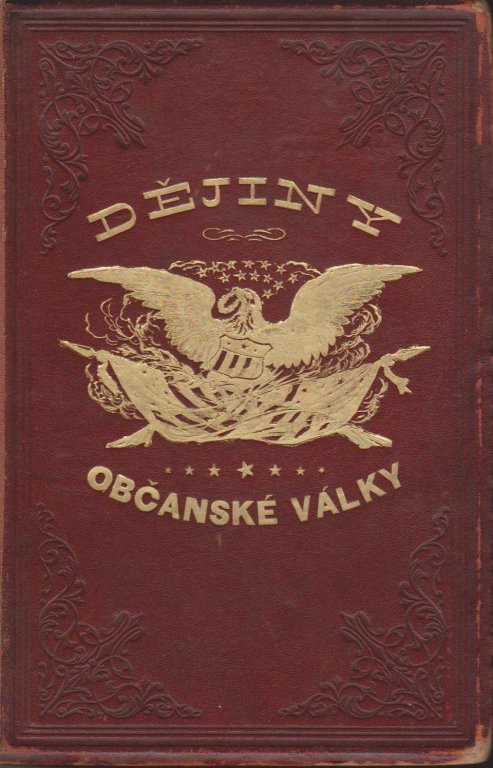
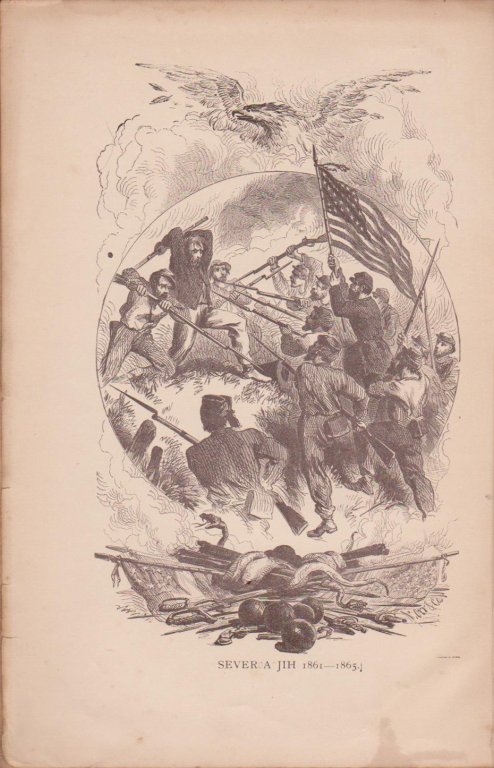
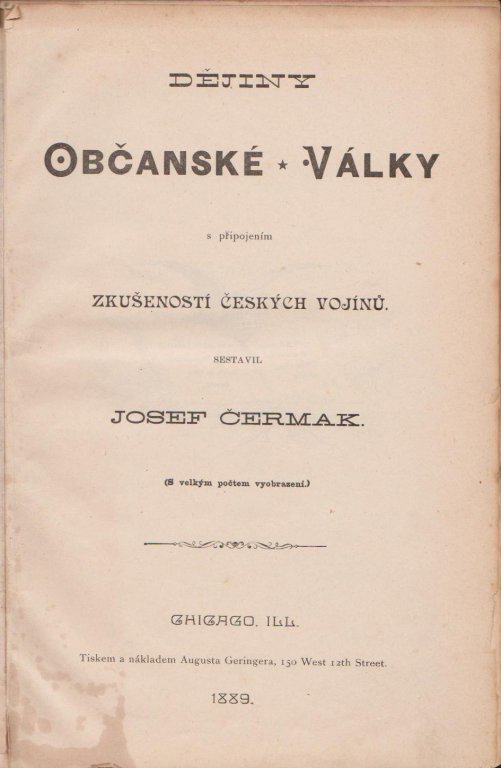
Vojtech G. Pinter
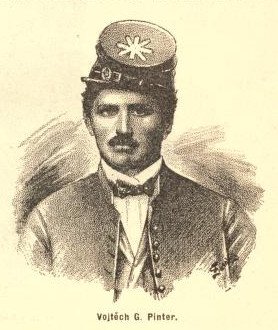
Vojtech G.Pinter was born on October 29, 1841 in Vodňany No. 116. Father Georg Pinter, occupation farmer. Mother Maria (Krejčí, daughter of Ján Krejčí), occupation shepherd. His wife was Maria (Matějčková).

Frame 125, 3rd line; a book born from 1825 to 1855, Vodnany, Strakonice. Trebon SOA
Adalbert Pienter born 29.10.1841, baptized 30.10. ...
Father: Georg Pienter, farmer.
Mother: Maria, legitimate daughter of Johann Kreyca, village blacksmith in Barony of Radomilice and his wife Maria, maiden name Mati..., from Radomilice - period map here.
Vojtech enlisted 3rd October 1864 to 9th regiment of the Illinois cavalry. He was born in Vodnany (Austrian empire), at Chicago he arrived in 1854. Pinter took part in countless battles and suffered from all the war distress. After the war ended he returned to his parents to Lockport, but died shortly after having developed dangerous illness during the war. He left no detailed information about him. (Cermak, page 401)
In the Company I you can find this our fellow-countryman under the name Albert G. PAINTER.
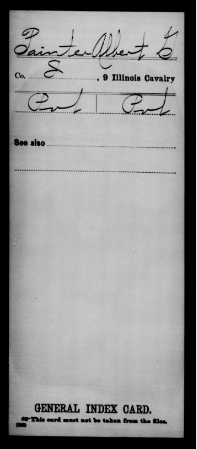
Jakub Kakuska
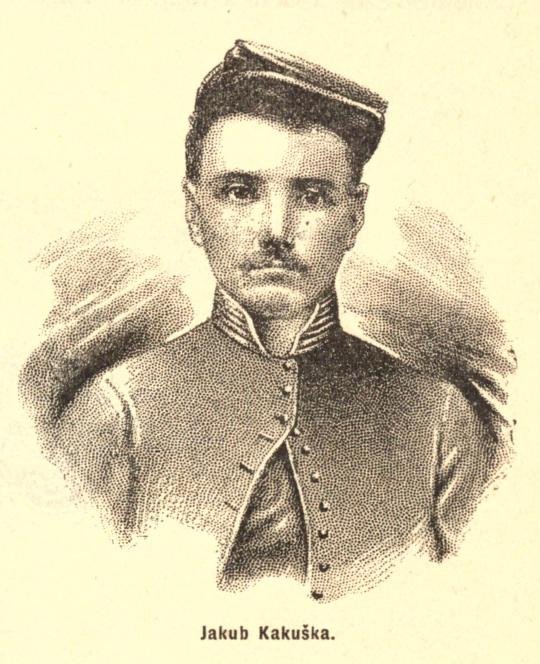
The second Czech was Jakub Kakuska in most of available documents named Jacob KASHKUSHKA. Formerly we knew about this Czech native only from the short-spoken paragraph found in the mentioned book from Josef Cermak (page 413):
"With the 9th regiment of the Illinois cavalry (Company C); enlisted voluntarily 3rd October 1864 and served till end of the war; discharged with honour 13th October 1865. Settled in Chicago later."; And this was all until recently.

Record from a parish register in Netolice; the records are partially unreadable:
,,Jakub Kakuška, Podeřiště No. 17, born 25.4.1845, baptized 26.4.
Father: Bartholomäus Kakusska, unpropertied tenant, farm-hand and herdsman, son of Laurentz Kakusska..... village herdsman in ..... Hluboká nad Vltavou, mother Katharina, maiden name Wizrálková ... from Sedlec u Netolic
Mother: Theresia, daughter of Josef Kašpar, village herdsman k.... and Theresia was born in Moravec no. 6 near Velké Meziříčí.
His parents Bartolomej and Terezie were married 1837 in Hlavatec near Netolice (south from Pisek and northwest from Ceske Budejovice). They were poor peasants and much like his ancestors Bartolomej was local shepherd. By the parish register Jakub was born 25th April 1845 in Poderiste No.17 by Netolice (close to Vodnany, where Vojtech G.Pinter came from).
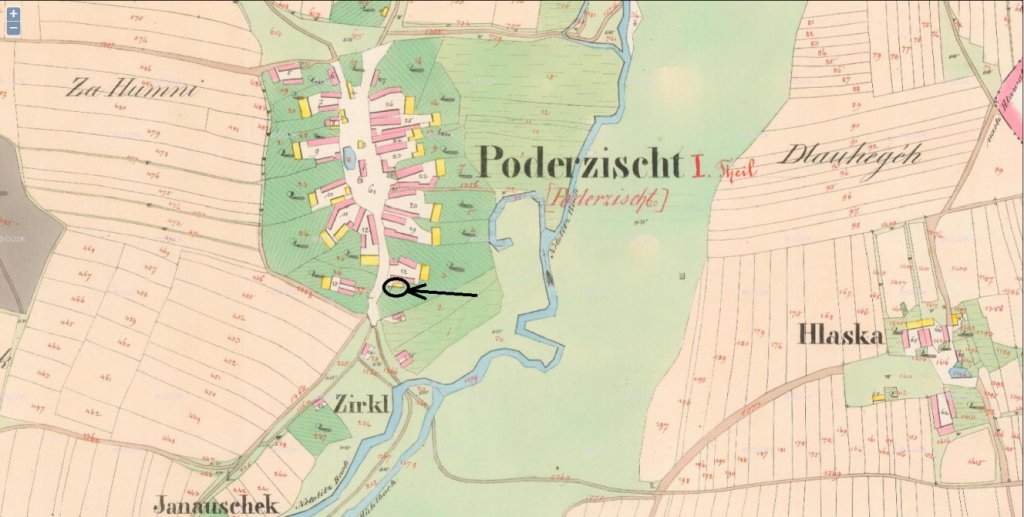
Here is a historic map of Poderiste. House number 17 is circled.
(Note: renumbering has been renumbered in the 1960s, so you can now see the 17th place in another place.)
After suppression of the revolution in 1848 many Czechs left to America. This family was also among these.
Here we have the ship log from Mr. Chris:

Jacob Kakuska
New York, U.S., Arriving Passenger and Crew Lists (including Castle Garden and Ellis Island), 1820-1957
Saved To
Jacob G. Kakuska
Detail Related Source
Name: [Jacob Kakuska ]
Gender: Male
Ethnicity/ Nationality: German
Age: 8
Birth Date: 1846
Place of Origin: Germany
Departure Port: Liverpool, England
Destination: USA
Arrival Date: 3 Apr 1854
Arrival Port: New York, New York, USA
Ship Name: Albert Gallatin
Bottom of page includes Jacob Kakuska's parents, Bartolo Yakutschka (probably strange transcription) and Terese (Kaspar).
They came to Chicago the year after they arrived. We have got a memoir saying, that Bartolomej was first Czech, who built a house in Chicago a one-room wooden house near Lake Michigan, in 1854 (quote Rudolf Bubeníček's book, 'Dějiny Čechů v Chicagu') and the mother of jakub Terezie was first Czech midwife in this location.
We also have a list of those registered in houses from 1860. The Dobesh family also lived in the same district. Color highlighted. Don't be fooled by the garbled last name.
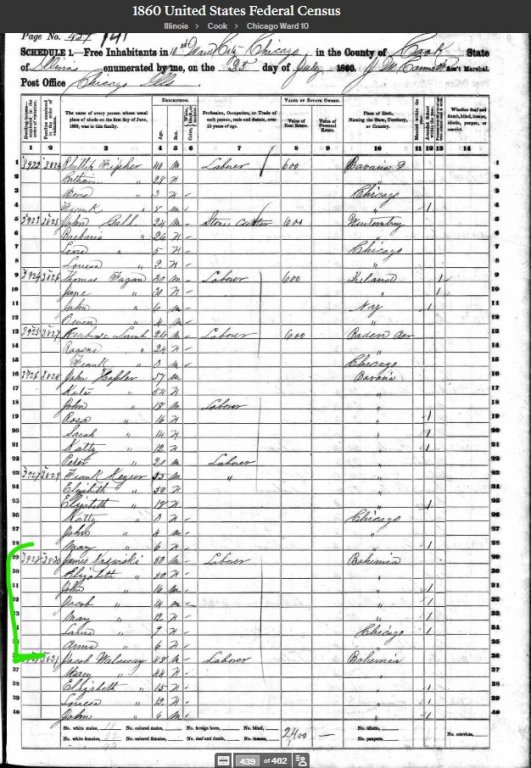
Jakub Kakuska was able to meet Maria Skoblikova after 1862. When the Skobílek family arrived in Chicago.
Jakub and some of his friends and also with his expectant brother in love Mathias Skoblik enlisted to 9th Illinois in Camp Douglas, which spreaded out on the shore of Lake Michigan at 39th street (where later Confederate prisoners were held and many died from hypothermia). It happened 3 October 1864 at his age 19 years. He served till 13th October 1865 (by military records). Then he stayed at South for five months later after the Confederacy has surrendered. The regiment was temporarily kept there to keep order and to enforce the emancipation of former slaves.
It is worth to mention also brief military information about Jakub Kakuska:
•rank: private
•age: 19
•eyes: grey
•hair: dark
•occupation: carpenter
•complexion: dark
after the war, 14th July 1866 he married Marie Skoblikova (born 5th January 1846 in Luznice, Kaplice 1, Pohorska Ves, daughter of Vladimir Skoblik) in Catholic church of St. Family, 1019 S May Street (he lived at 413 West 12th Street), Chicago, Cook. They were married by father Damen. They lived at No. 412 West Eigteenth street, Chicago, district: East Pilsen.
In course of next years he had several occupations like constable and petty politician. Later he worked as engineer in the Simon Powell & Sons Distillery (South Canal Port Avenue a South Morgan Street, Garden City ). At this place he met his fate - died from fire and explosion 15th October 1880. Jakub is buried at Czech Naional Cemetery (555 Pulaski St, Chicago, Cook, Illinois). Here is shown his gravestone.

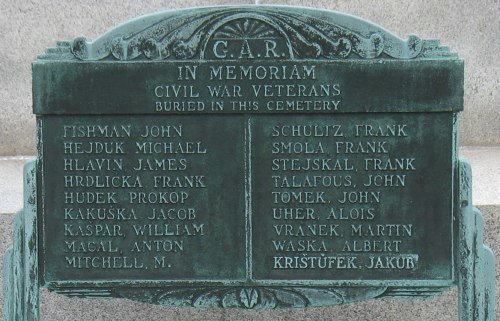
They had 8 children, namely:
1.Mary J. Kakuska, born Feb 1867, Chicago, Cook County, Illinois, + cca 1958.
2.Anastasia Kakuska, born cca 1868, Chicago, Cook County, Illinois, + unknown.
3.Frank Kakuska, born in Dec 1869, Chicago, Cook County, Illinois, + unknown.
4.Leopold Kakuska, born cca 1873, Chicago, Cook County, Illinois, + cca 1873, Chicago, Cook, Illinois.
5.Regina Victoria Kakuska, born 17th Jul 1877, Chicago, Cook County, Illinois, + 17th Jul 1954, 2705 S Cuyler Avenue, Berwyn, Illinois.
6.Agnes Kakuska, born 1878 (another resource shows 1875), + cca 1945.
7.Rose Matilda Kakuska, born 27th Jul 1879, Chicago, Cook County, Illinois, + 11th Mar 1970, Elmhurst, Illinois.
8.Caroline Isabella Kakuska, born 18 Mar 1881, Chicago, Cook County, Illinois, + unknown.
His widow after his death gave birth to daughter Caroline Isabella Kakuska 18th Mar 1881. She had married again in 1889. Till her death she lived in Chicago, Cook county. She died 5th June 1894 and she is also buried at the Czech Naional Cemetery .
We also tracked down his grandchildren and great-grandchildren. Namely, Ms. Amy from Chicago is a great-great-great-niece and Mr. Chris Hale is a great-great-grandson who also has the family line of Josef Dobeš - Voda in his DNA.
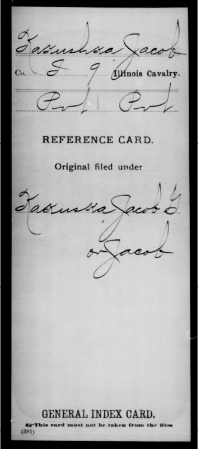
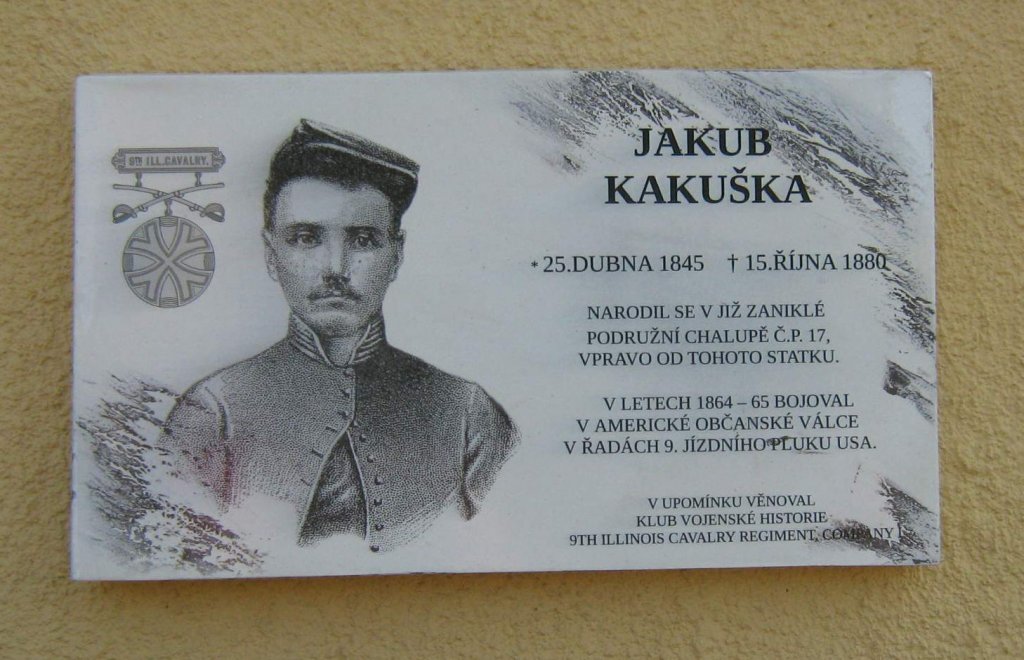
Mathias Skoblik
(we don't have a photo or a drawing)
1st sgt. Duffy found a third Czech from the regiment
born 21 January 1842, died 1884
Mathias Skoblik son of Vladimir Skoblik and brother of Marie Skoblikova was born 21 Jan 1842 in Luznice, Kaplice 1, Pohorska Ves and died in year 1884 in Le Sueur, state Minnesota.
Matthias and his brother Martin emigrated to Chicago in June 1862 (with his wife and children. Unfortunately, both daughters died the same year and Mary was born in 1863).
Another brother (no name) traveled through Italy.
Here is the ship record:

Name: Matthias Kablik
Gender: Male
Age: 20
Birth Date: 1842
Port of Departure: Bremen, Germany
Arrival Date: Jun 1862
Port of Arrival: Baltimore, Maryland
Arrival Quarter: Jun
Ship Name: Geestemunde
There is one immigration record that suggests that Mathias and Mary Skoblik came over to USA with parents, Matej Skoblik and Maria Vlckova, his second wife. But the names are slightly different.
By military records had Matyas Skoblik enlisted 1 October 1864 (two days before his fellow and latter brother-in-law Jakub Kakuska) in Chicago and served until 13 October 1865.
Military archives estreat - http://civilwar.illinoisgenweb.org/acm/cav009-i.html
SKOBLIK, Matthias Recruit Chicago Oct 1, 1864 Mustered out Oct 13, 1865
After the war his son John Scoblik was born 24 June 1866 (died 30 July 1958 state Minnesota).
He has got maried with Marie Samackova 26 October 1869 in Le Sueur (Minnesota).
Died in 24 July 1884 at the same place.
More details - scoblic.net:
- He was cutting sugar maple trees in LeCenter, MN area when one fell against another. In trying to free it, it fell and killed him. His estate was probated July 24, 1884. Matthias enlisted for one year in Co I, 9th Regiment, Illinois Cavalry on Oct 1, 1864 in Chicago. The enlisting officer was Capt. Wm. James. Matthias was described as having blue eyes, dark hair, and dark complexion and stood 5 feet 4 1/2 inches high. He served in Springfield, Il, 2d Squadron in
- Memphis, TN and was mustered out of the detachment Sep 30, 1865 in Montgomery, AL and out of the Company in Selma, AL on Oct 6, 1865. It appears his pay was $100 for a years service. He was a private when he entered at age 22 and a private when he was discharged. His enlistment record shows his birth place as Germany, his occupation as laborer, and his name, Mathias. He signed the documents Matej Skoblik. This information is from records of the 9th Illinois in the National Archives.
We've also found his grandkids and grand-grandkids.
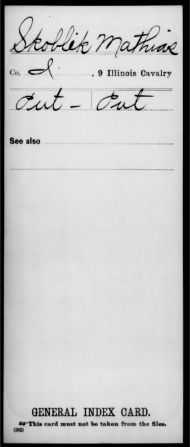
Joseph Dobesh Voda
The fourth Czech in the regiment has been discovered by Major Duffy. And essential assistance has been provided by Mrs. Karen Horacek, husband of which is a distant relation of Josef Dobesh. She had provided us also complete life story from Mrs. Helen Dobes Bryant, that is very detailed and so much needed for us. Added documents from Mr. Chris Hale.
Born October 22, 1845, died July 10,1872
Josef Dobesh Voda has been born in a village called Neplachov, No. 5 to his unwed mother Alzběta Vodová. He had also a sister Anna (also fatherless), born on June 10, 1841. She has however died just 2 years old on November 4, 1843.

Image 9, 2nd line, Register of borned 1810 – 1846 in Sevetin
¨
Record from the Register of borned in Sevetin. Some parts of the record are unreadable, unfortunately:
,,Born on October 22, 1845
Baptised on October 23, 1845
Alzbeta, daughter of Jana Woda, peasant from Neplachov, No. 5 and of Katerina, born Rotmauer, peasant´s daughter from the same village.
Frantisek Sloboda xxx , peasant´s son xxx - - - , is the godfather."
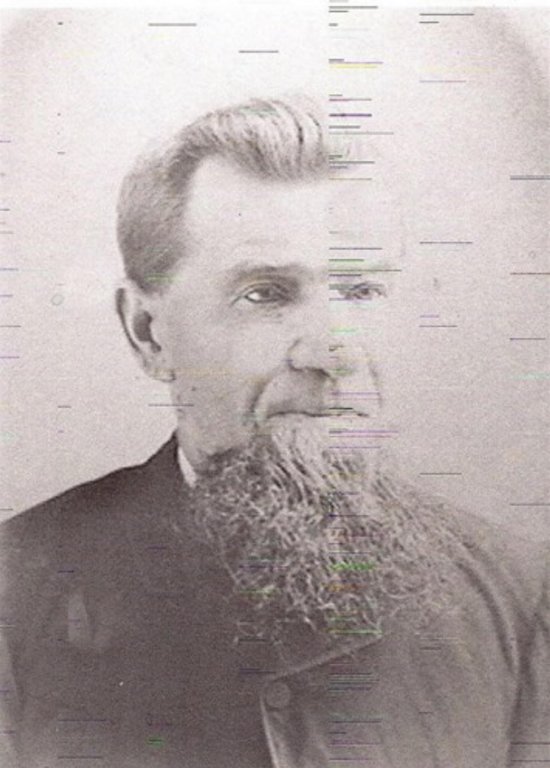
Thomas Dobesh
At his age of 16 months, Josef´s mother Alzbeta has married Thomas Dobesh on February 7, 1847 in v Sevetin. The marriage has not been possible until than, as Thomas Dobesh was married with ill Katerina Dvorakova. This had happened 7 months after her death. She died on July 31, 1846. Thomas and Alzbeta had 6 children together, prior they have emmigrated in 1859 to America.
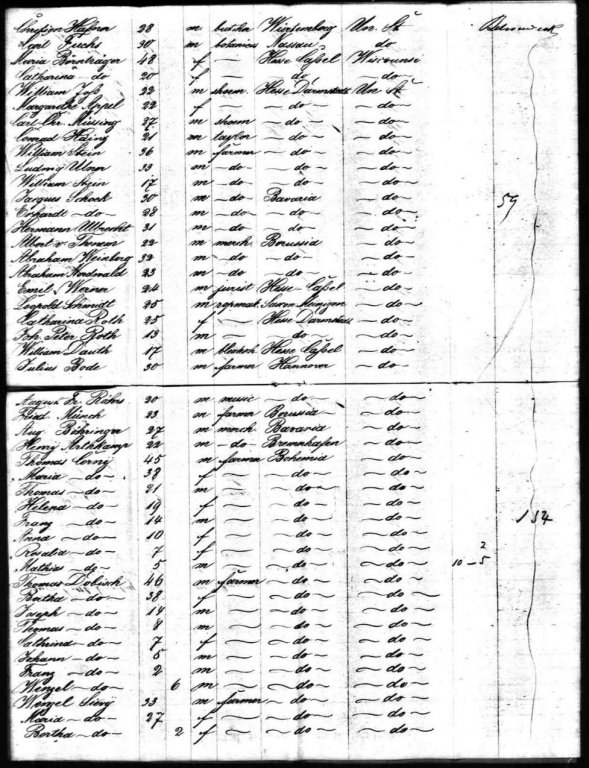
List of the ship passengers
The family arrived on December 31, 1859, to Castle Garden, New York. Josef has been 14 years old. They have travelled to Chicaga, and were reported in 1860 in the census. They have been living in the 10th Ward street there since July 1860. They lived in the same neighborhood as the Kakuska family. Color highlighted.
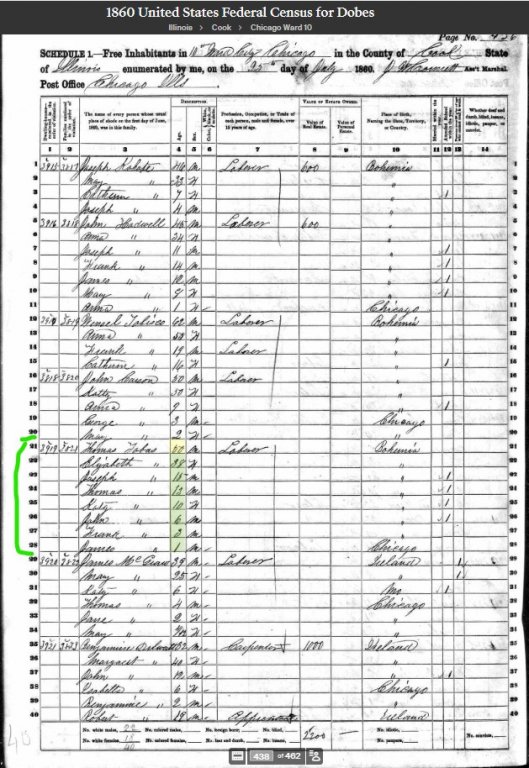
Following emmigration, their names have been modified. Given name was Joseph and family name has got various modifications: Dobesh, Dobesch, Dobes, even Tabas and Lobis. In the Minnesota record of death is listed as Joseph Voda, and is buried with a name Josef Dobes at the cemetery of St. Wenceslaus Catholic Church in New Prague, Minnesota. It seems, Joseph has used family name Dobes during his life in America. Family name Voda has appeared again in his death certificate and in a marriage certificate of his wife, when she got married 3 months after his death again. But it seems, somebody erased the name Dobes and overwrited it to the Voda name after his death. It seems also, that he has decided to use name Dobes during his life in the majority of US records, except one record from the Civil War. He is listed there as Joseph Votah – of course uncorrectly.
Three years after their arrival to the US, Josef´s mother Alzbeta (known as Elizabeth there) died on March 4, 1863, in the Josef´s age of 17. Two months later, the Josef´s stepfather Thomas Dobesh has married Anna Lamac on June 22, 1863. On May 12, 1864, Anna got a daughter , i.e. 11 months after wedding.
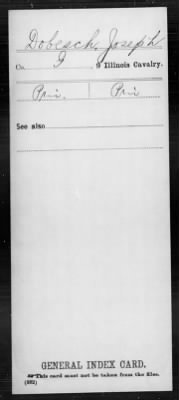
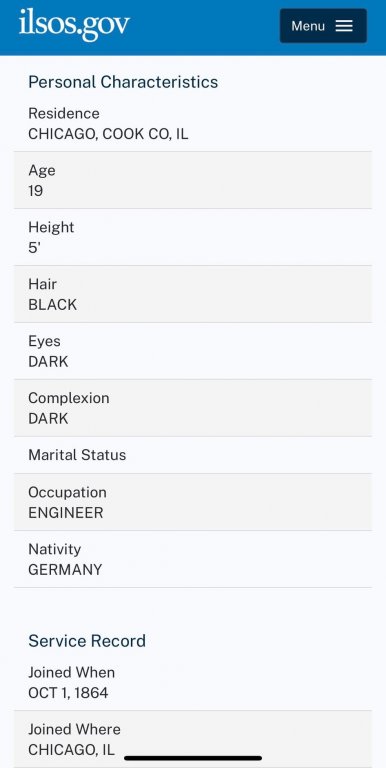
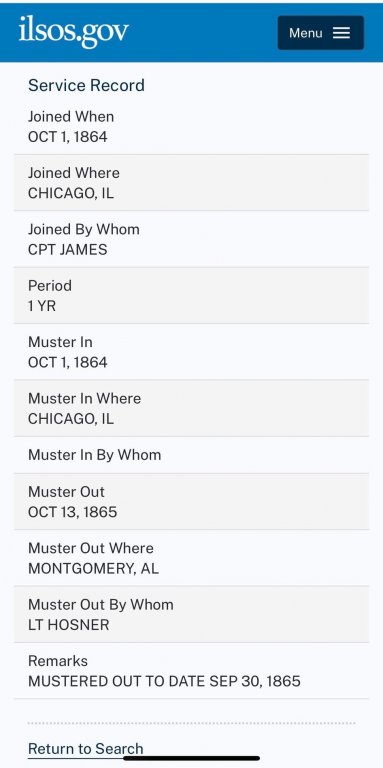
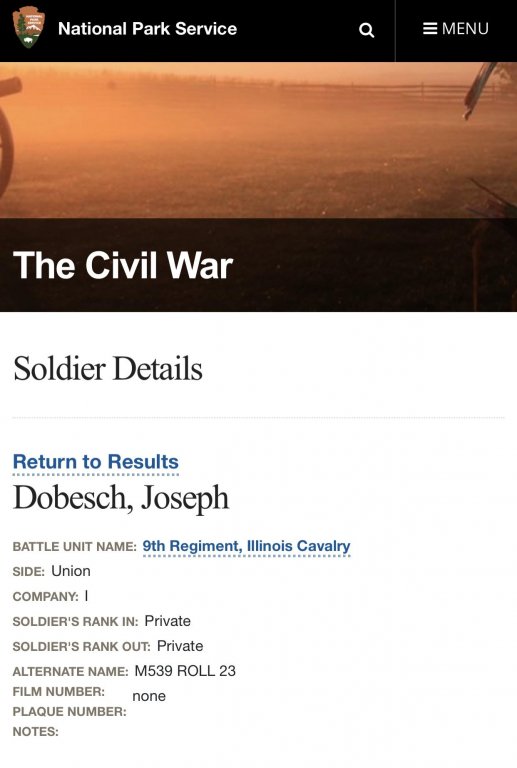
Joseph has decided to serve his new homeland in the autumn of 1864 and also to obtain US citizenship . The Civil War has started on April 12, 1861, just 15 months after the family arrival only. The War progressing on, the Union has needed more soldiers. The Congress has accepted the law: The all immigrants released with honor from the army, might ask for US citizenship just with one-year-stay in the US. Josef has entered the Union army on October 1, 1864, at the age of 19, in the rank of a private. He has been listed in the 9th Illinois Cavalry Regiment Company I. The Civil War ended 6 months later. On October 31, 1865, Josef has been released from this regiment, which has been located in Selma, Alabama , that time. He has been 20 years old and returned to Chicago in November 1865.
Probably in summer 1866 Josef met Josefína Moravcová, having emmigrated with her parents from Bohemia ( they reached Baltimore on August 15, 1864). There is no record of their marriage, but on March 16, 1867 their son Joseph William Dobes has been born, and their second son Anton James Dobes on December 17, 1869. The mother has been listed in the 1870 census as Josephine Lobis (24 years oldet) and family head as Joseph Lobis (25 years). In the records the capital charaters „L“ for Lobis have been in reality capital characters „D“. Four names and the age are matching: Josef Voda (Dobes), Josephine and two boys. The census has not required informations about marriage or relationship, so that if Josef and Josephine have been husband and wife or not. In the 1880 census the boys are listed as Joseph Dobash and Anton Dobash, which have been living with their mother and her second husband John Kubesh. He mentioned the two boys as step-sons.
Joseph Dobesh Voda has died of tuberculosis on July 10, 1872, i.e. a very common infection disease that period of time. He could have some symptoms already in 1869 or 1870. Certainly, he did not want to infect his family. Josephine herself took care for a newly born baby and a small boy. Josef went to his father Thomas and step-mother Anna. He is recorded in a July 12, 1870 census (page 163 of census record). According to this , they have lived with Josephine, newly born Anton and 3-years-old Joseph in a residential house for 3 families worth 1800 $, owned by Joseph. In the two other records is Joseph mentioned as a locomotive engineer, and later as a day laborer. This makes sense, as by progress of his disease, the traveling by train as an engineer was impossible.
Around 1872, Joseph has transferred his house ownership in the 7th Ward street in Chicago to his father Thomas. According to the obituter, specified to the item Find-a-Grave for Joseph William Dobes , he later accepted his stepfather Kubesh name.
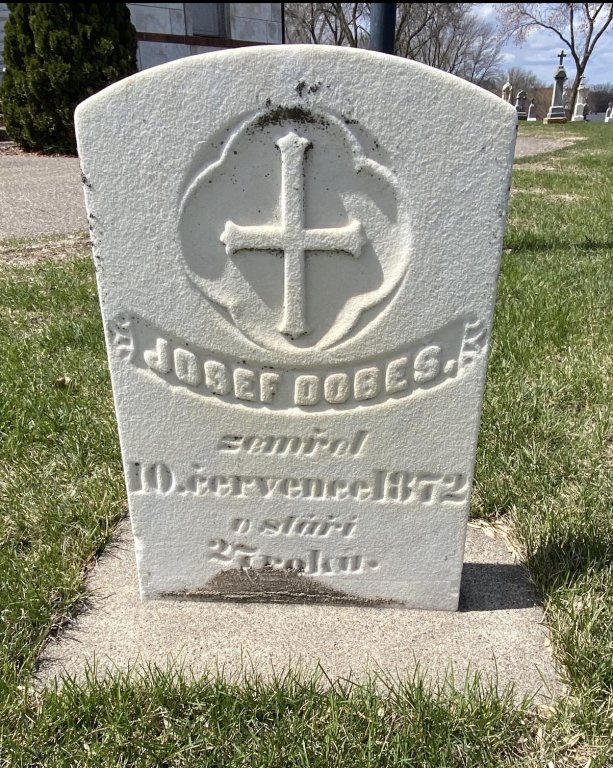
Josef´s tombstone
And here, the story about fourth Czech soldier in the 9th Illinois Cavalry Regiment is ending.
We have unbelievable amount of informations thanks to all of the mentioned descendants . To present them would require much larger and specific space.
Message from Mrs. Karen Horacek:
I just wanted to share with you the joy that 96-year-old Helen Dobesh Bryant has experienced as a result of all that has been going on with Joseph Dobesh Voda! Thank you so much for giving her something special to be thinking about! Here is her most recent email to me after I told her about your trip to Neplachov:
“Thank You. Tears are running down my face. What a great thing and best of all that you and Bruce might go. I am sure you will put this in his story in Family Search, right? I am sure you can write a story from when you picked up the request in the Illinois Czech-Genealogy inquire . To first meeting this gentleman Duffy to where you are now. I bet if you went they would supply you with a lot of Dobes genealogy too. Haven't been this excited since. I don't know when!”
Duffy! Thanks again for the happiness that you have brought to Helen!"
In the spring of 2024, Mr. Bruce and Mrs. Karen registered Joseph Dobesh Voda as the first Czech ever on the American Civil War battle registry. Specifically, at the Battle of Franklin (November 30th, 1864). And this entry was confirmed on April 29th, 2024.
The last act to remember this soldier is a commerative plate uncovered in Neplachov, his birthplace.
This event happened on September 13 2024 at 18:30 hrs , unfortunatelly under very complicated weather conditions, rains and floods.
The Ceremonial unveiling performed Mr. Chros Hale – lineal descendant of Josef Dobeč Voda and direct great-great-grandson of Jakub Kakuška and Marie Skobliková.
We have been honored by the presence of the continental commander-in-chief, general Ben McCoy IOCUM Europe with his friends.
Also, we would like to thank to municipality of Neplachov, namely Mrs. Pavla Figurová, mayor Mr. Lukáš Blažek, to the fire brigade and many others.
We believe to meet here in biennials in even-numbered years again, and commemorate it with dignity.
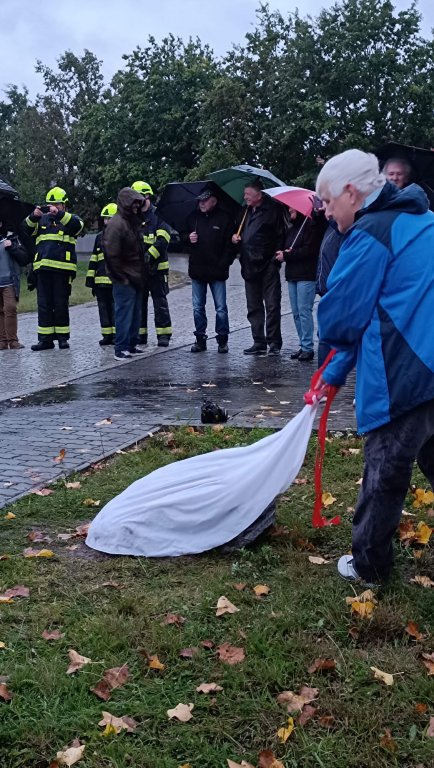
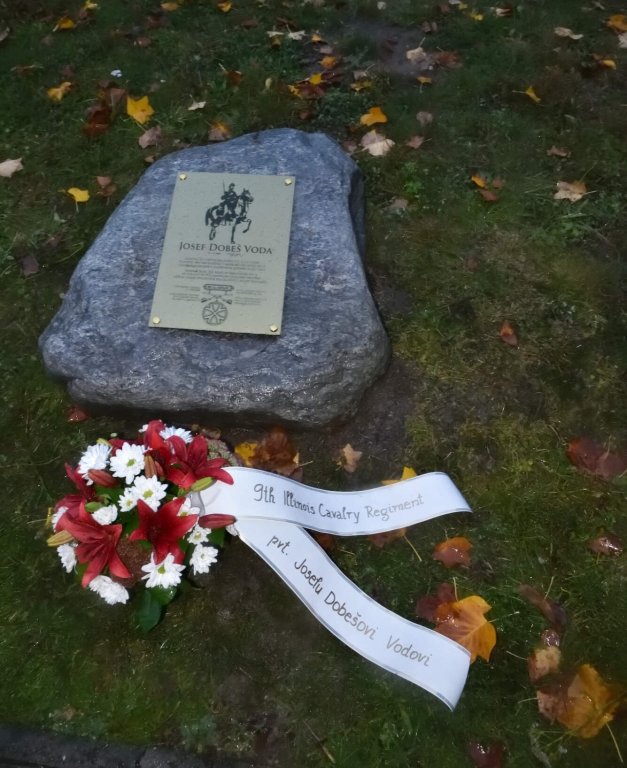
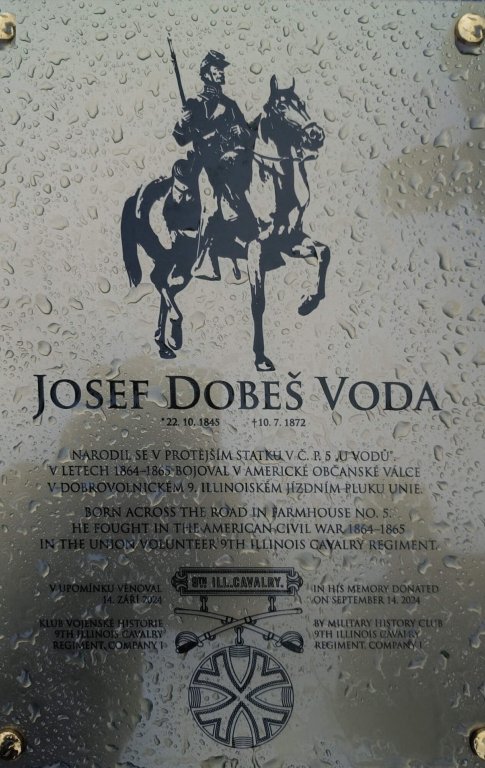
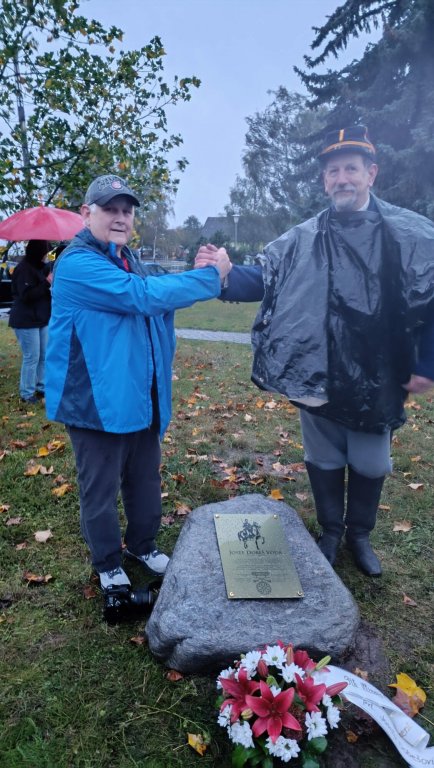
Adjutant General's Report
The Ninth Regiment of Cavalry was organized at Camp Douglas, near Chicago, Illinois, in the autumn of 1861, by Colonel Albert G. Brackett, ans was mustered into the United States service by November 30.
On the 16th of February, 1862, it started from Chicago and proceeded by rail to Benton Barracks, near St. Louis, Missouri, and thence to Pilot Knob. From there it marched to Reeve's Station, on the Big Black River, and was assigned to the Third Brigade of General Steele's Division, serving in the District of Southeast Missouri.
From Reeve's Station it marched to Jacksonport, Arkansas, where Colonel Brackett was left in command, the other portion of the Division moving on to Batesville, where it joined the Army of the southwest, under the command of Major General S. R. Curtis.
On the 21st of May Private P. W. Pringle, of Company F, was murdered in cold blood by the rebels and his body left lying in a swamp near Jacksonport. On the 24th the Regiment crossed the Black River and encamped in the woods.
May 28, five companies, under Lieutenant Colonel Hiram F. Sickles, had a skirmish with the Confederates at Cache River Bridge, routing them with considerable loss. In this affair Battalion Adjutant Blackburn and Private Tift were wounded.
Captain Blakemore had a skirmish on the same day on the Augusta road, with portions of three companies of the Ninth, against a Confederate force, in which two confederate soldiers were captured, one of whom was very severely wounded.
Upon the approach of the Confederate gunboat Maurepas, Captain Joseph Fry, the Ninth fell back two miles and a half, when the vessel shelled its late camp with 64 pounders. This was on the second of June. As soon as the boat retired the Regiment went back to its former camp.
The Confederate soldiers on the 12th of June attempted to capture a valuable train near the Waddell farm, five miles from Jacksonport, but were utterly defeated and driven off by Colonel Brackett with two companies of Missouri cavalry and four companies of the Ninth, with a loss of twenty-eight killed, wounded and missing. Our loss was thirteen wounded and missing.
Captain Marland L. Perkins with his company made a reconnaissance toward Augusta, down the right bank of White River, in June, and had two skirmishes with the enemy in which a Confederate soldier was killed and he had one horse killed and two wounded. He returned to camp June 23.
Again on the 27th of June, 1862, a large force of the enemy attacked a government train near Stewart's plantation; it was beaten off with severe loss, and the valuable train saved. On our side two were killed and thirty-one wounded, among the latter being Colonel Brackett, Major Wallis, Battalion Adjutant Blackburn and Captain Knight. Five of the enemy's dead were seen on the ground.
This was the day after the Regiment had started on the march for Helena, with the whole of General Curtis' Army. During the march five men of the Regiment died from hardships, it being almost impossible to obtain water. This was one of the most famous marches of the civil war.
At Helena the Regiment was assigned to the Third Brigade, Colonel Cyrus Bussey, of General A. P. Hovey's Division, District of Southeastern Arkansas, commanded by General Steele.
The Regiment received two small 12 pounder howitzers on the 15th of September, which being placed under command of Lieutenant E. G. Butler, with details from various companies, rendered excellent service.
At the fight at La Grange, Arkansas, two companies of the Regiment, with soldiers of other regiments, under Captain Marland L. Perkins, with two howitzers just referred to, behaved very gallantly against a considerable force of the enemy; he losing over fifty men, while our loss was inconsiderable. This was on the 8th of November. The command also repulsed a charge of two regiments of Texans.
During the night of October 11, a part of the Regiment captured a rebel picket of twelve men near Helena, Arkansas.
Brigadier General C. C. Washburn led an expedition, composed of parts of several cavalry regiments, from Helena across the Mississippi River in the State of Mississippi, during part of November and December, 1862. He had a skirmish with the enemy at Okolona, on the 6th of November and at Coffeeville on the 7th, in both of which he was successful and accomplished the main object of his expedition, which was to give the leaders of the rebel forces an idea that his troops were the advance guard of a large Union army sent to cut off the retreat of General Price and his rebels from their position. Price believed it and left accordingly. In Washburn's command Major Henry B. Burgh had one hundred and fifty men of the Ninth Illinois Cavalry.
January 9, 1863, the Ninth marched with General Gorman's command from Helena to Duvall's Bluff and returned. On the 7th of April, it moved up the Mississippi River to Memphis, Tennessee, and on the 12th to Germantown, where it was assigned to McCrill's Brigade of Cavalry of the Sixteenth Army Corps. It was engaged with the enemy at Coldwater, Miss., July 28, and at Grenada August 18, and moved to La Grange, Tenn., August 26. Made an attack upon the enemy at Salem, Miss., October 13, and after fighting all day the rebels fell back and retreated during the night.
November 8, moved from La Grange to Corinth, and returned soon afterward. Marched to Colliersville, and was assigned to the Second Brigade Cavalry Division of the Sixteenth Army Corps. Was engaged with the enemy at Saulsbury, Tennessee, and on the 4th the Division, under command of General Grierson, was engaged at Moscow, Tenn. In the fight the Ninth took a conspicuous part.
In January, 1864, the Regiment was in the Second Brigade, commanded by Colonel Albert G. Brackett, of Grierson's Division, Sixteenth Corps, Army of Tennessee, at Colliersville, and detachment under Major Ira Gifford had a brisk skirmish with a portion of Forrest's command, which had made an attack upon the Memphis and Charleston railroad, in which several of the enemy were killed and wounded.
February 11, 1864, the Regiment moved out by order of General Sherman against the enemy, with the Union force organized under General William Sooy Smith, Chief of Cavalry of the Division of the Mississippi, with a view to overthrow the rebel cavalry under General Forrest. He pushed across the country as rapidly as possible, crossed the Tallahatchie River at New Albany without opposition and moved on to Okolona, on the Mobile and Ohio railway, meantime having been engaged with the enemy at West Point on the 20th of February, at Okolona on the 21st and Mount Ivy on the 23d. While a portion of the command was sent to threaten Columbus the main body moved on, destroying an immense amount of corn, cotton, and other stores of great value to the Confederates. The Regiment returned to and encamped at Germantown on the 24th of February. Although the chief object of the expedition was not accomplished, the cavalry had inflicted heavy injuries upon the Confederates.
On the 16th of March the Regiment was mustered as a veteran organization, and the following day marched to Memphis, whence the men returned to Illinois, on the usual furlough granted to veterans.
April 27, the men of the Regiment returned to Memphis from furlough, and a short time thereafter a portion of them accompanied General Sturgis on his expedition against the enemy. At Guntown, Miss., on the 10th of June, our forces met with a severe check and were obliged to give way. The Ninth formed a portion of the rear guard, losing five killed, twenty-three wounded and twelve captured out of one hundred and sixty men.
Upon the failure of this expedition another, under General Andrew J. Smith, was fitted out and marched from Saulsbury to Pontotoe where a fight occurred on the 11th of July, and meeting the enemy in force near Tupelo another action took place, the confederates being driven from the field, leaving a large number of dead and wounded comrades. The next day, July 15, a severe cavalry fight occurred at Old Town Creek, where the Ninth acquitted itself with credit, and afterwards returned to Memphis.
In August the Regiment marched by way of Holly Springs to Abbeville, Miss., where it had a skirmish with the enemy, and on the 11th had another brush at Oxford. A severe fight took place at Hurricane Creek, the Ninth taking an honorable share, losing four killed and several wounded. It returned to its station at Memphis September 4.
With Captain William C. Blackburn in command the Regiment moved out again on the 30th of September, and, after crossing the Tennessee River at Clifton, marched by way of Waynesboro, Lawrenceburg, Florence, Ala., Waterloo, Hamburg, and Savannah to Cifton, pursuing the rebels under General Wheeler. The command returned again to Florence, and there met the advance of General Hood's Army. The Division to which the Ninth was attached did some hard fighting at Shoal Creek, Ala., on the 9th of November. On the 19th of the same month crossed the river and two days afterward attacked the enemy near Lawrenceburg, Tenn., the Ninth Illinois Cavalry being in the advance. Two Divisions on the enemy coming up compelled it to recross the river, and, in so doing, one battalion became detached, passed through the rebel line, and was compelled to remain in the rear of the enemy until, under the cover of darkness, it recrossed the stream and joined its friends.
For several days after this the Regiment skirmished with the enemy's advance and at Campbellville, Tenn., on the 24th of November was hotly engaged. Here it kept its ground holding back many times its own number of rebels until its ammunition was entirely exhausted, when the men fought the confederates hand to hand, clubbing their carbines and doing much to retard their march.
The Ninth took part in the fierce battle of Franklin, Tenn., on the 30th of November, 1864, and did what was in its power toward crippling the Confederate army under General Hood. This battle was pronounced by Secretary Stanton as the bloodiest of the war in proportion to the numbers engaged.
At the great battles of Nashville on the 15th and 16th of December, the Regiment belonged to the Second Brigade of the Fifth Division of the Cavalry Corps, and sustained its well earned reputation for valor. It participated in a well directed charge upon a redoubt occupied by the enemy, which it carried and at the same time captured four pieces of artillery and took one hundred and fifty prisoners, sharing in the final rout of the enemy.
Soon the Army of General Hood was in full retreat and the Ninth participated in the chase which resulted in its destruction, skirmishing with portions of it at Brentwood, on the Franklin pike, near Franklin, at Rutherford's Creek and Ross' Farm. The roads had now become impassable, the rivers were filled to the tops of the banks, and the enemy could not be followed any farther. The dispirited foe was driven across the Tennessee River on the night of 27th of December, and it being impossible to supply our army the campaign was closed with the closing of the year. General Thomas, in his order respecting these military movements, said: "Although short the campaign has been brilliant in its achievements, and unsurpassed in its results by any other of this war, and is one of which all who participated therein may be justly proud." The command moved to Huntsville, Florence, Eastport and Gravelly Springs. There not being a sufficient number of horses to mount all the cavalry, Hatch's Division was deprived of its animals, which were turned over to the other Division preparatory to their march farther south, and in consequence the Ninth was dismounted and left at Eastport on the 9th of February, 1865. As horses could be obtained the Regiment was again supplied and marched to Iuka, Miss., on the 23d of June, and thence to Decatur, Ala., July 4. From there it went to Montgomery, Selma and Ainesville, and was finally mustered out of service at Selma, Alabama, on the 31st of October, 1865, and ordered to Springfield, Ill., where the men received final payment and discharge.
The organization as a whole had done good service, and always bore a fine reputation. Through swamps and across rivers it had followed the enemy, amid the heat of summer and snows of winter, and was entitled to the thanks of the State, as well as the gratitude of the Federal Government. To have participated in the Arkansas and Nashville campaigns, and received the thanks of Generals Curtis and Thomas, was something to be proud of and reflected honor upon Illinois.
Col. Albert Gallatin Brackett
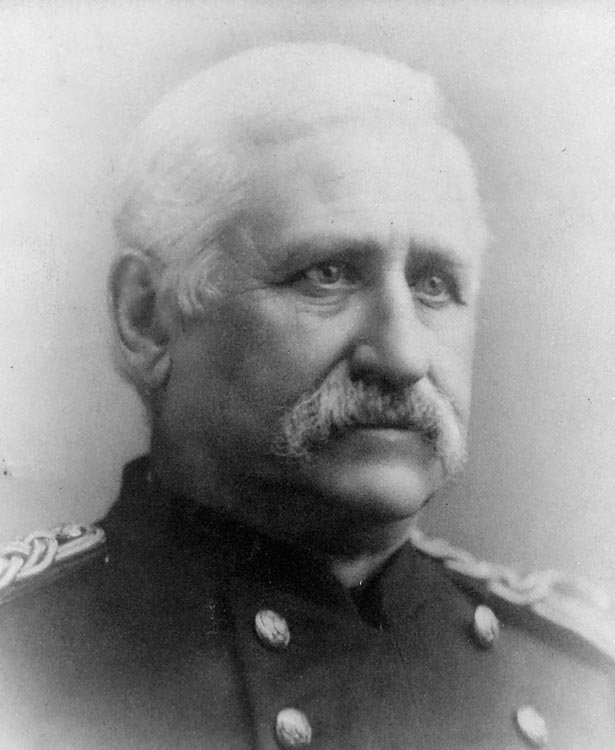
As already mentioned, cpl.Dandy has found one perfect photo of Col. Brackett at one auction (see the title photo in sub-menu of this section), but he also found the grave site of the Colonel - founder of 9th Illinois Cavalry Regiment. Thanks to this we know at least basic data. It is a quite strange, that the Illinois State Archive was unable to provide such information. So after one year from finding of our first photo of Col. Brackett ever by pvt. Guma, we have got next piece to the puzzle of history.
Born: 14th February 1829 in Cherry Valley, Otsego County, New York.
Died: 25th June 1896 in Washington, Columbia.
Buried 25th June 1896 in Arlington National Cemetery, Arlington, state Virginia.
Retired in rank of United States Army Colonel
He took a part in Indian Wars of 1855 - 1861 and 1868 - 1879.
Wife: Rose McHenry Brackett (her birthdate is missing – died 8th January 1912).
Source: Find A Grave, Records of Living Officers of the United States Army (1884), Fort Davis (Texas) - www-article, Arlington National Cemetery (ANC) webpage.
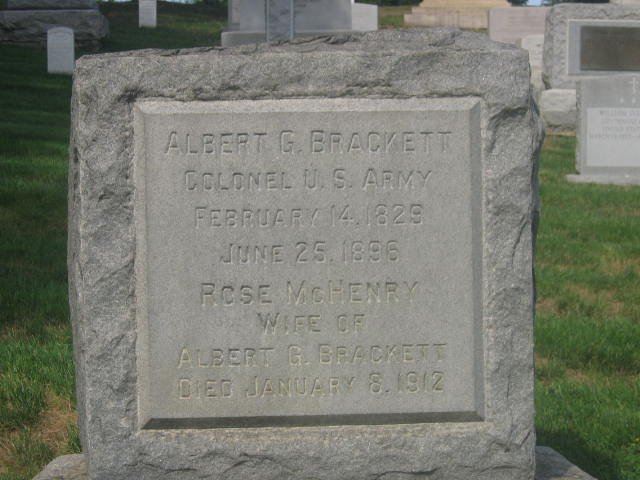
Description of grave location:
Arlington National Cemetery
Arlington County
Virginia, USA
location: Section SSIDE, No. 1052
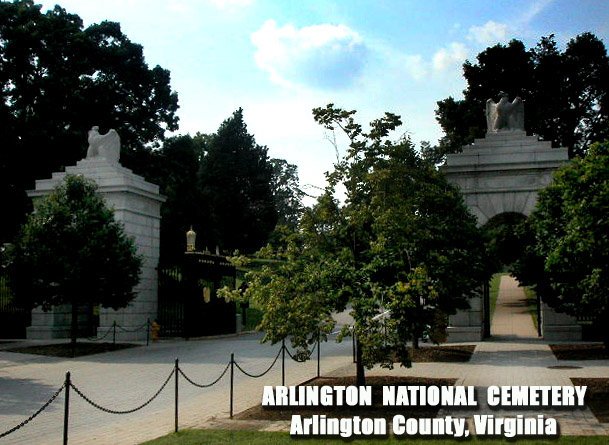
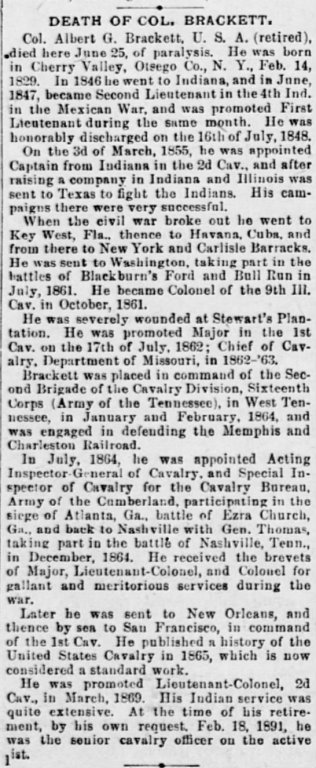
The National Tribune, 2 Jul 1896, Thu, First Edition
Czech National Cemetery in Chicago
In the year 1877 the Czech National Cemetery was found in Chicago and then in the year 1892 the monument dedicated to Czech soldiers involved in American Civil War was erected.
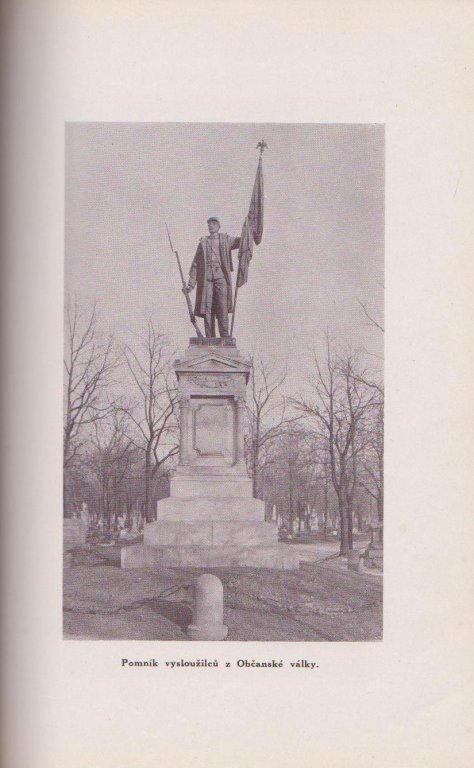

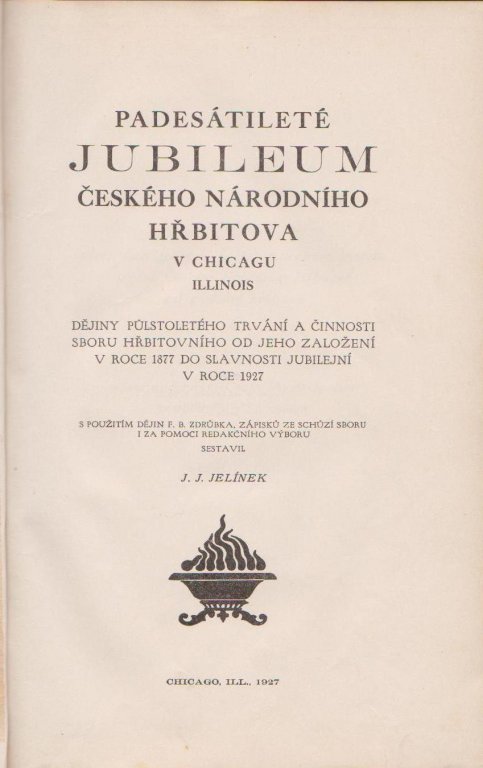
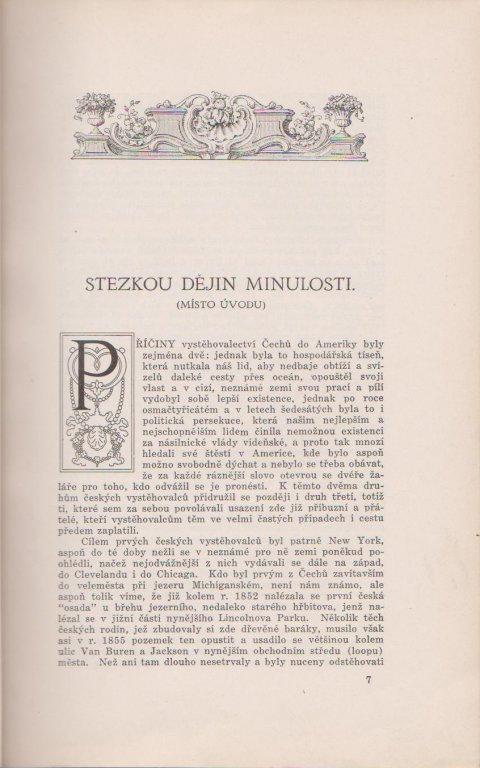
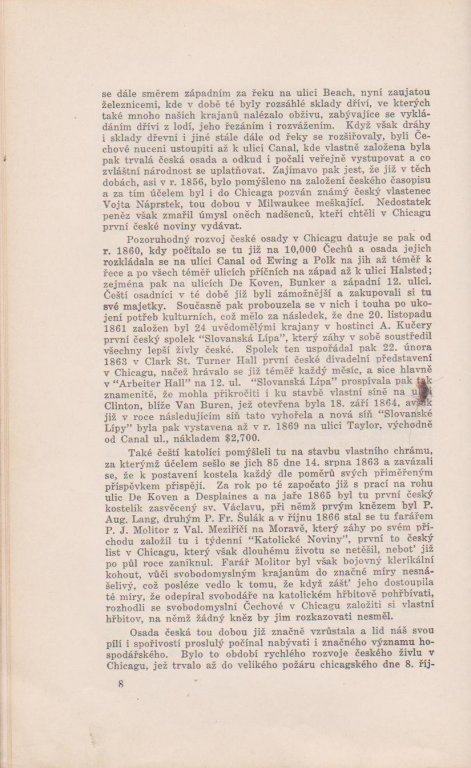
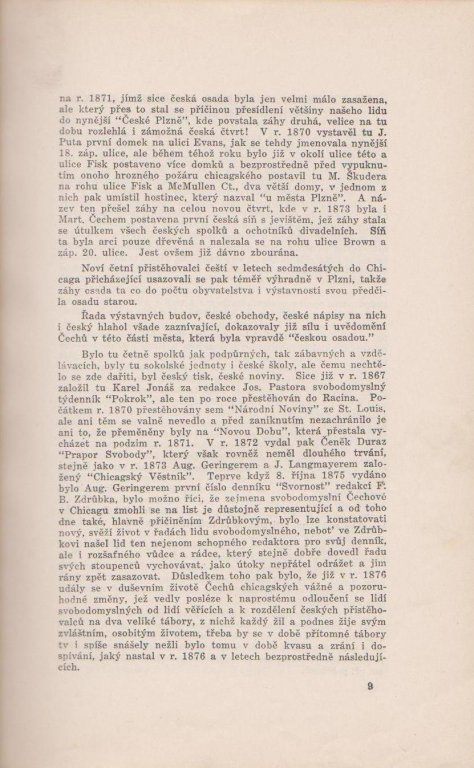
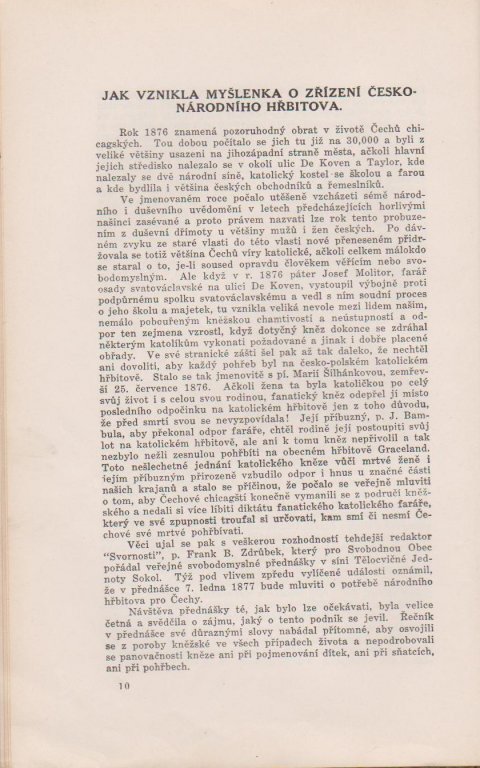
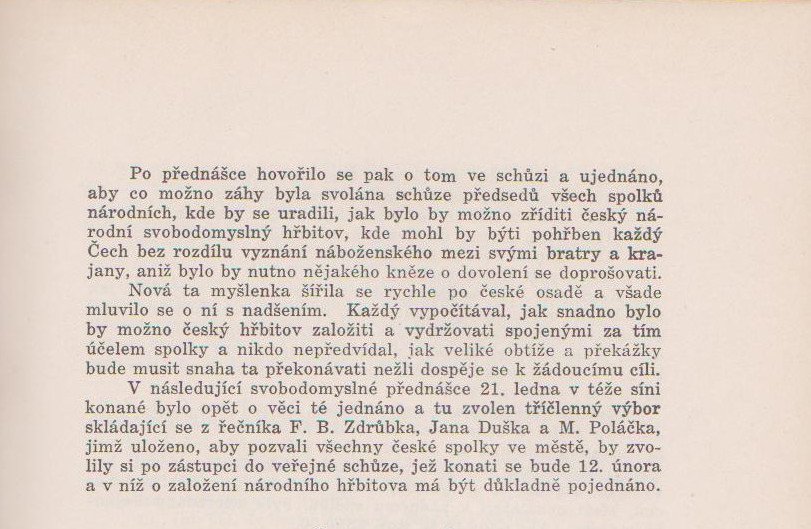
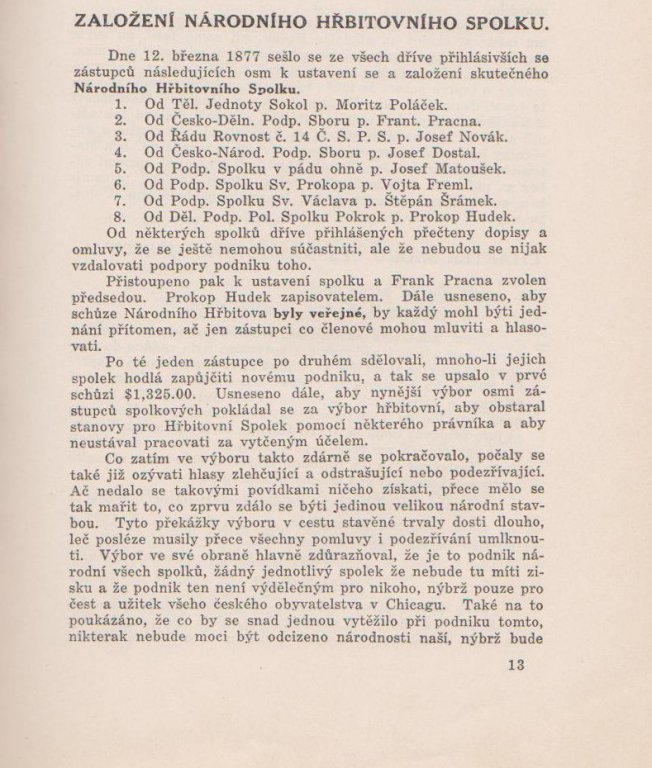
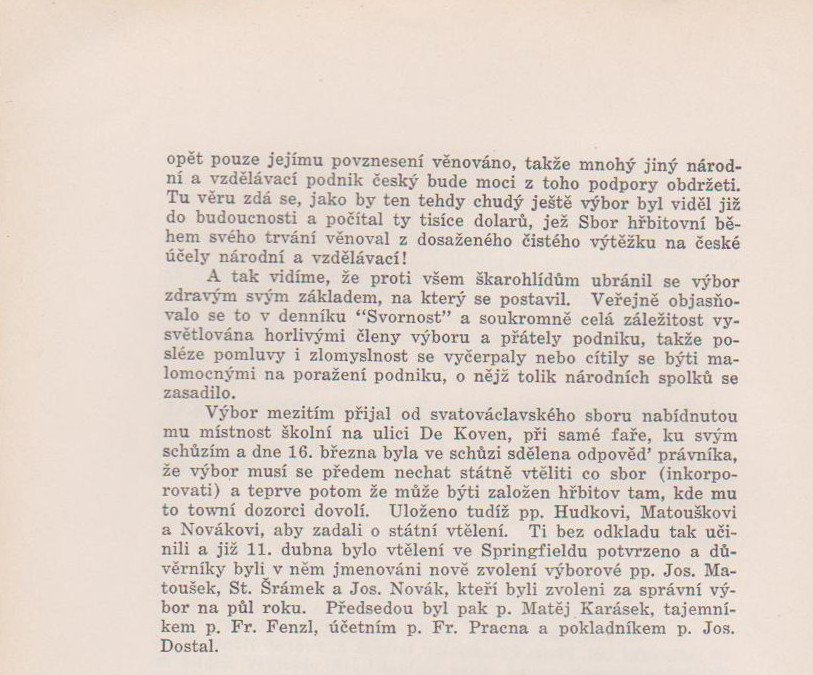
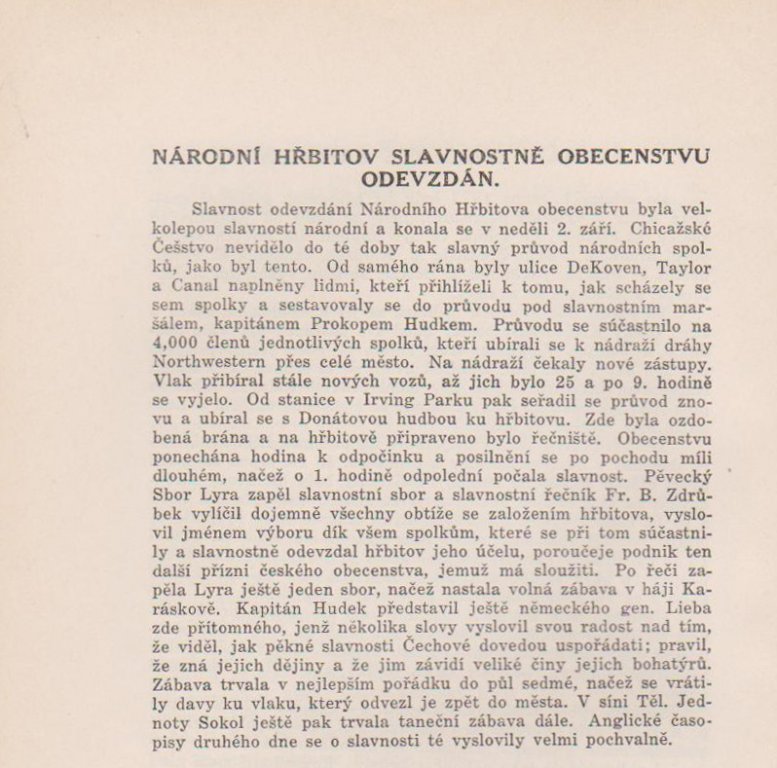
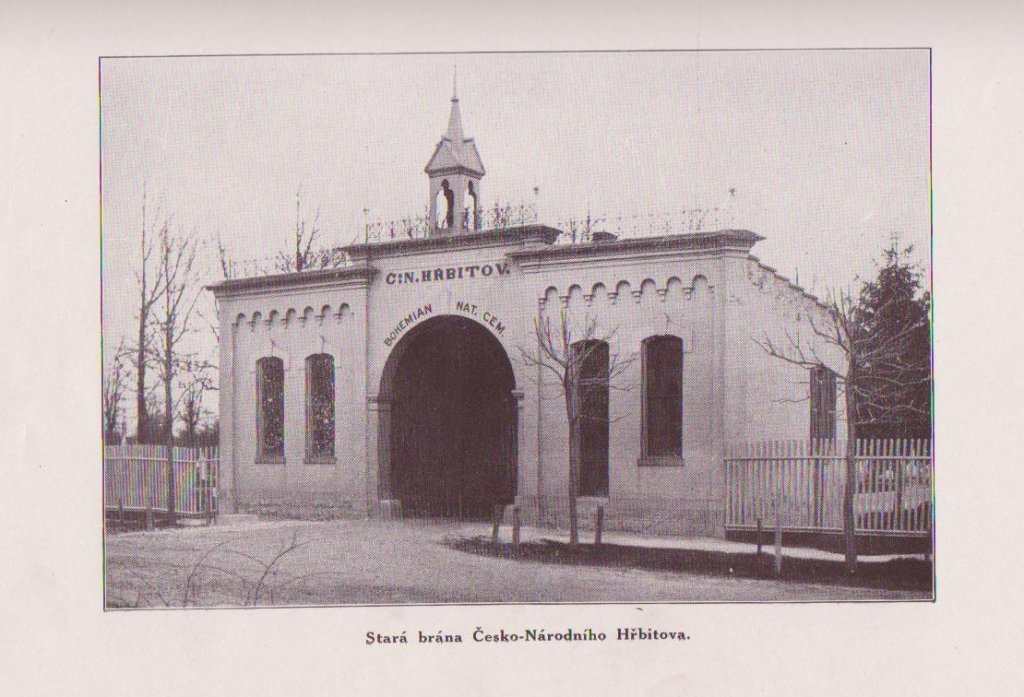
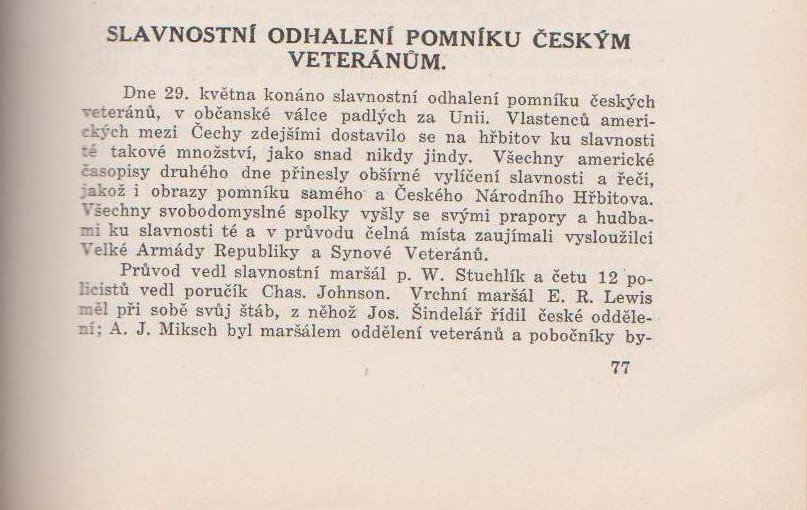
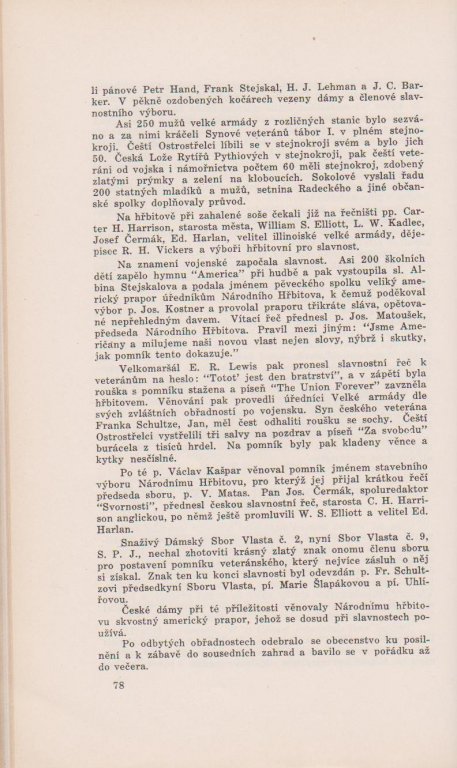
The cornerstone of The Civil War Monument, originally called the Bohemian Soldiers' and Sailors' Monument, was laid on July 28, 1899 and dedicated on May 29, 1892. Designed by artist, Joseph Klir, the bronze statue represents a private soldier in full fatigue uniform, holding a flag in his left hand and a musket with bayonet in his right. The base inscription is "PRO NOVOU VLAST” - for the new country. The memorial cost was $5,035.
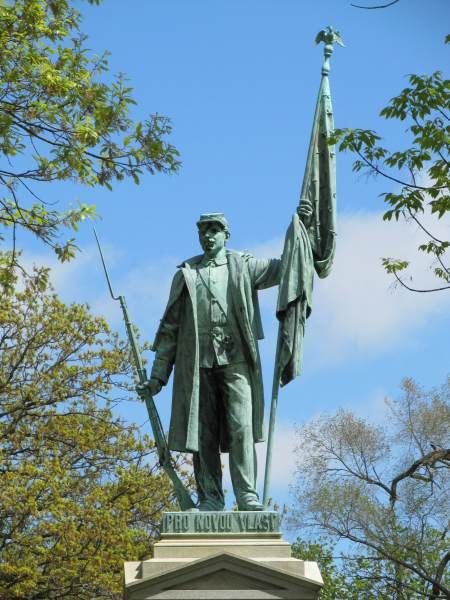
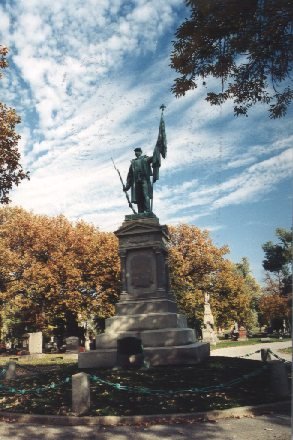

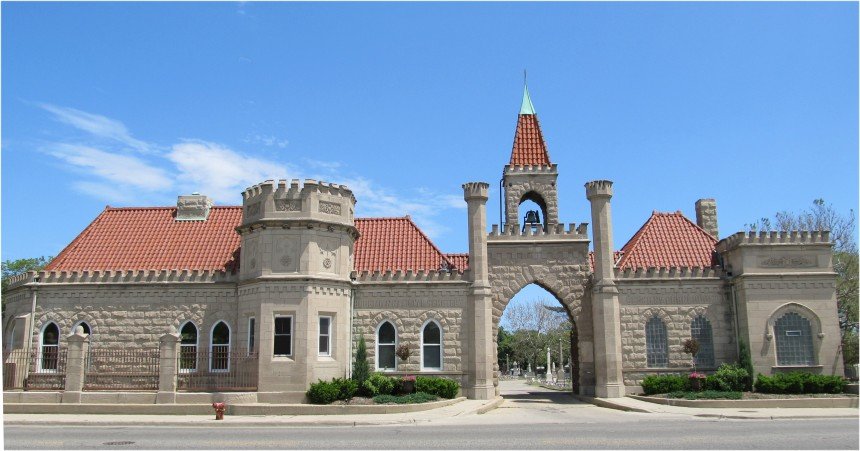
Gatehouse
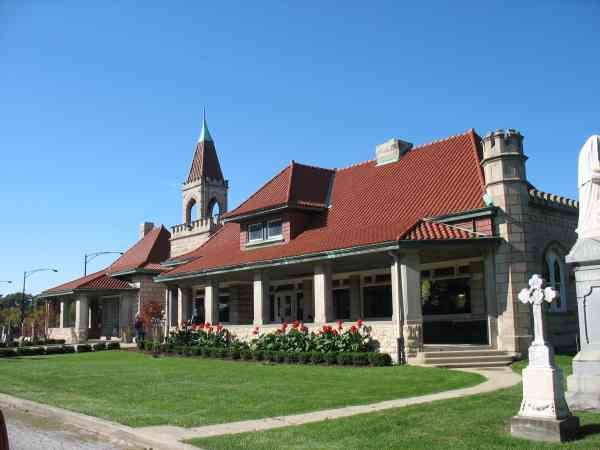
Gatehouse - rear view
Dennis C. Schurr Collection - very interesting documents
Duffy, I thank you and your friends for preserving the history of the 9th Illinois Cavalry Regiment in the Czech Republic. My 2nd great-grandfather was John G. Schurr and lived in Coral, Illinois and was a carpenter by trade. He served in Company C. under the command of Captain Smith A. Davison. John was demobilized on 31 October 1865 with the regiment in Selma, Alabama, where they had been ordered to board the trains to Springfield, Illinois for final termination of service. On November 10, 1865 the cars arrived and the soldiers were immediately assigned to Camp Butler. After eight days they were paid by the Paymaster General and finally mustered out of service. John departed for his long journey home, but died of pneumonia along his way, never to see his wife and newborn son. Captain Smith A. Davison later testified in behalf of my 2nd great-grandmother to help her win her war pension. I have included two images of Smith A. Davison. You can use any of the attachments from my collection for your website. I am also sending you two rare pictures of Colonel Albert G. Brackett standing dressed in his frock coat and Lieutenant colonel S. A. Paddeck wearing his cavalry sash and saber.
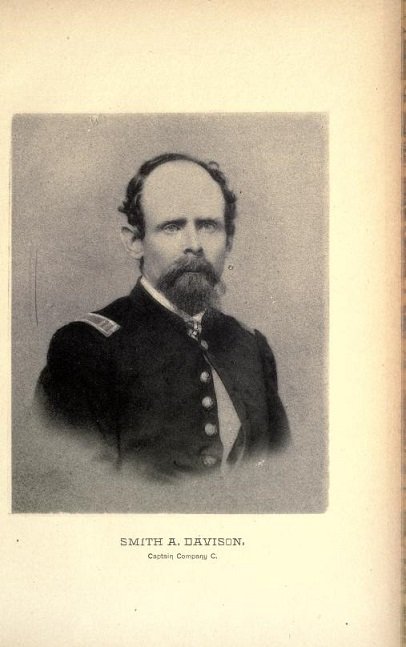
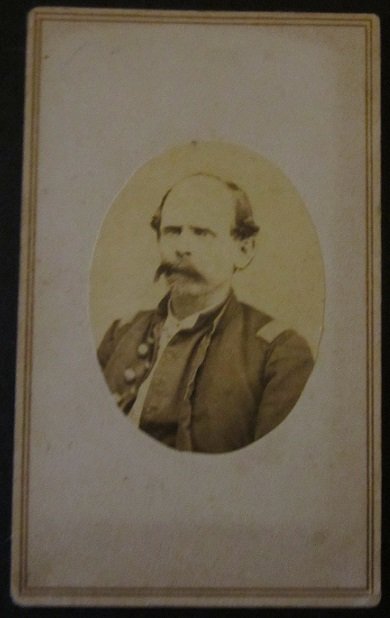
Captain Smith A. Davison Company C
Commanding Pvt. John G. Schurr (2nd great-grandfather of Dennis C. Schurr)
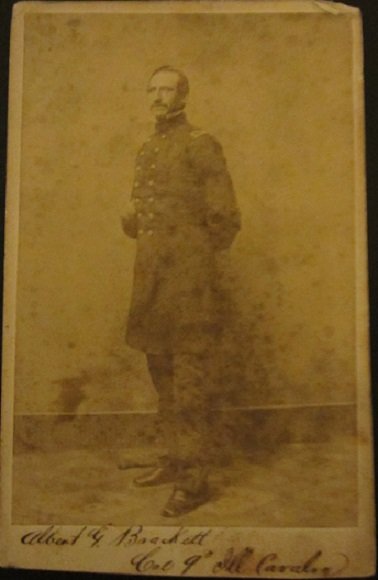
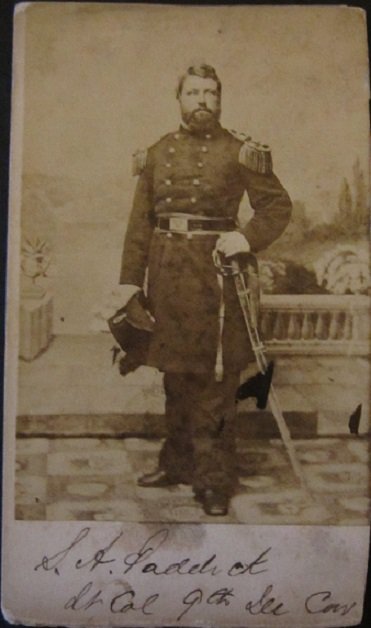
Col. Albert G. Brackett and LtCol. S. A. Paddeck
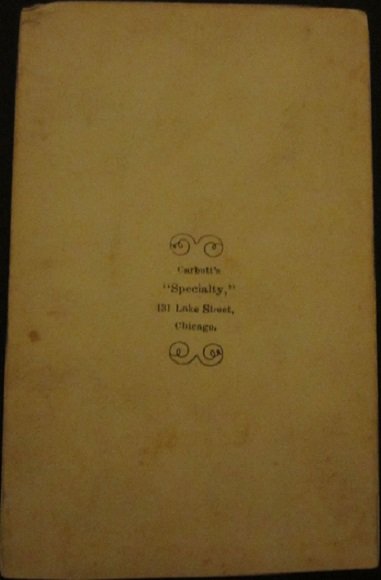
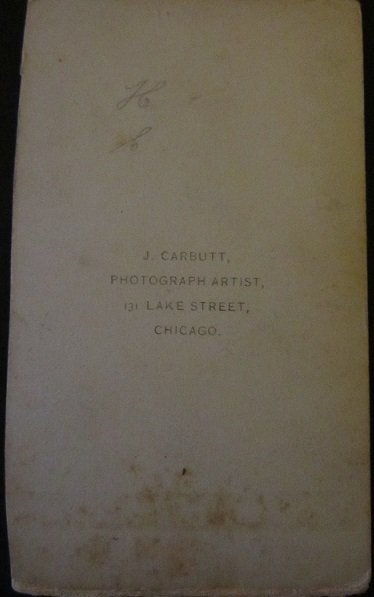
Both pictures were taken by J. Carbuttem from Chicago.
This collection contains images, payroll receipts, commemorative ribbons, programs, badges and so on. "
So please check very rare documents. We are honored to present it here.
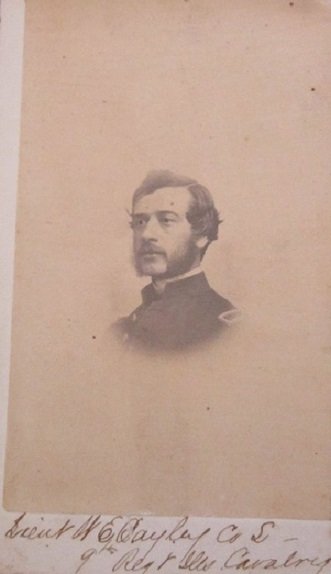
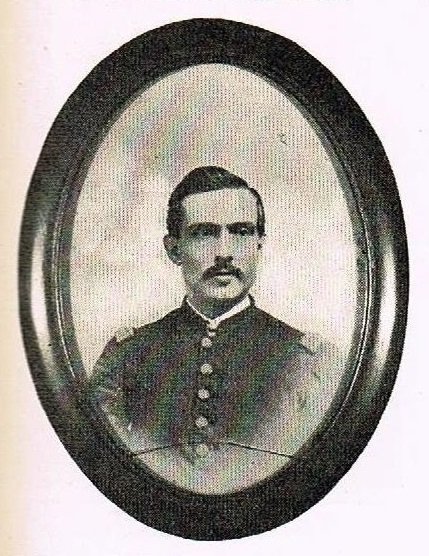
Lieut. William E. Bayley, Company L & 1st Lieutenant Othman Ali Abbott Co. I
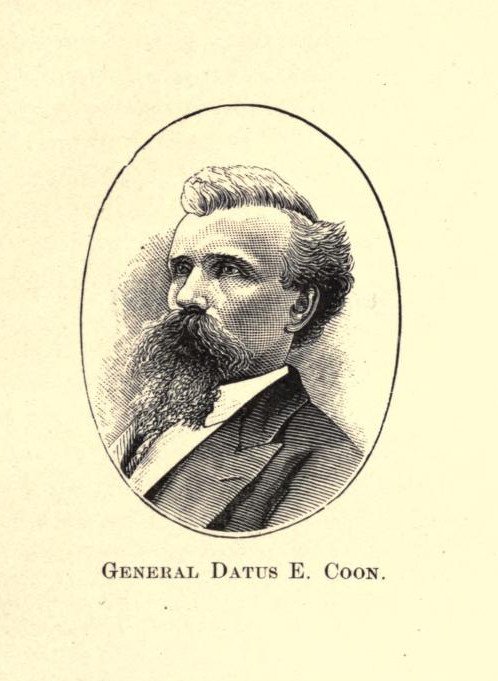
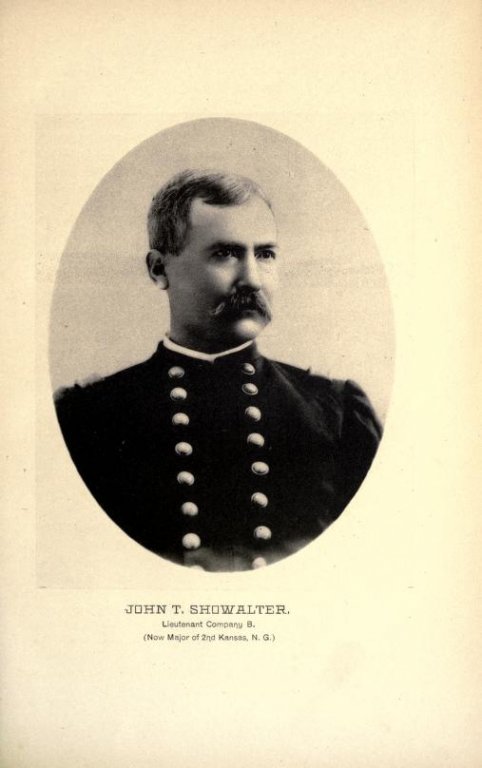
General Datus E. Coon & Lieut. John T. Showalter Company B
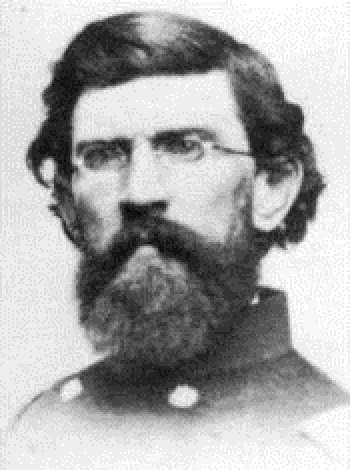
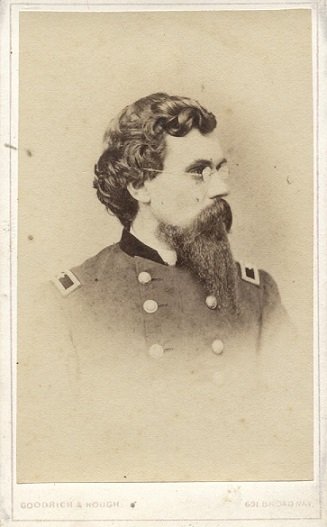
Lieutenant Colonel, Hiram F. Sickles & Brevet Brigadier General Hiram F. Sickles
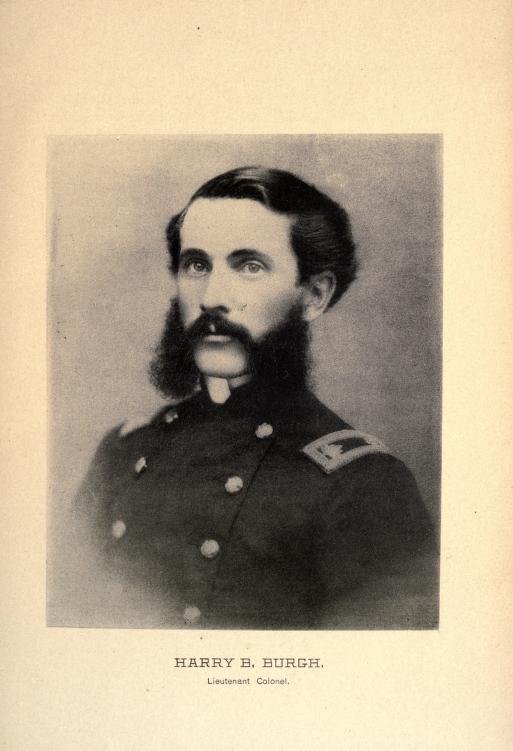
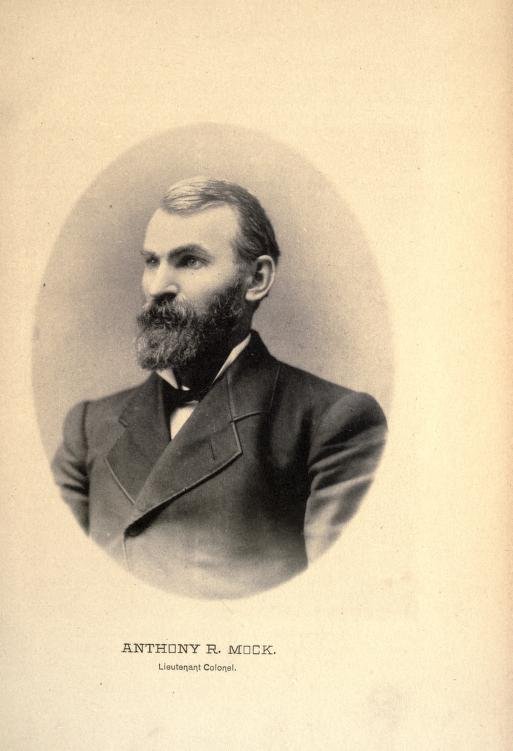
Lt. Col. Harry B. Burgh & Lt. Col. Anthony R. Mock
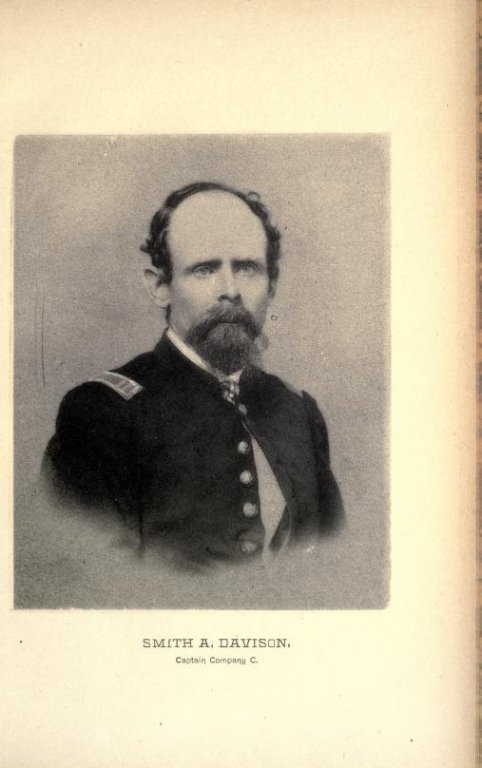
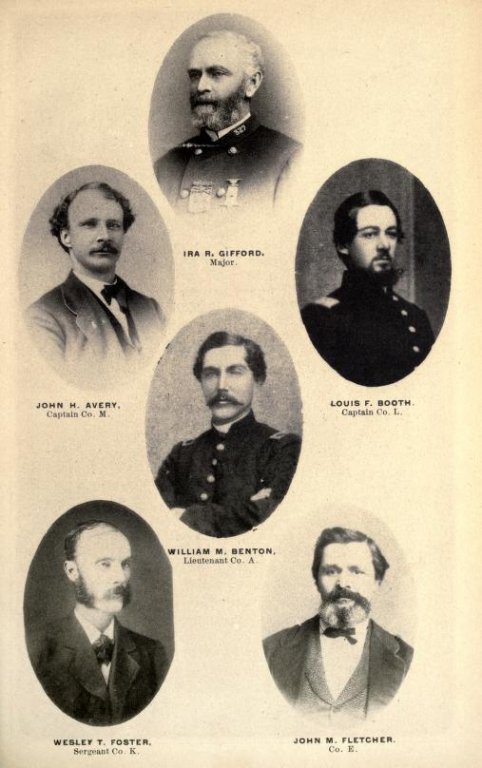
Captain Smith A. Davison Company C & Commanding Officers
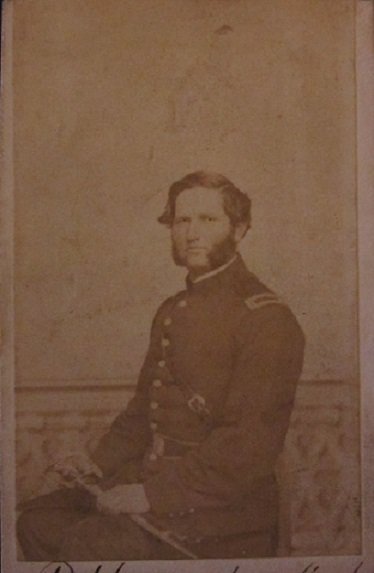
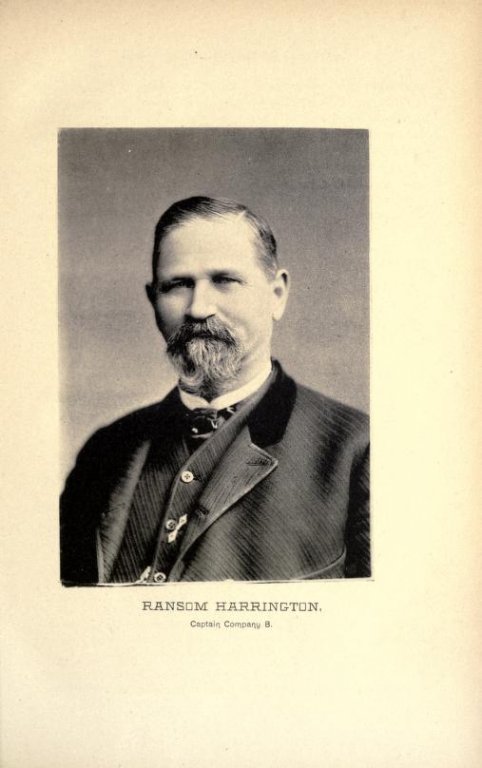
Ransom Harrington Company B - Date of Muster Sep 19, 1861 in rank 2nd Lt. , Promoted 1st Lt. Sep 25, 1861, Promoted Capt. Jan 16, 1863
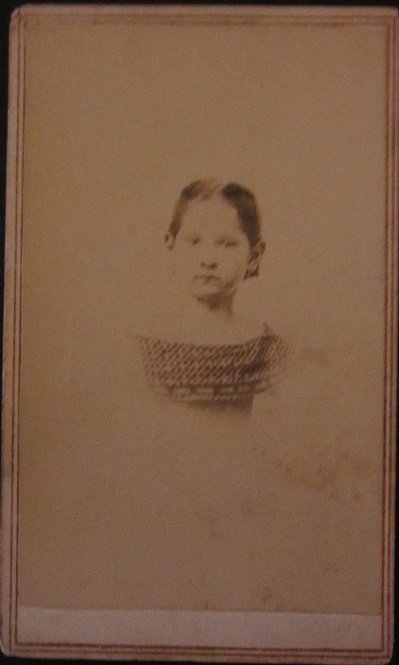
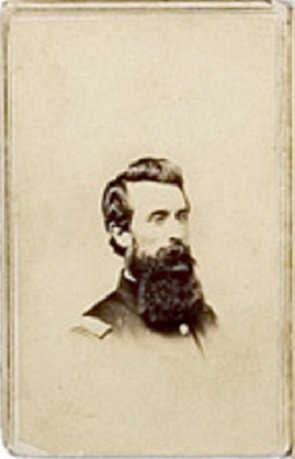
Clara Harrington, daughter Ransom Harrington, Company B & Captain Samuel Purviance, Company E
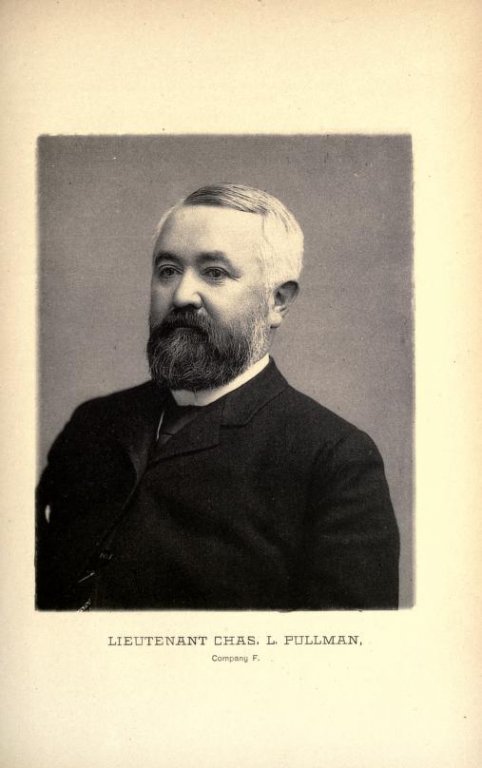
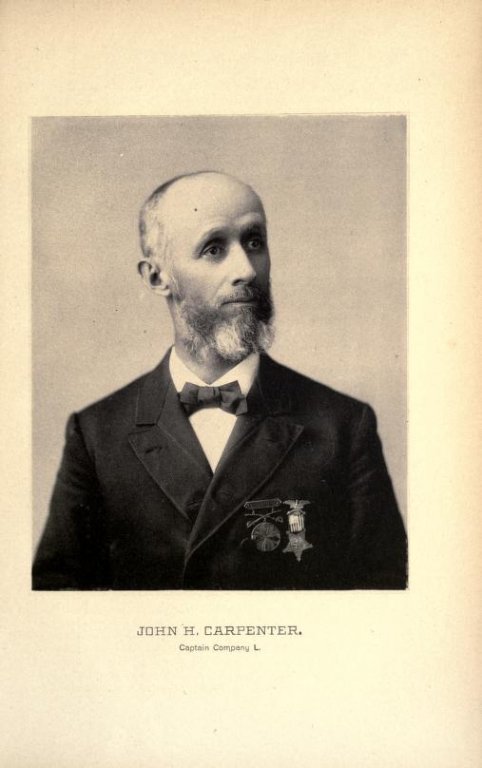
Lieutenant Chas. L. Pullam Company F & Captain John H. Carpenter Company L
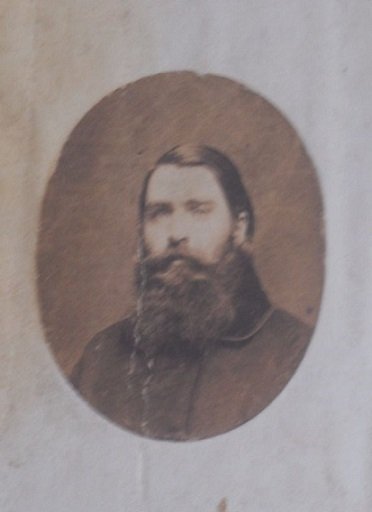
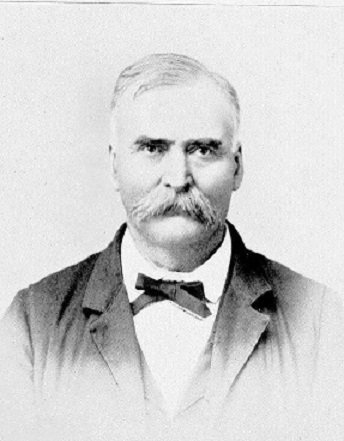
Major Atherton Clark - Company K
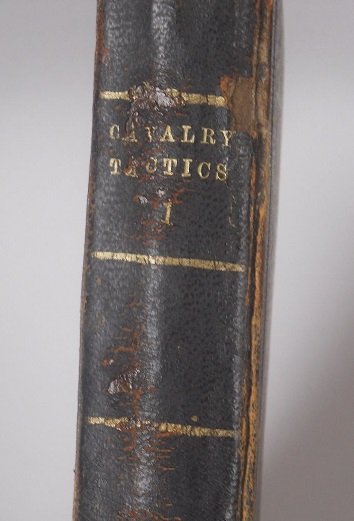
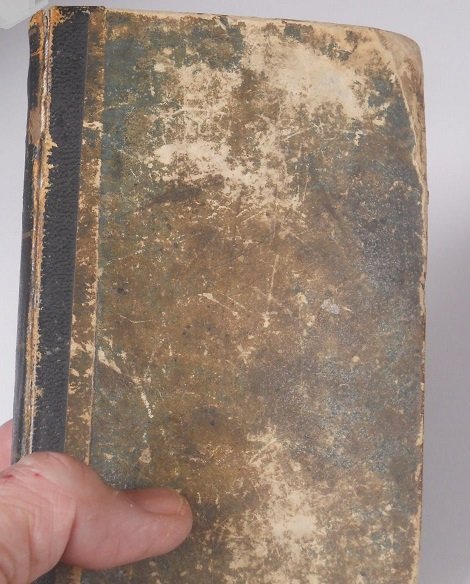
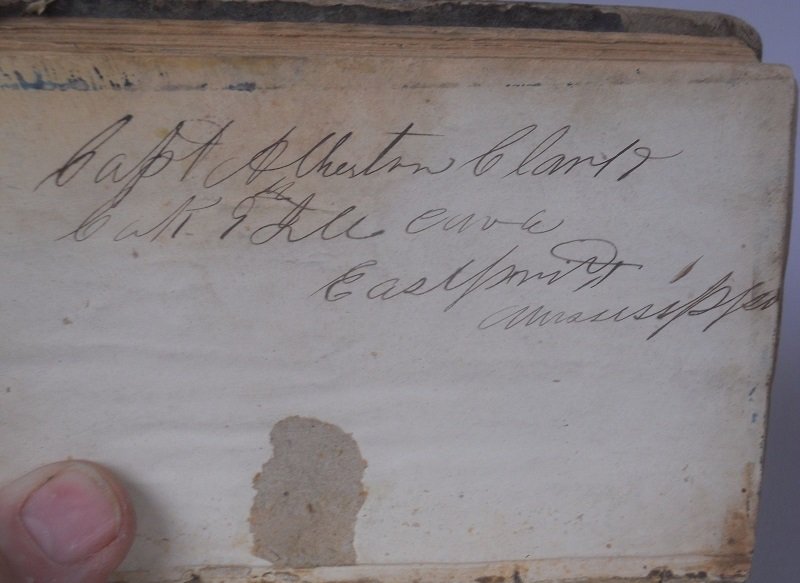
Copy of Cavalry Tactics Part 1 - That was used by Captain Atherton Clark, Co K
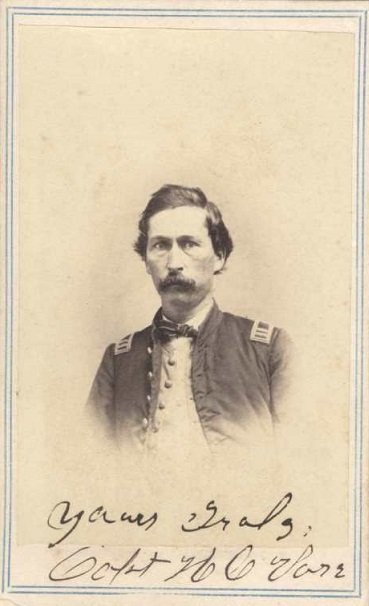
Captain Harrison C. Vore, Company G
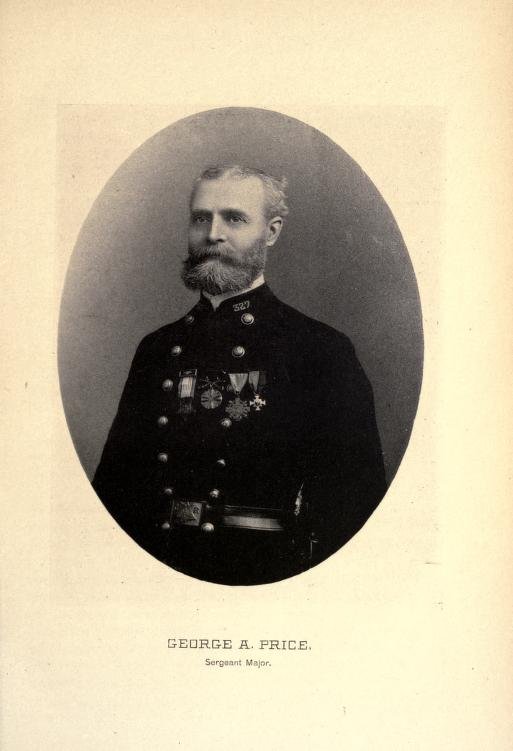
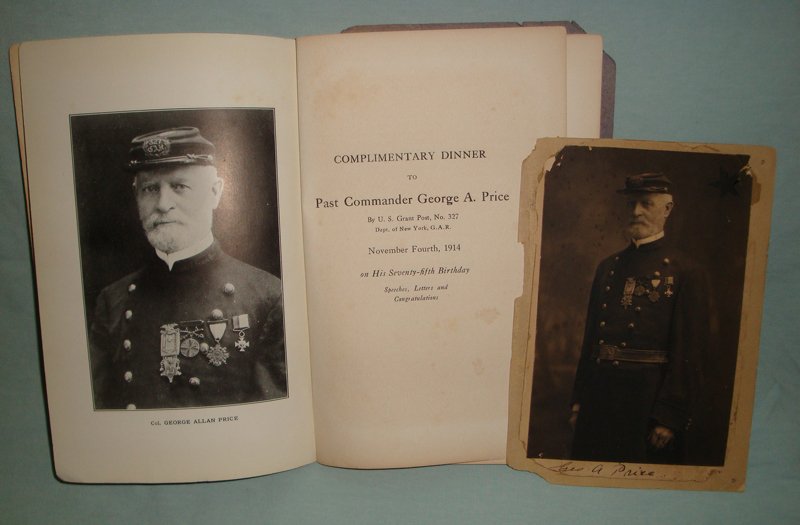
Sergant Major George A. Price
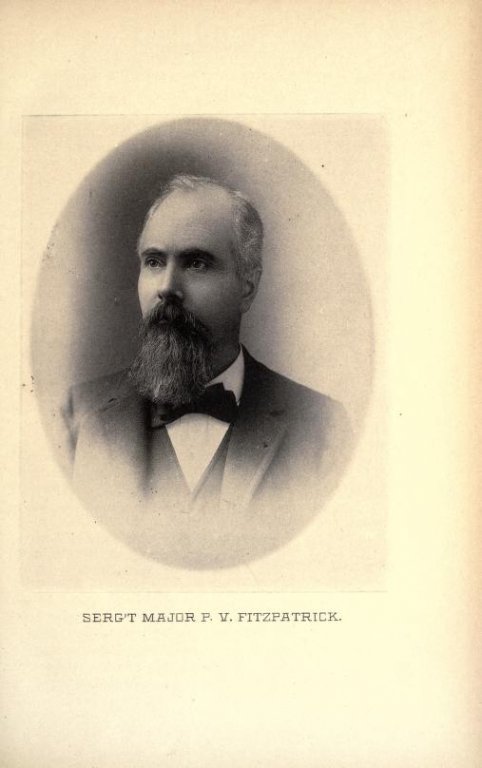
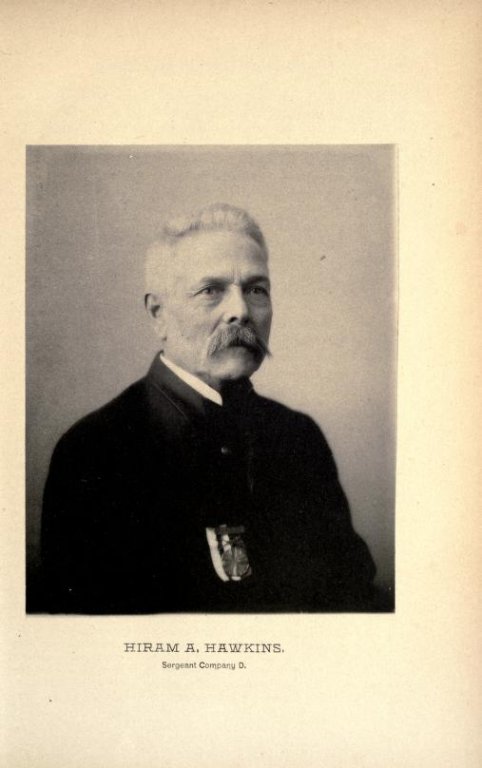
Sergeant Major P.V. Fitzpatrick & Sergeant Hiram A. Hawkins Company D
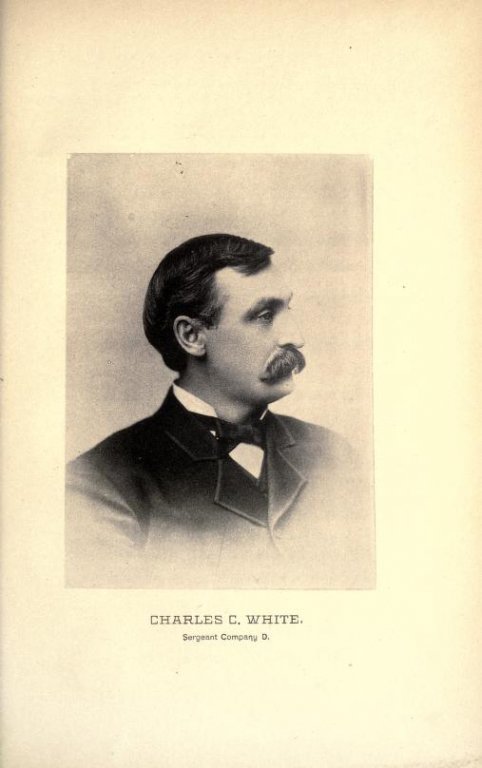
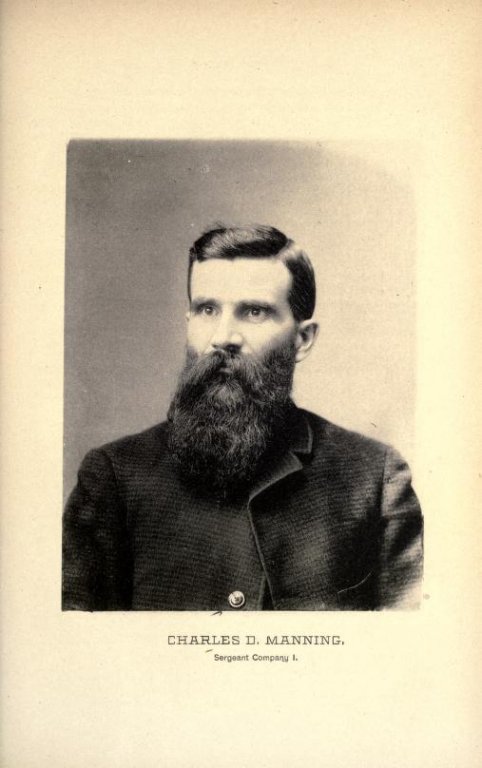
Sergeant Charles C. White Company D & Sergeant Charles D. Manning Company I
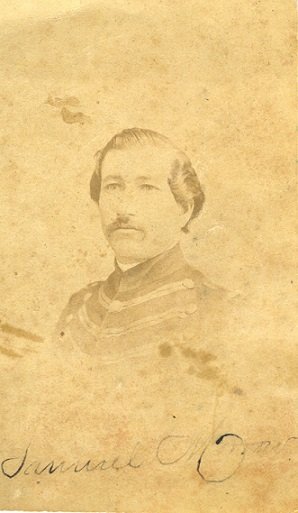
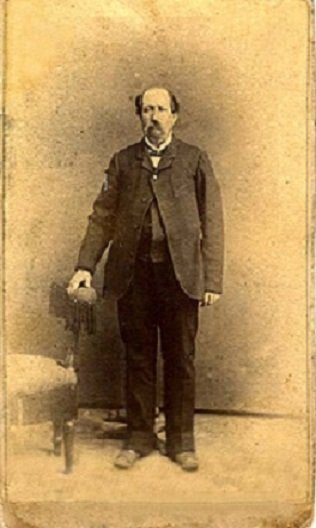
Sergeant Samuel Morrow - Company B
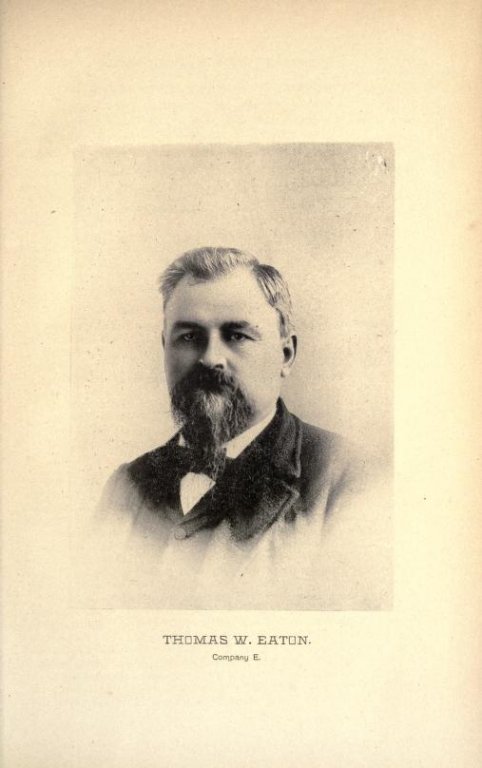
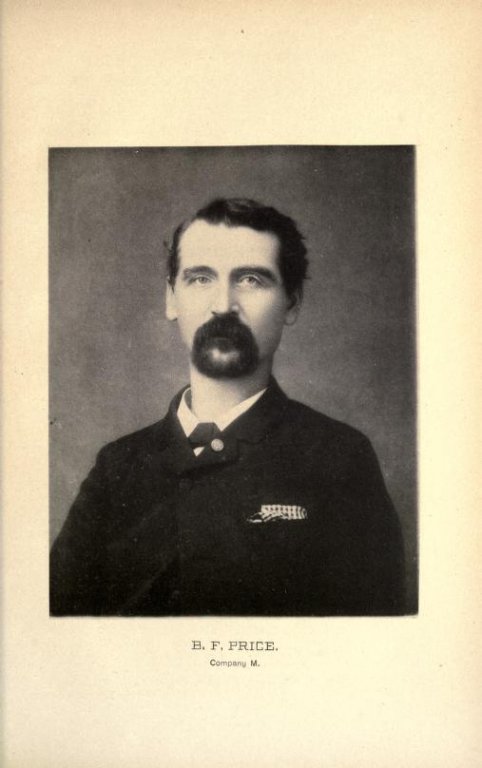
Thomas W. Eaton - Company E. & B.F. Prive - Company M
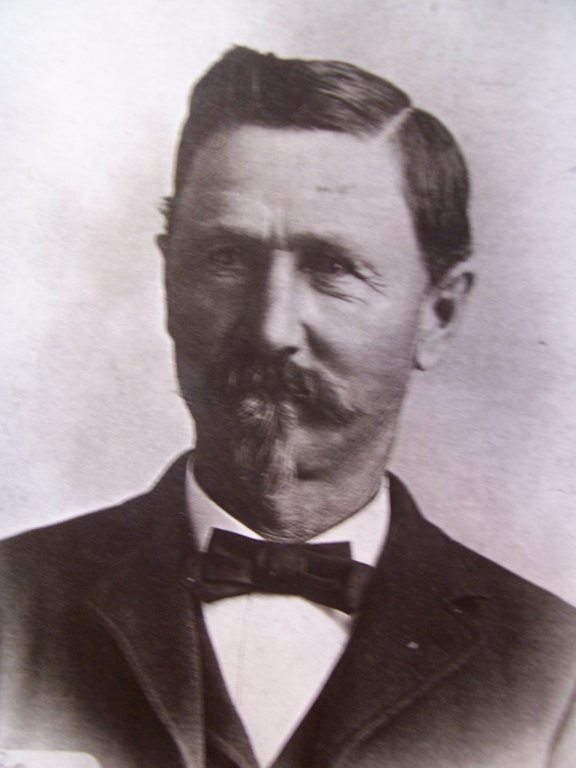
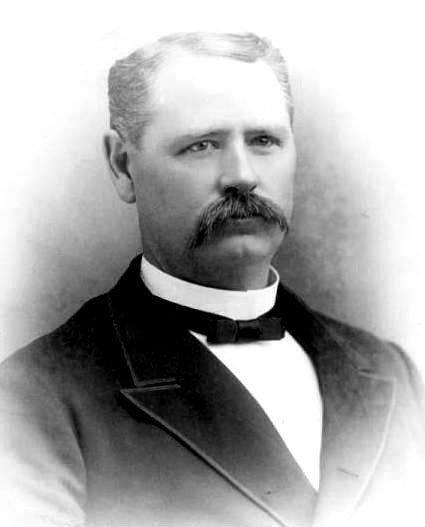
Private Nicholas Schmitt, Company E & Private Harry A. Bigelow Company M
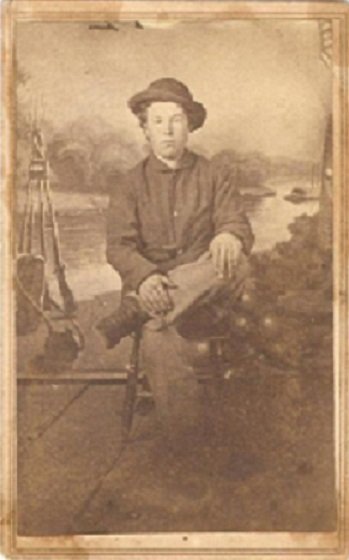
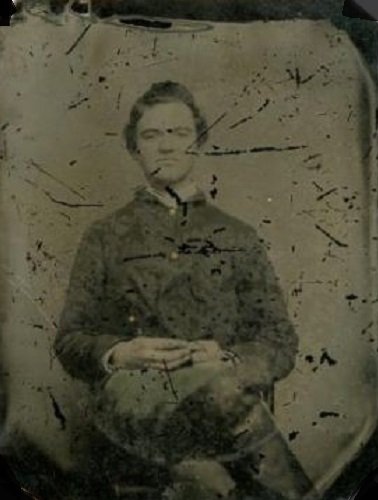
Private Albert Sedgley - Company B & William R. Wilder Company F - promoted Bugler
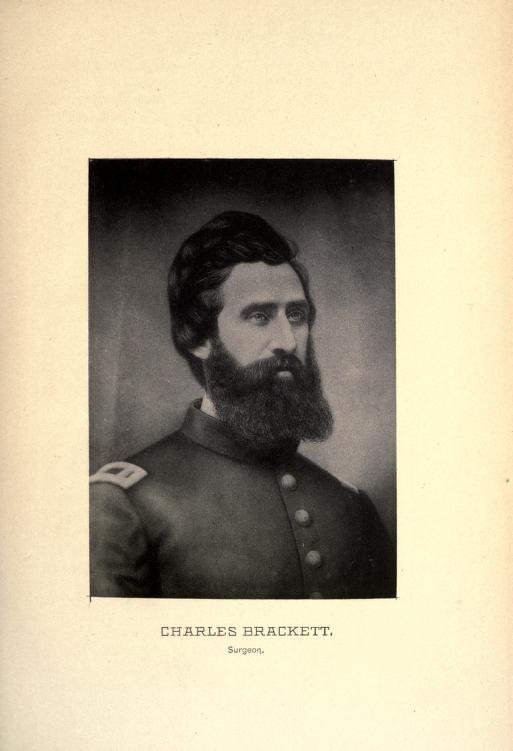
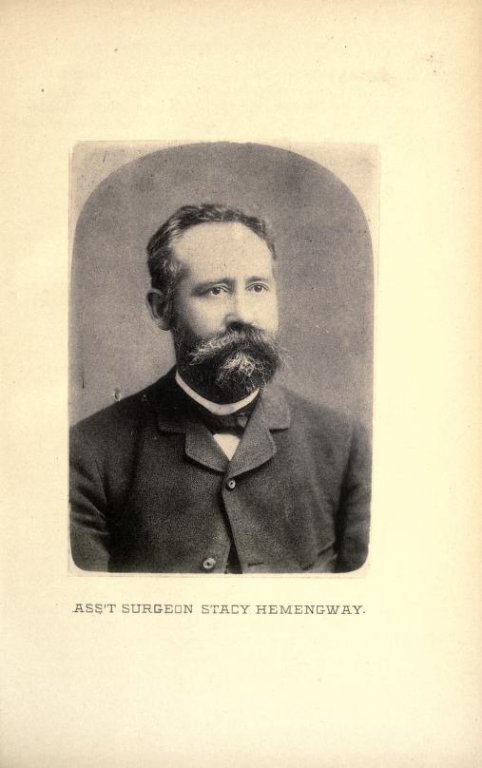
Surgeon Charles Brackett - brother, Col. Albert Gallatin Brackett & Ass't Surgeon Stacy Hemengway
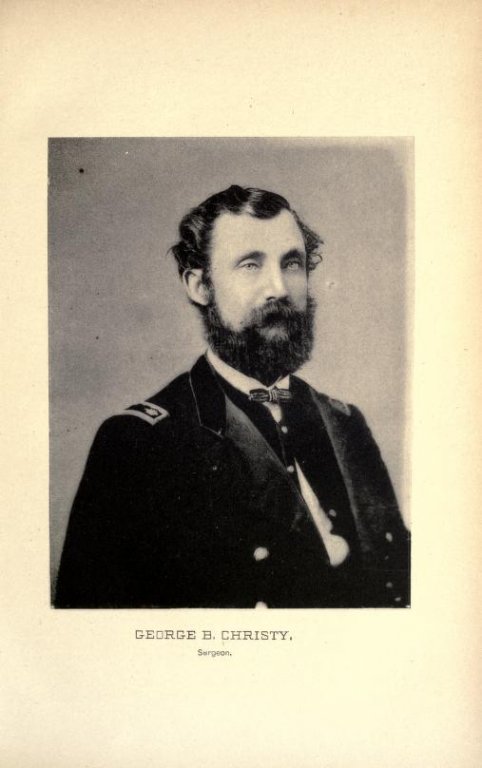
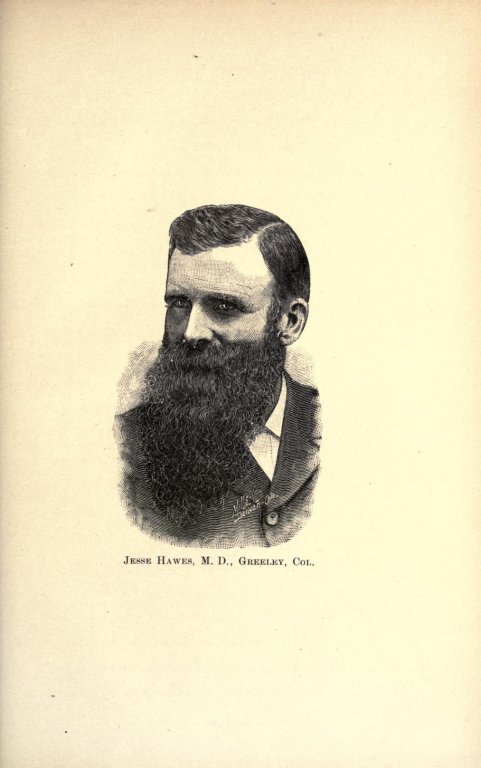
Surgeon George B. Christy & Jessee Hawes, M.D., Greeley,Col.
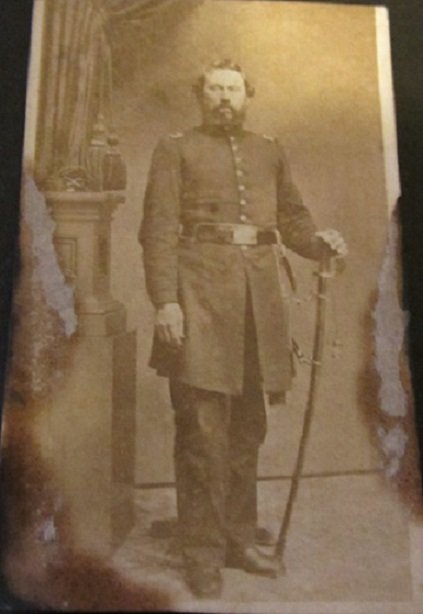
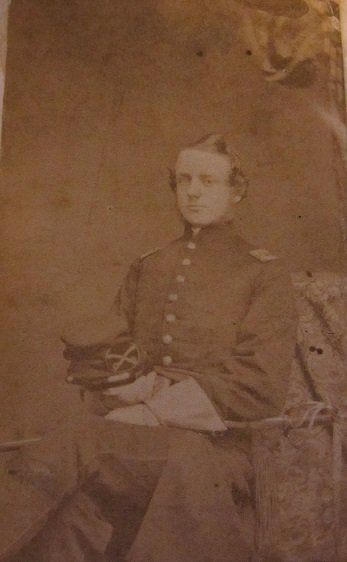
unidentified officers
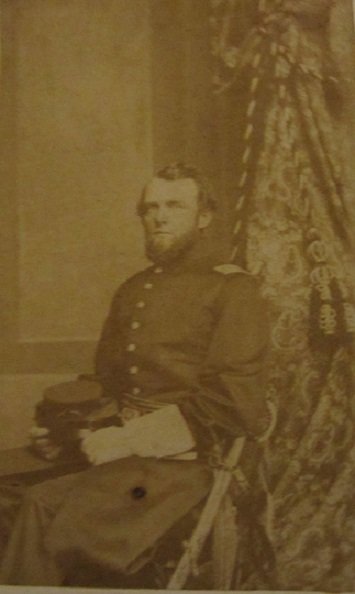
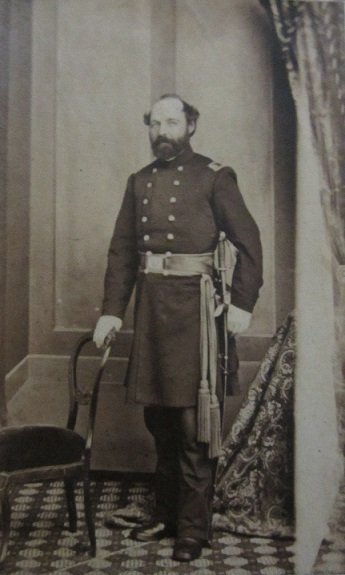
unidentified officers
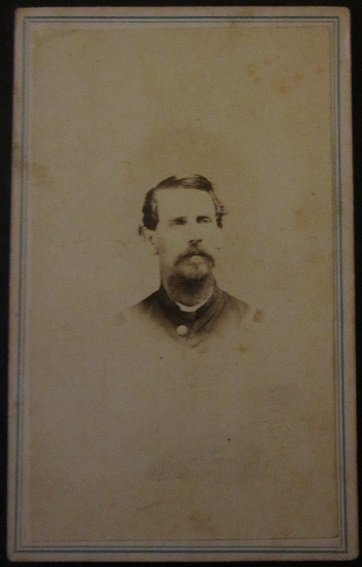
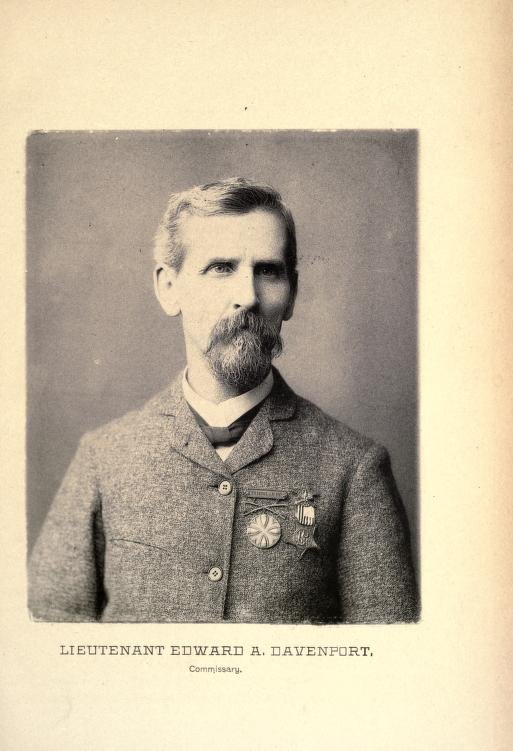
Edward A. Davenport, Company C - September 19, 1861 entered into the regiment as Quartermaster sergeant, later commissioned 1st lieutenant, April 8, 1863
Information from Dennis C. Schurr:
,,Twenty years after being mustered out, the regiment had it's 1st Reunion in Chicago, September, 28th & 30th, 1886. Two very important issues were discussed, the first being a design for their veterans badge. Since they carried Sharp carbines and were in the 16th Corp, it was decided to combine the two. The second was to consider publishing a regimental history. The first moved very quickly and were made available before the second reunion. (See attachments) At the 2nd Reunion, again it was brought up to write and publish a regimental history. After much discussion a History Committee was formed, nominating Lieutenant Edward A. Davenport as Historian. The committee, first were going to contact one of the veterans that had written a history to review it and get his approval to use and publish before the next reunion, however they were un able to make contact after many attempts. Edward A. Davenport suggested that they start from scratch, additional members were added to the committee. Mailing request were sent out immediately to the members asking them for stories and images. This project became a labor of love for the committee and was completed prior to their next reunion in 1888."
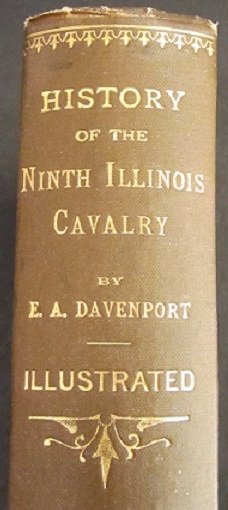
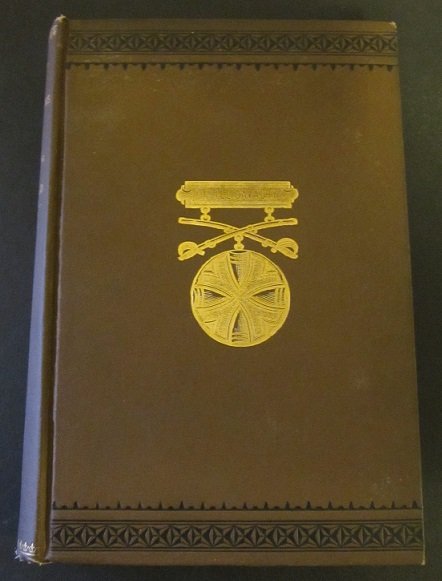
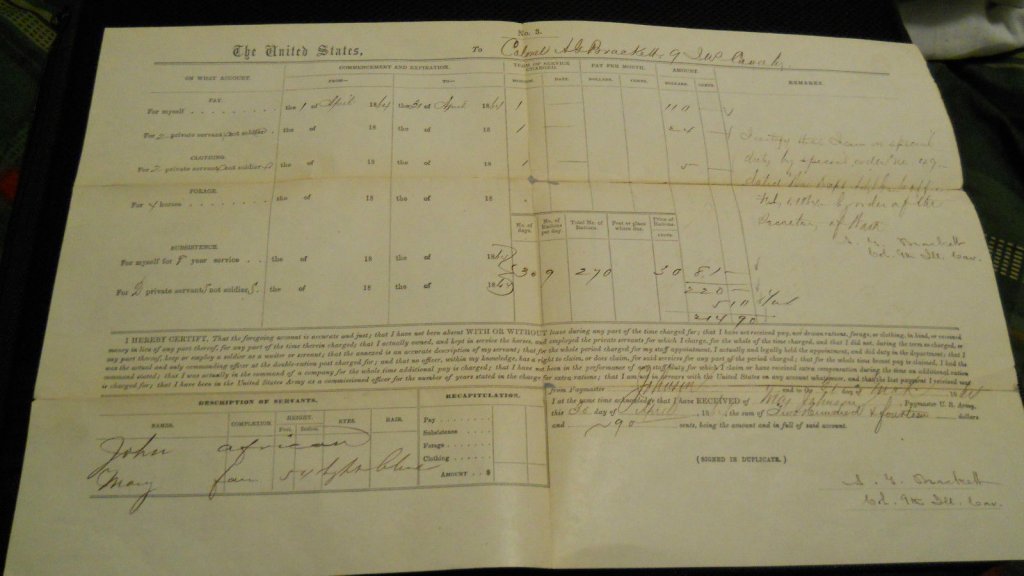
Pay voucher for Col. A. G. Brackett 9th Illinois Cavalry
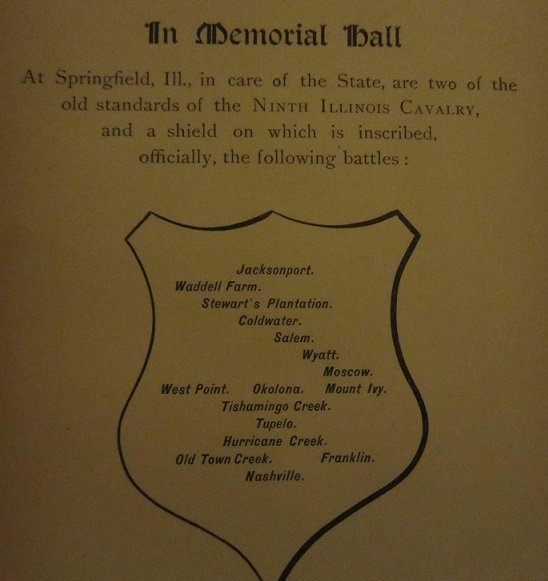
In Memorial Hall
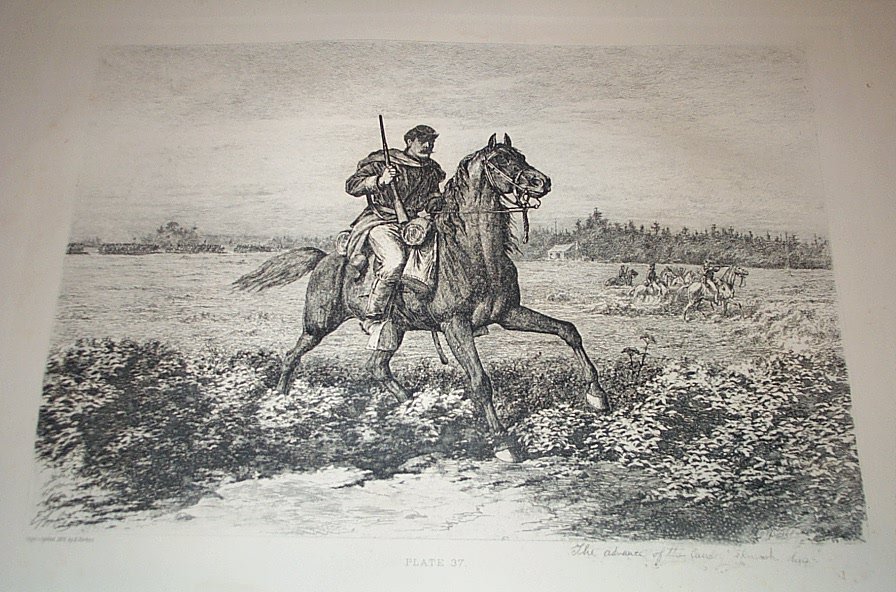
An Advance of the Cavalry Skirmish Line - artist Forbes
Veteran ribbons
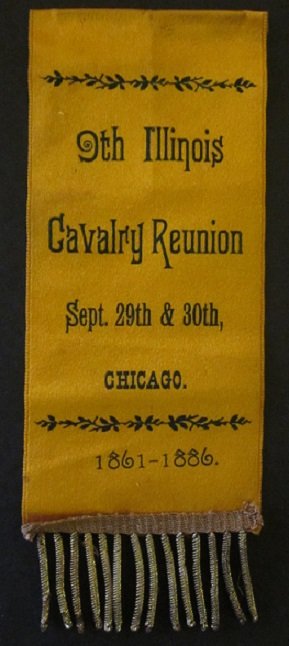
1st Reunion Ribbon - Chicago, Sep. 28th & 30th, 1886
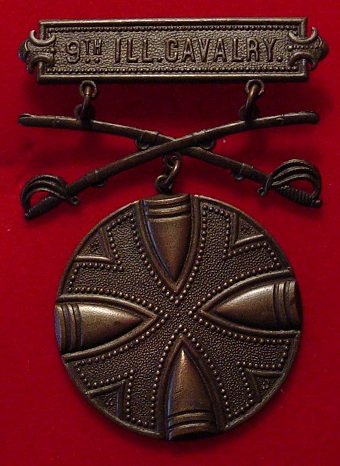
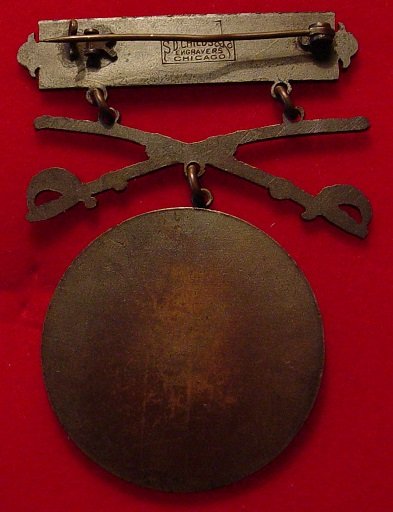
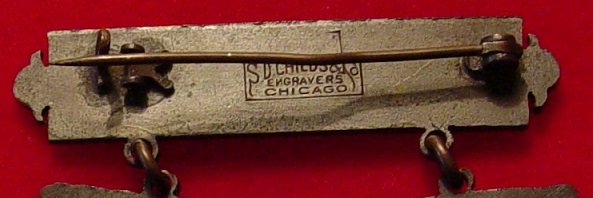
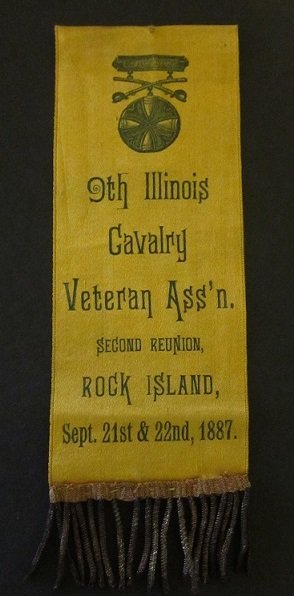
2nd Reunion Ribbon - Rock Island, Sep. 21st & 22nd, 1887
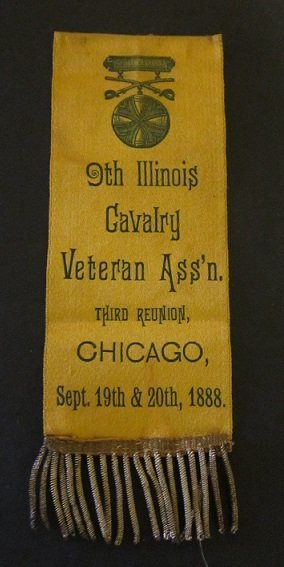
3rd Reunion Ribbon - Chicago, Sept. 19th & 20th, 1888
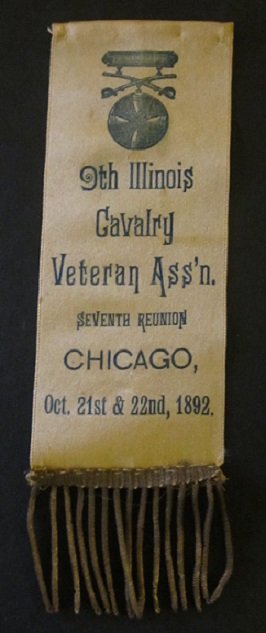
7th Reunion Ribbon - Chicago, Oct. 21st & 22nd, 1892
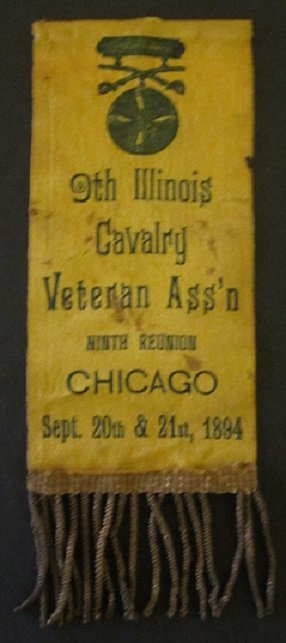
9th Reunion Ribbon Chicago, Sept. 20th & 21nd, 1894
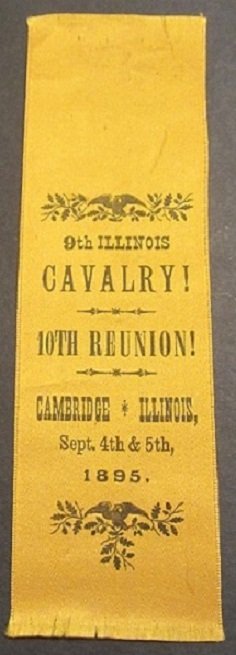
10th Reunion Ribbon - Cambridge, Illinois, Sept. 4th & 5th, 1895
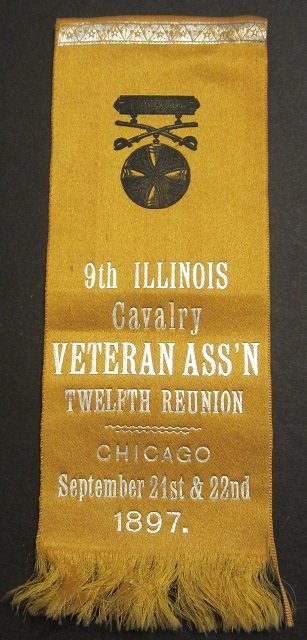
12th Reunion Ribbon - Chicago, Sept. 21st & 22nd, 1897
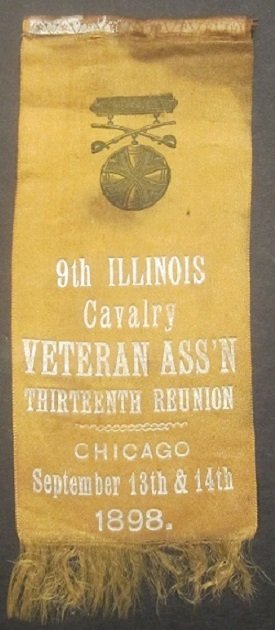
13th Reunion Ribbon-Chicago, September 13th & 14th 1898.
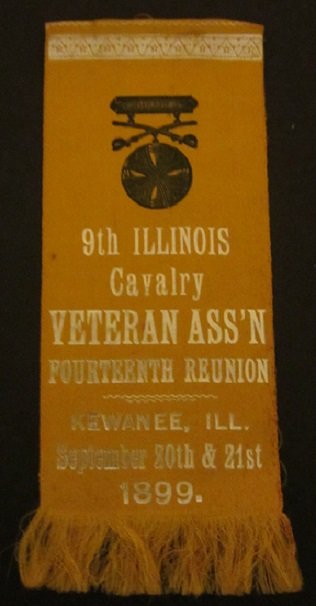
14th Reunion Ribbon - Kewanee, Sept. 20th & 21st, 1899
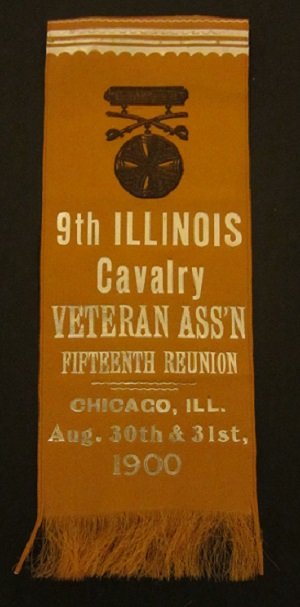
15th Reunion Ribbon - Chicago, Aug. 30th & 31st, 1900
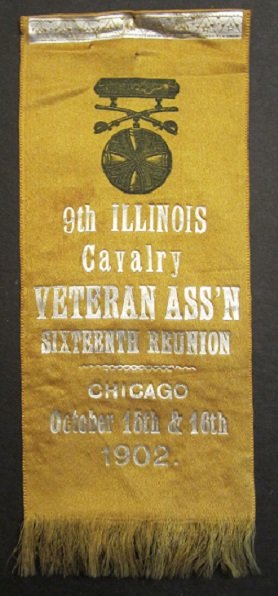
16th Reunion Ribbon - Chicago, Oct, 15th & 16th, 1902
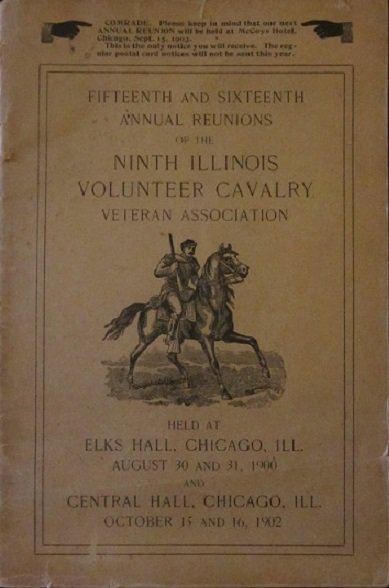
15th & 16th Reunion Program in 1900 and 1902 Year
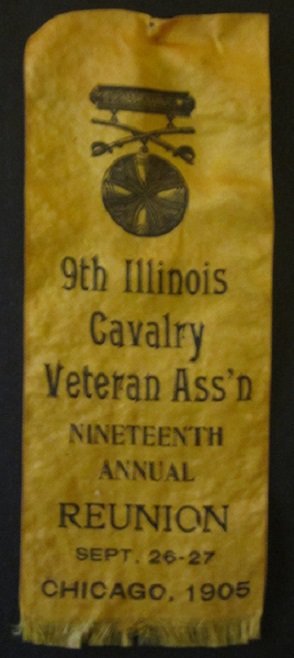
19th Reunion Ribbon - Chicago, Sept, 26th & 27th, 1905

23rd Reunion Ribbon - Chicago, Sept, 21st & 22rd, 1909
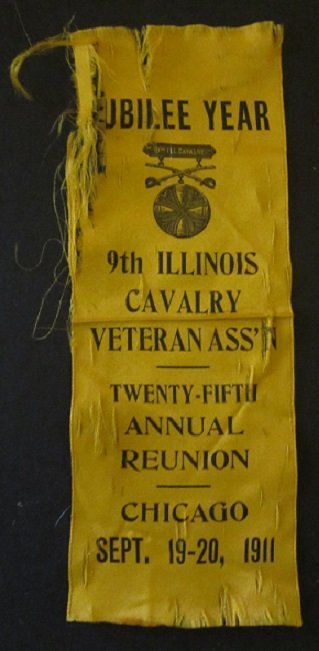
25th Reunion Ribbon - Chicago, Sept, 19th & 20th, 1911
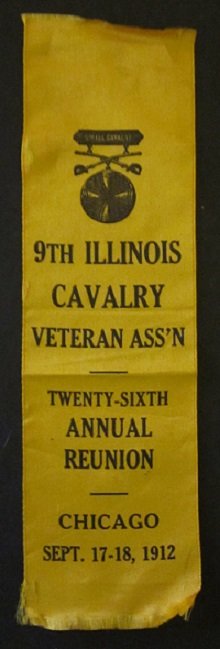
26th Reunion Ribbon - Chicago, Sept, 17th & 18th, 1912
Grand Army of the Republic in Illinois
The Grand Army of the Republic or GAR was formed in Decatur, Illinois shortly after the Civil War. by Benjamin F. Stephenson. It was the largest organization of Union veterans of the Civil War The organization promoted comradeship among veterans, worked to increase pensions and assist war widows and orphans, and maintained homes for old soldiers.
In 1868, the commander in chief of the GAR and Civil War General John Alexander Logan inaugurated the observance of Memorial Day to honor fallen soldiers. Membership in the staunchly Republican organization peaked at more than 409,000 in 1890. The last member died in 1955, and the GAR was discontinued in 1956.
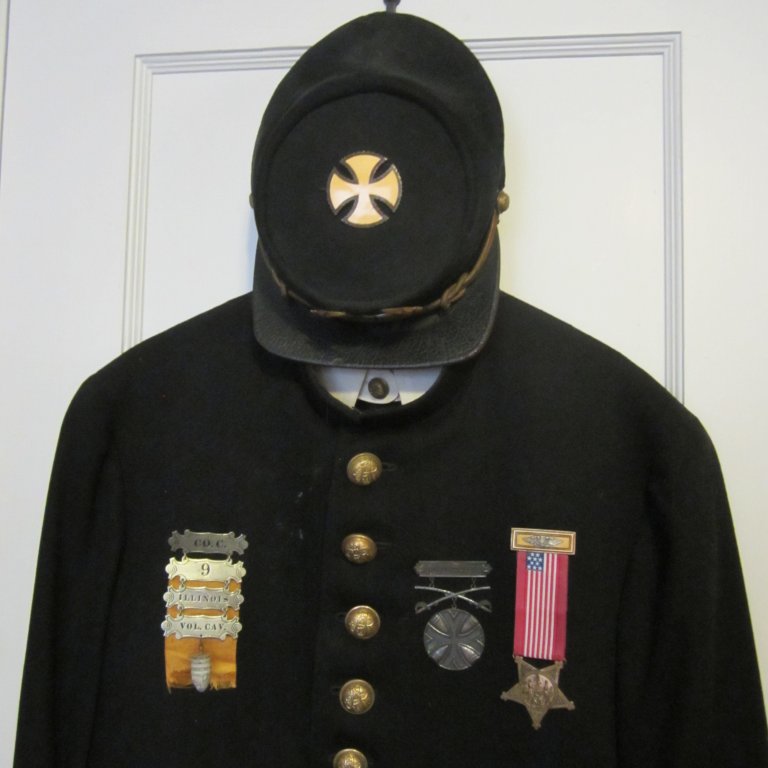
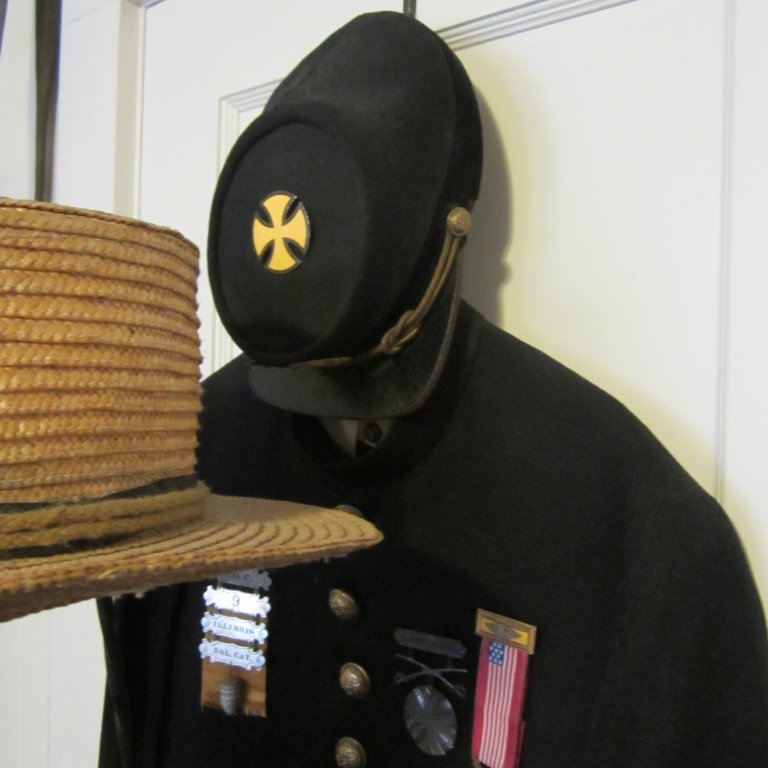
Uniform Henry H. Brown, Company C
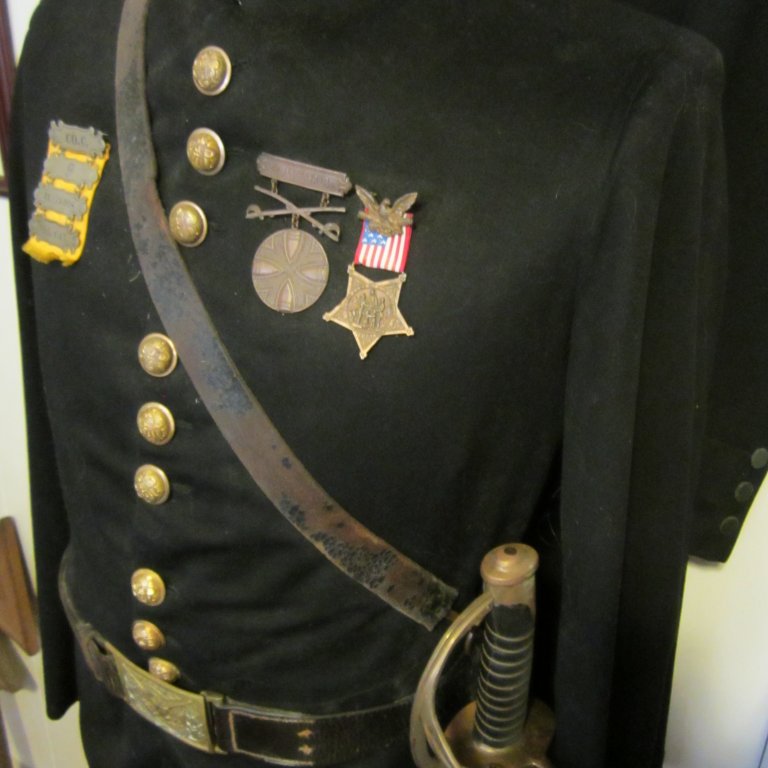
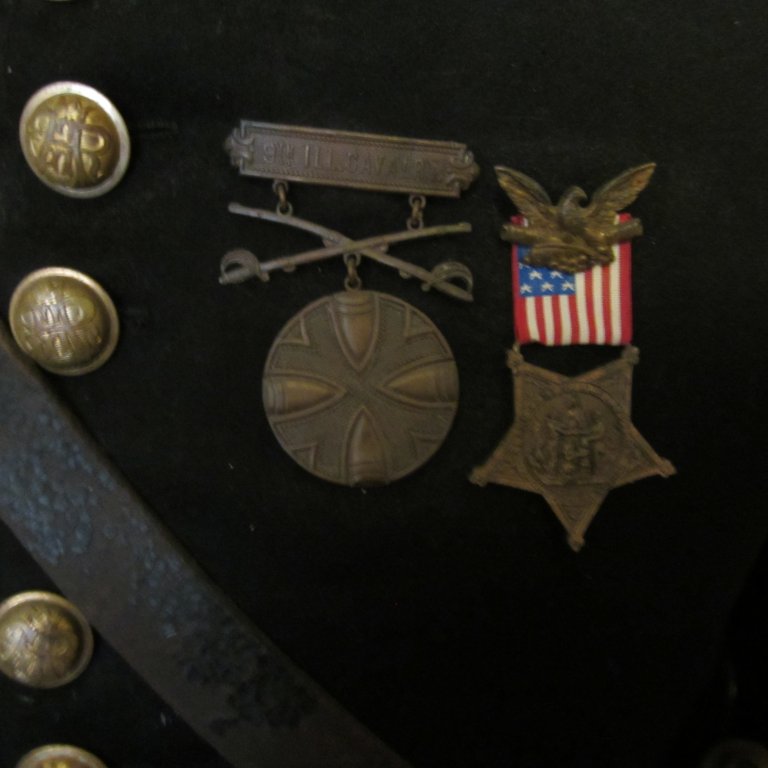
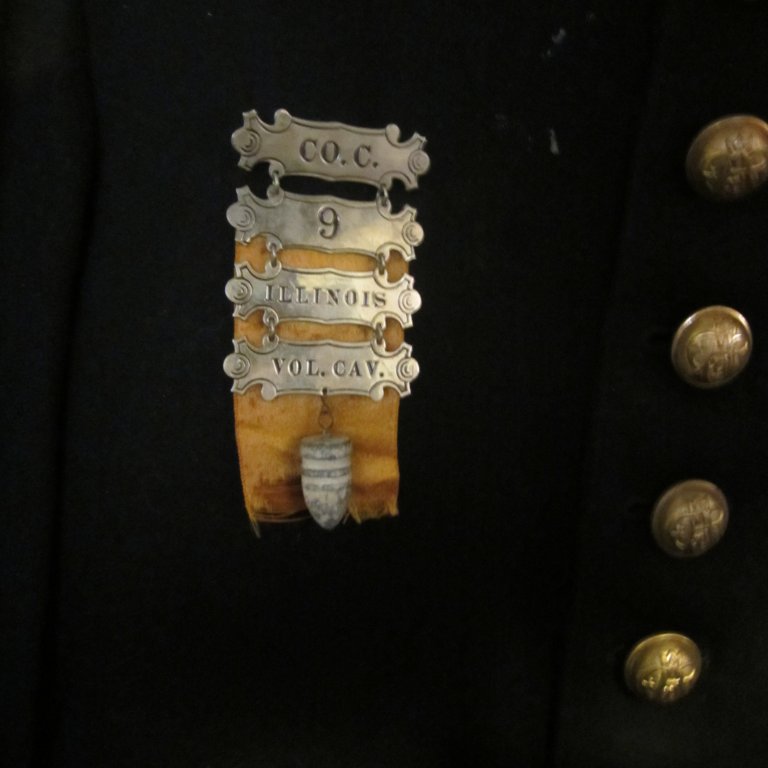
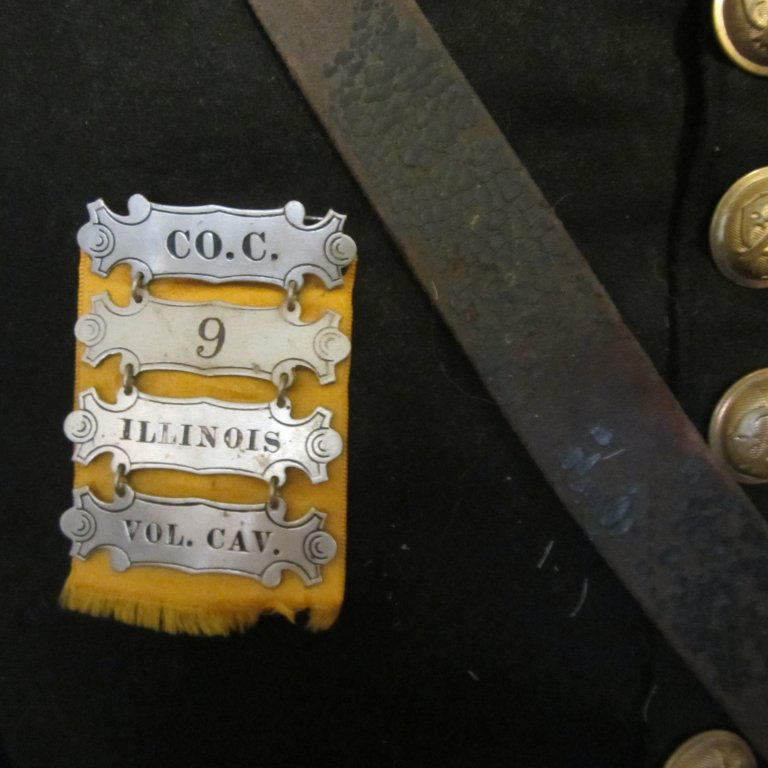
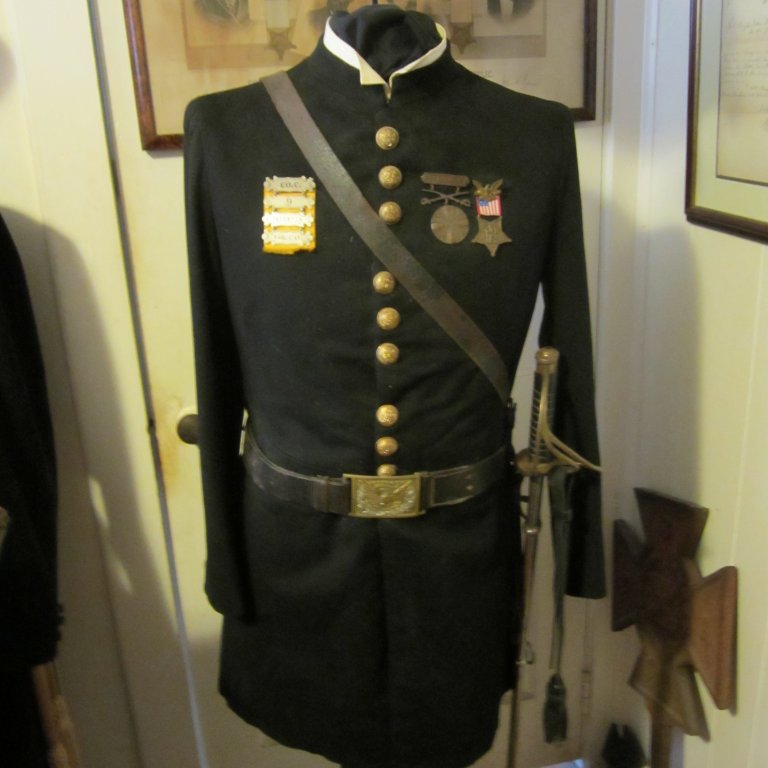
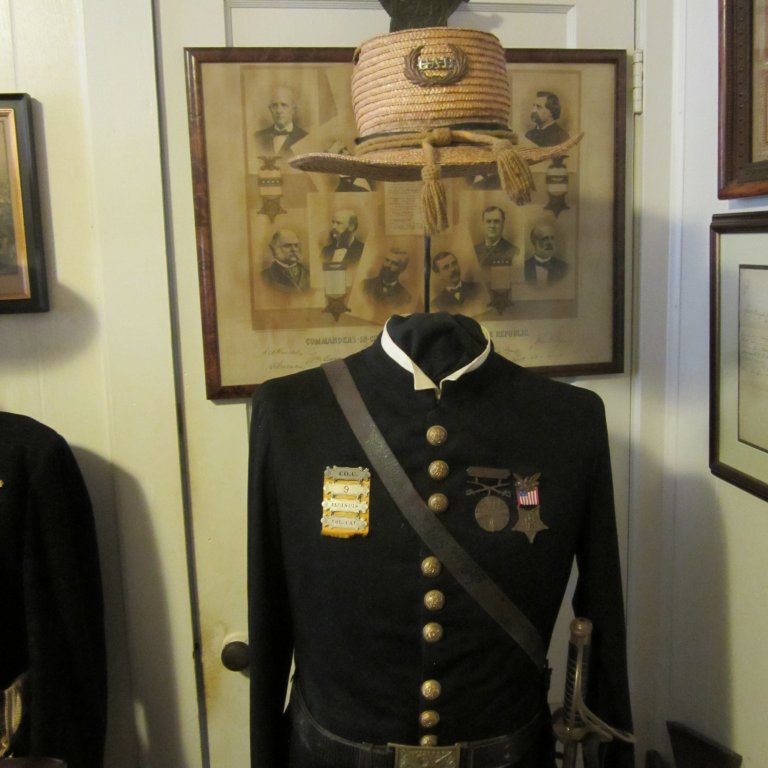
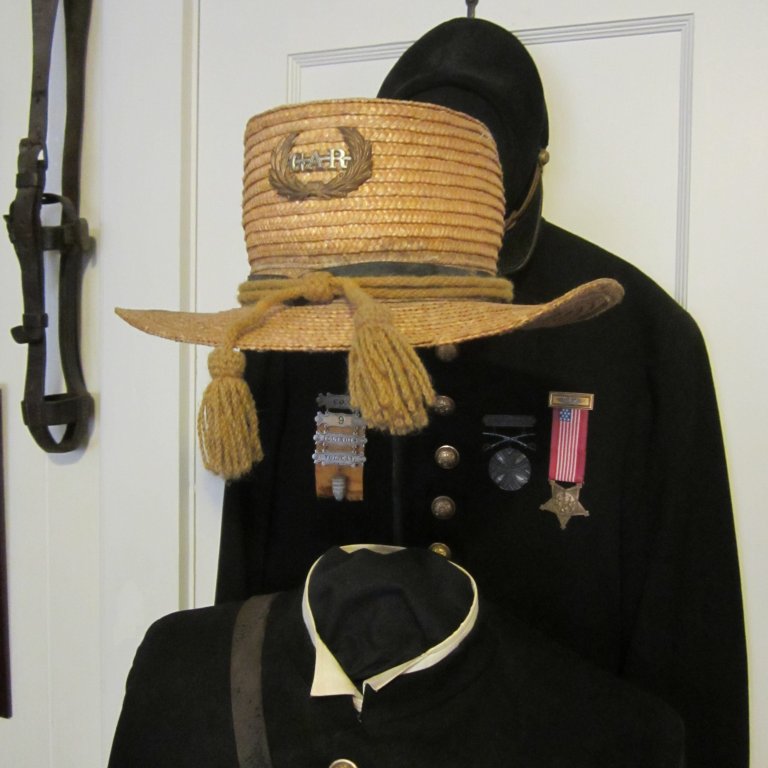
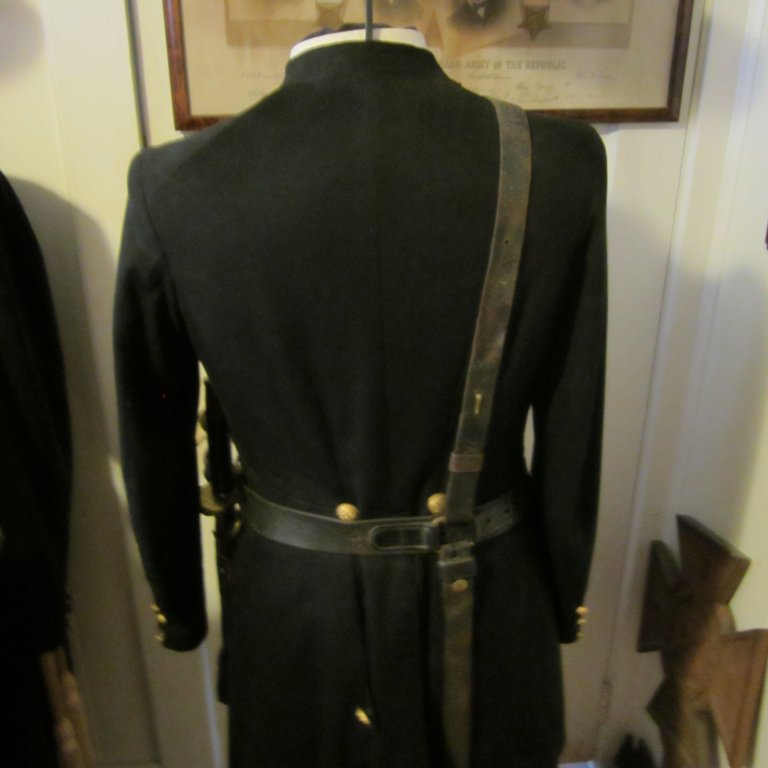
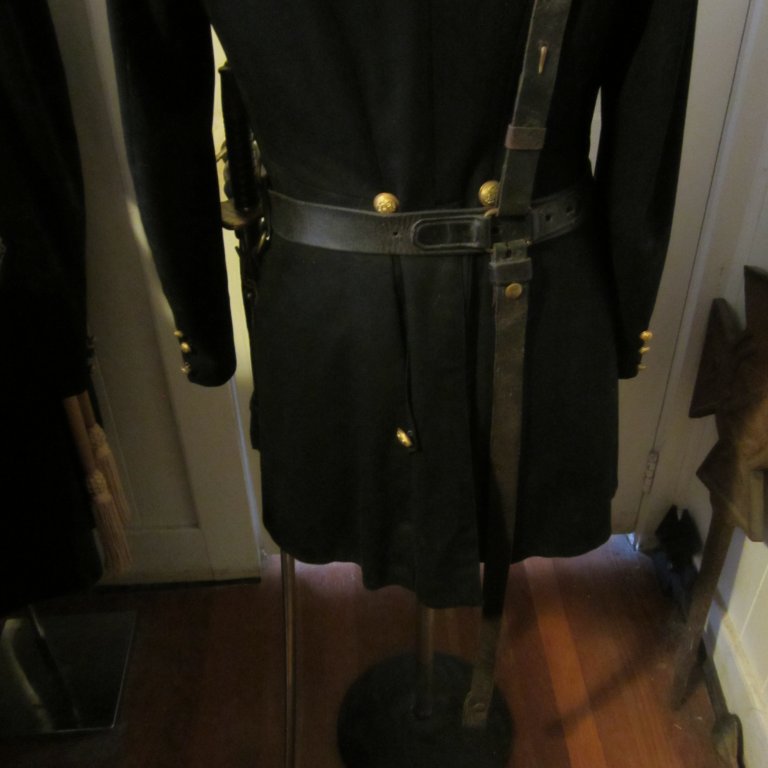
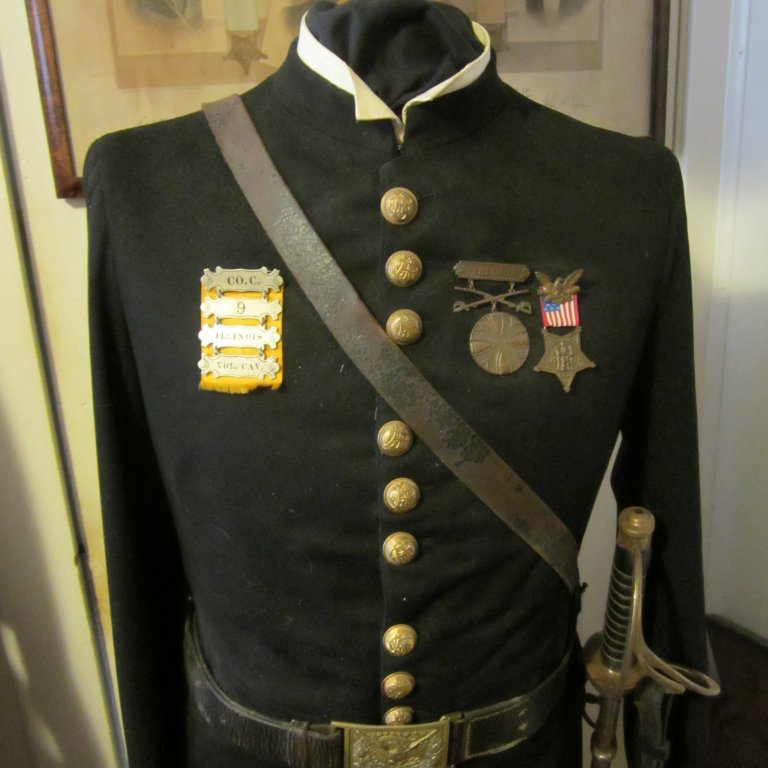
Civil War Magic Lantern Slide collection
Another part of the collection focuses on drawing scenes from battles
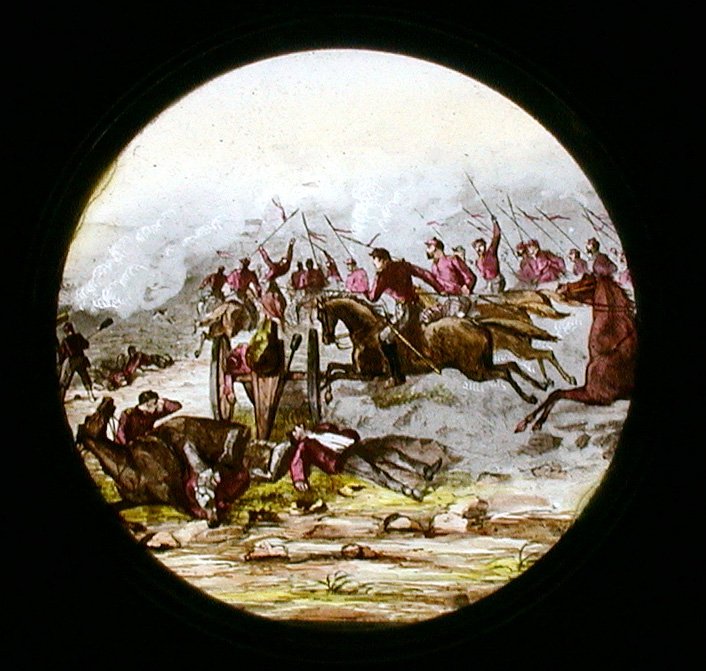
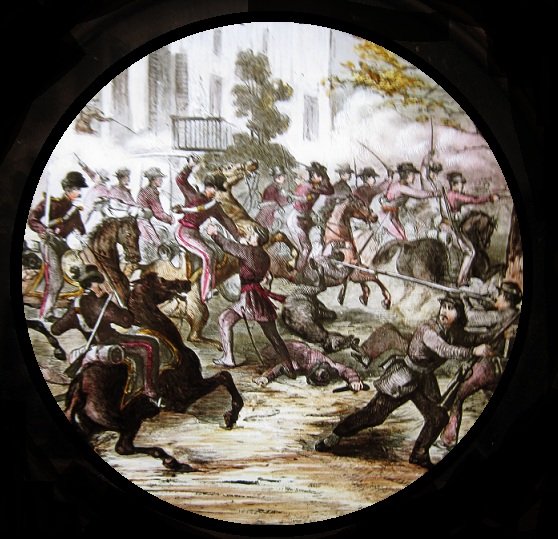
Army of the Potomac- 6th PA Cavalry-Rushs Lancers last attack at Gaines Mill &
Brilliant Charge of U. S. Cavalry through the Village Fairfax Court House
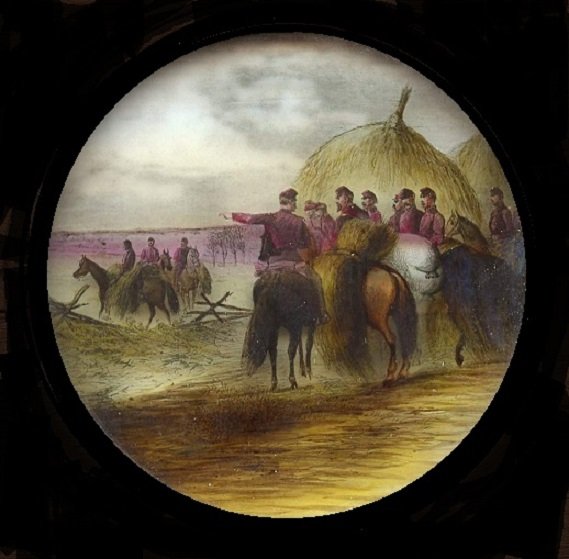
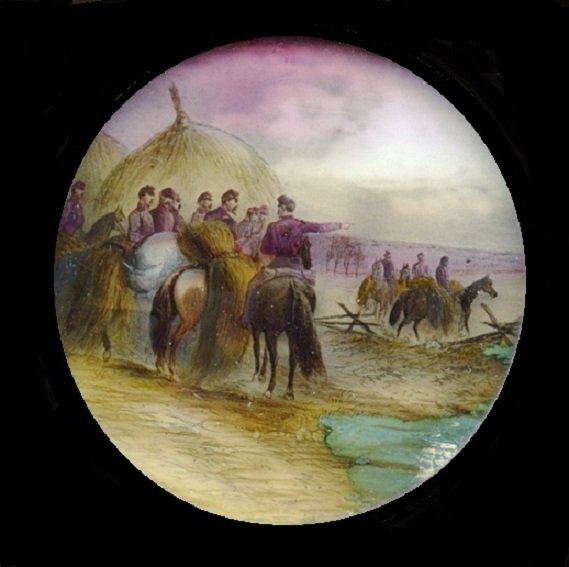
Cavalry Collecting Forage Outside Lines in Virginia-2
& Cavalry Collecting Forage Outside Lines in Virginia-1
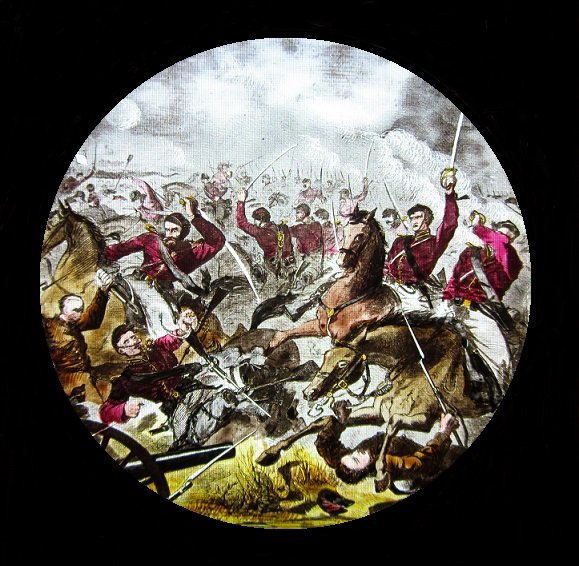
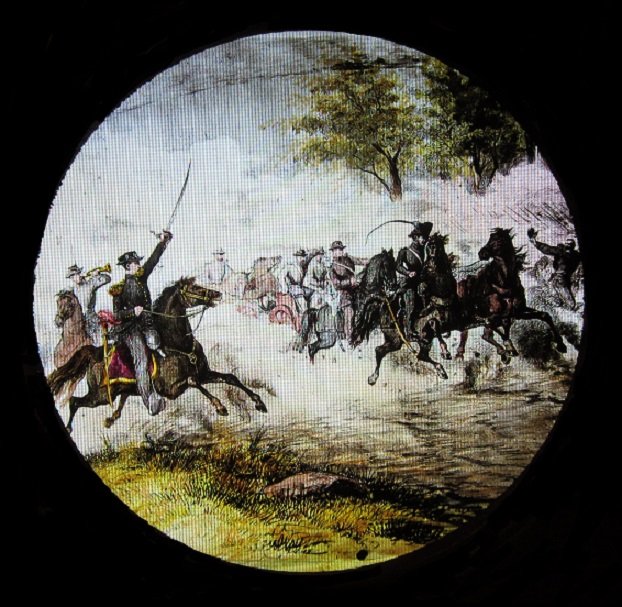
Gap in the Shenandoah Valley. Battle of Cedar Creek. A Charge of the Union Cavalry
& Gen. Sheridan's Last Charge at Winchester
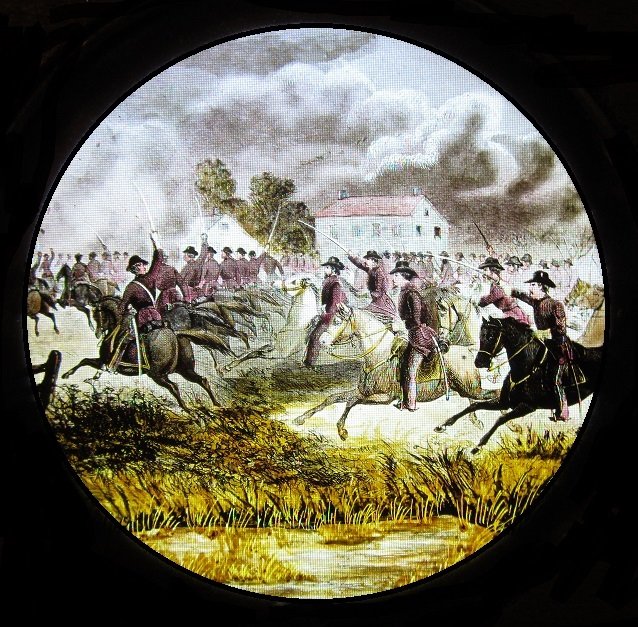
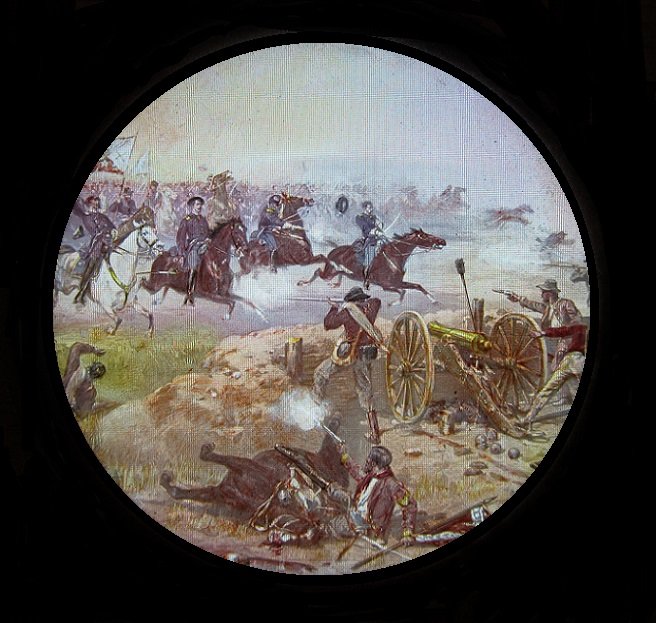
Charge of Gen. Fremont's Body Guard through the town of Springfield, Mo. Oct. 24, 1861
& Sheridan's Final Charge at Winchester-2
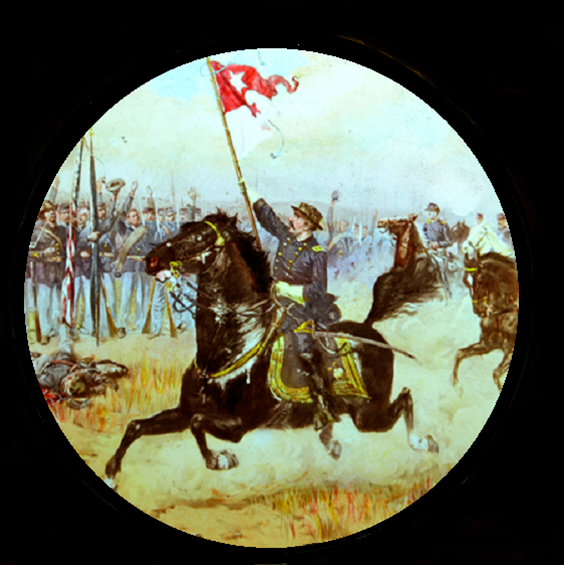
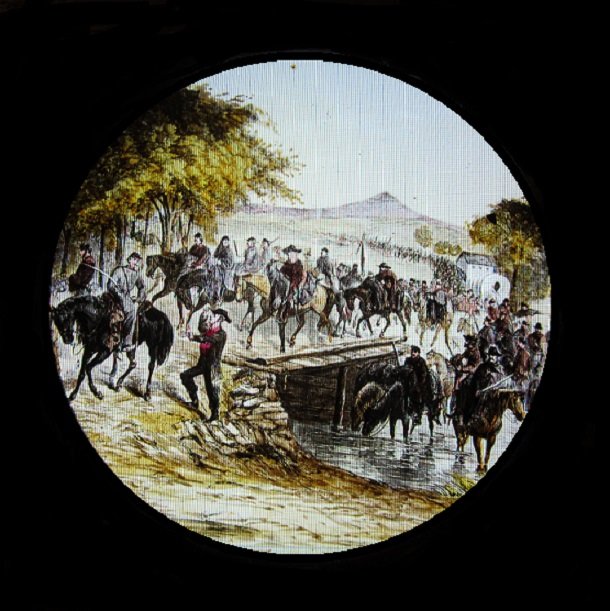
Sheridan's Ride at Cedar Creek
& The Rebel Raid Into Pennsylvania- Stuart's Cavalry on Their Way to the Potomac.- Sketched Near Poolesville, Maryland, by MR. A. R. WAUD
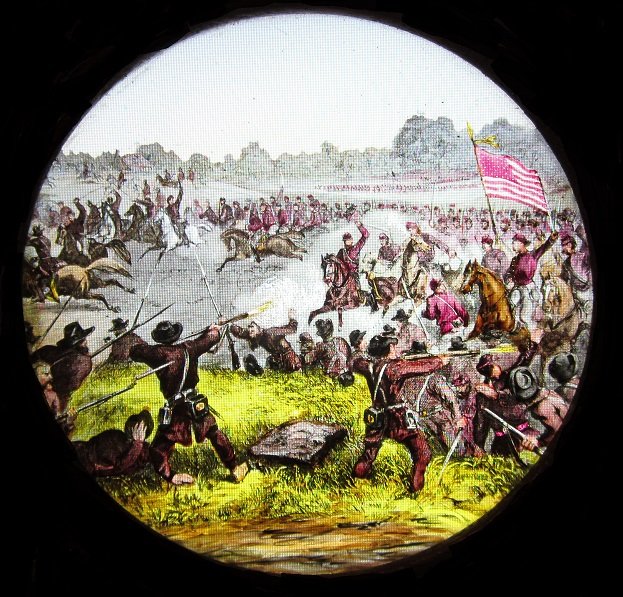
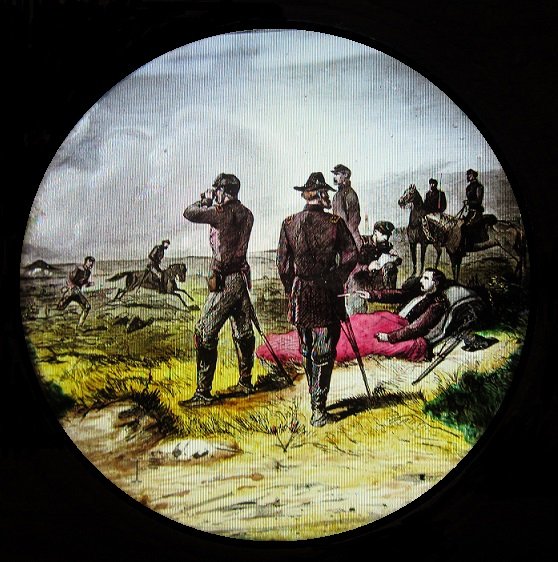
Ukn Title
& Wounded Officer Commands Troops
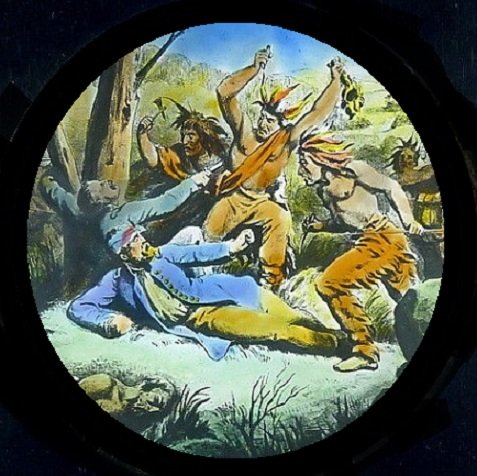
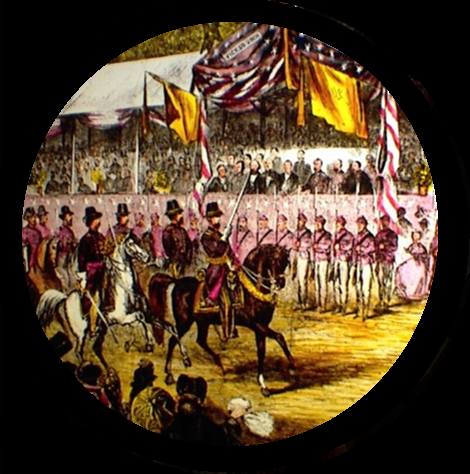
1st and 2nd Cherokee Mounted Rifles Scalping Col. Trimble’s Cavalryman at the Battle of Pea Ridge & Mounted cavalry riding past reviewing stand during the grand review of the Union Army, Washington, D.C.
Sword presentation to Colonel Burgh

In the early days of the regiment it was quite custom of friends, and also members of the different companies to make presentations of dress swords, etc., to the officers of the regiment, and this was well enough seemly as an expression of the esteem in which these officers were held by their friends.
Soon after Company A. arrived in camp it was proposed by some comrades that the members of the company to show their appreciation of what Captain H. B. Burgh had done for them and the confidence and esteem in which he was held, to present him in behalf of the company a dress sword, and for this purpose one hundred dollars had been subscribed by the members of Company A. By some means the Captain learned of this movement, and not thinking the proper thing at this time, he called his company together, and stated to them that he had learned of their intention and that while he appreciated, he must discourage their carrying it out, and requested the return the money back to the donors, at the same time giving as his reasons “That he was yet untried, and they did not know but in the actual contact with the enemy he might run away or even at the present time grow faint hearted, and thus bring disgrace upon the sword they proposed to present.” Stating further, that it was his judgement that a presentation of any kind should not be made until a soldier had by his acts shown himself to be worthy of the same.
The members of Company A, deference to their captain’s wishes, abandoned the presentation at that time, but it seems that they did not forget their desire. The years of the war passed on, Captain Burgh became Major and Lieutenant Colonel of the regiment, and in every position he was placed, showed himself to be a gallant and brave officer, and had much of the time been in command of the regiment. His rare and brilliant soldierly qualities were appreciated by all, but by none more than his old Company A, who all these years had been watching him, and were proud of him as a soldier and their old Captain.
When the regiment went north on veteran furlough in the spring of 1864, they stopped in St. Louis, and Company A determined to carry out their long-cherished plan of presentation to their old Captain. They
purchased an elegant saber, belt etc., and after their arrival at Rock Island, on the morning of March 25th, the company sent for Colonel Burgh to come to the Island City Hotel. Were, in an earnest and affectionate address, they presented him with their elegant testimonial. This time Colonel Burgh was at their mercy, and accepted the sword in a grace-full manor, thanking the boys in an affectionate language for their gift, and the kindly feeling that prompted them in their offering.
Mustered in September 18, 1861 as Captain of Company A, Promoted Major, August 16, 1862, Promoted Lieutenant-Colonel, December 10, 1863.
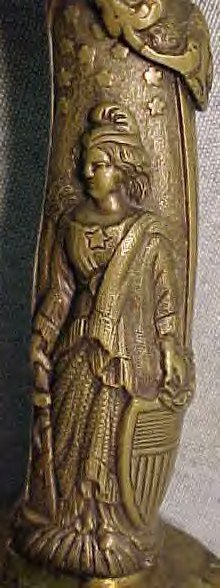
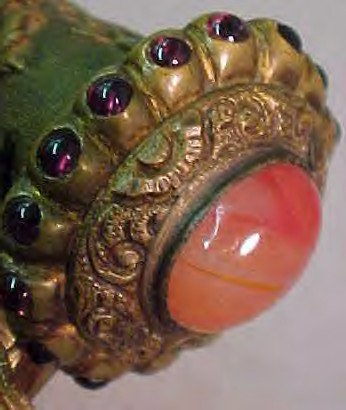
Decorative Saber Handle Jeweled Pommel
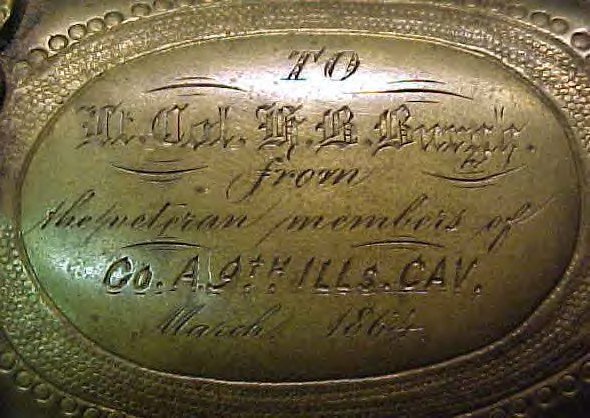
Decorative Scabbard Presentation
Sword Presentation to Major A. R. Mock
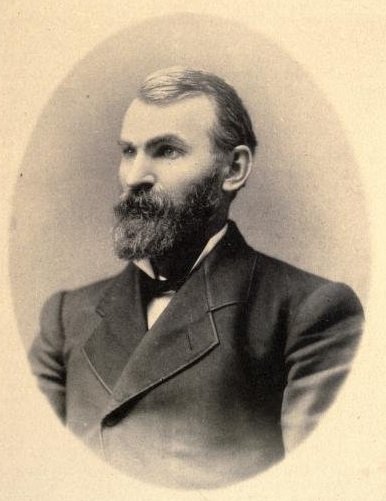
In March, 1865, The Citizens of Genesee, Illinois presented Major A. R. Mock with highly desirable Civil War Horstmann Presentation Grade Cavalry Officer's Saber with inscribed presentation plate on the scabbard. The saber has a Model 1840 pattern, flat-back, 34 1/2-inch, blade with acid-etched panels decorated with stands of flags, military trophies and floral sprays. The obverse ricasso is etched with the dealer's name: "W.H. HORSTMANN/&SONS/PHILADELPHIA" and stamped with a Solingen crowned head manufacturer's mark. The top of the blade is etched "IRON PROOF". The gold-plated brass, three branch guard and counter-guard have Model 1840 regulation officer's pattern cast scroll and acanthus leaf decorations. The non-regulation, flat, pommel is secured by two screws and has cast leaf decorations on the edges. The back strap has a highly detailed cast Medusa head surrounded by scrollwork. The grip is silver with twisted wire wrap. The nickel-plated scabbard has a gold-plated brass drag, suspension bands and rings and throat. The obverse side of the drag and suspension bands are decorated with simple floral and geometric engraving. A silver plate between the upper suspension band and scabbard throat is engraved with the inscription: "Presented to/MAJOR A. R. MOCK/9th ILL. CAVALRY/-By/Citizens of Geneseo Ill./March 1865,”
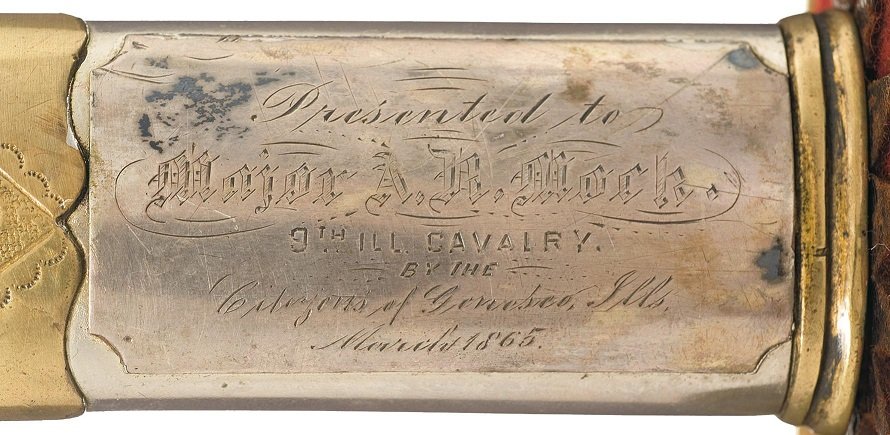
Decorative Scabbard Presentation
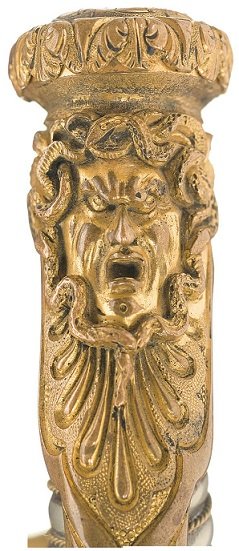
Decorative Saber Handle

Horstman Presentation Grade Cavalry Officer's Saber with Scabbard
General Samuel R. Curtis
This is a special CDV that was taken by Mathew Brady. I have included a copy of the glass plate.
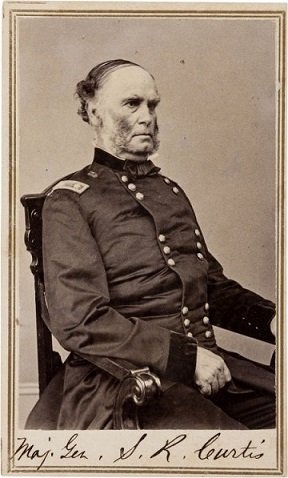
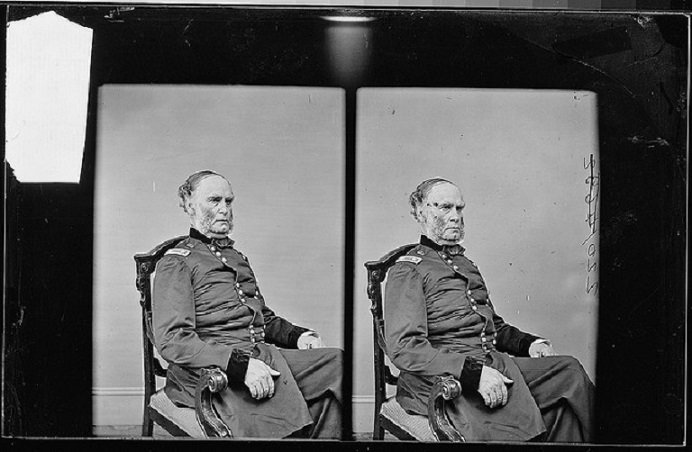
On May 17, 1861, He received command of the Army of the Southwest, which he led to victory over Confederate forces in March of 1862 at the Battle of Pea Ridge in Arkansas. For his achievement, he was promoted to major general. After receiving his promotion, Curtis moved his army further into Arkansas and captured the city of Helena in July.
March on the city Helena AK - photos
The attachments are period images of what the 9th troopers would have seen once they arrived in Helena, AK. and after.
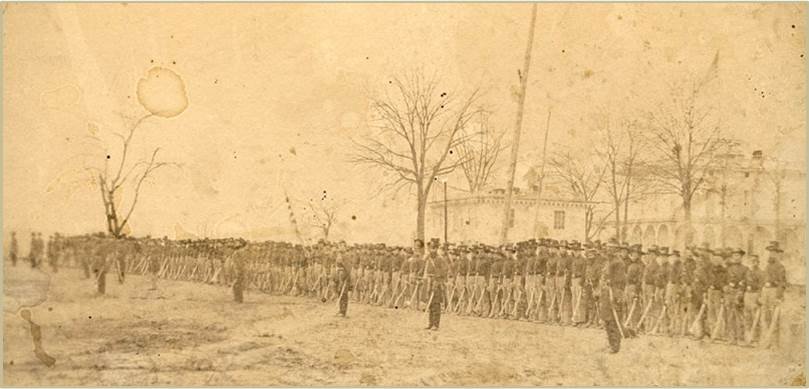
Benton Barracks, St. Louis, MO. February 21, 1862. The regiment received their first arms, a regulation saber, and Colt’s navy, and the Remington revolver for each trooper and about 100 each Hall’s carbines.
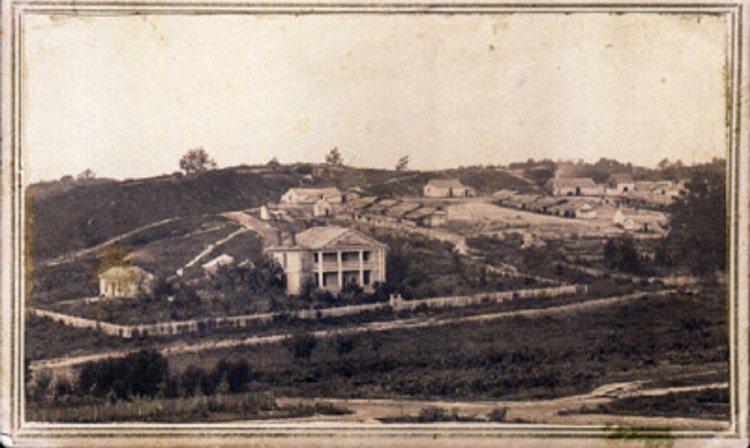
Helena General Hospital. Just on the back of the town on the high table land on the bluffs lying was the beautiful plantation of Confederate General Hindmans, now one of the several Hospitals established to care for the regiments sick and wounded. In early August 1862, Dr. Charles Brackett of the 9th Illinois Cavalry wrote his wife about the hospitals in Helena “. . . by the time I had finished was thoroughly used up. It was the hottest day of the season when even the acclimated citizens kept [to] the house.” The heat in the summer months spawned insects and generated dust. Contaminated water caused diarrhea. When the rains began, the dust turned to mud.
A number of men had been wounded in engagements with Confederates and partisans on the march through Arkansas. All were weak from weeks of fighting heat, thirst, insects and reptiles. Many became ill soon after they arrived in Helena. No matter the cause, their condition was made worse by the lack of proper hospital facilities.
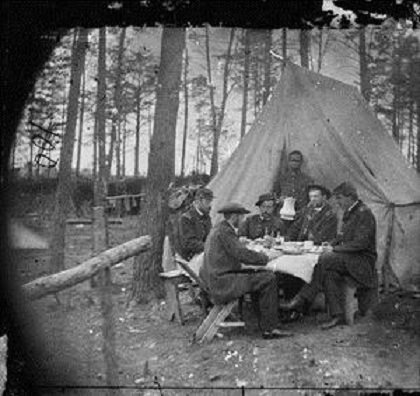
A man named Curtis worked for Dr. Charles Brackett, a surgeon in the 9th Illinois Cavalry, who wrote his wife, “The old negro Curtis is putting things ‘to rights’ in the tent, sweeping in front with a few twigs tied together with string and with this he makes things look neat.”
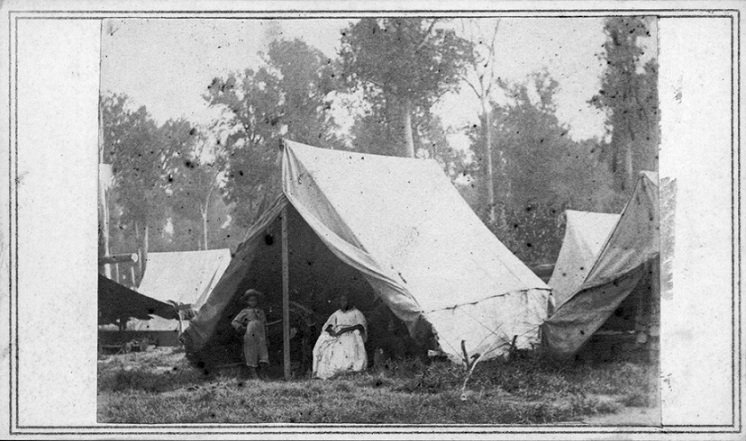
Most freedom seekers wanted more than work, they wanted to better themselves, to learn to read and write—skills that had long been denied to them and that would be necessary to survive and prosper as free people. They wanted their children to attend school. One Union soldier observed that the Freedmen were, “. . . using all means to improve their condition, enquiring diligently after spelling books, etc. . . .”
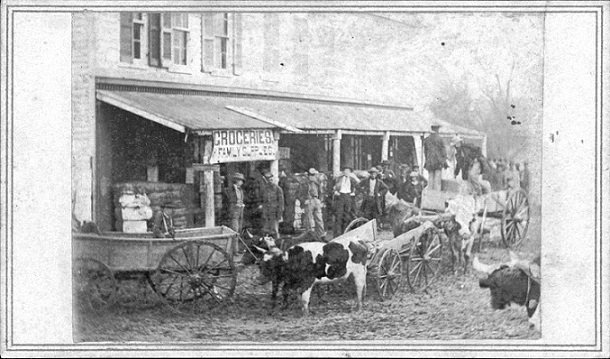
Ox cart and grocery store Helena 1862
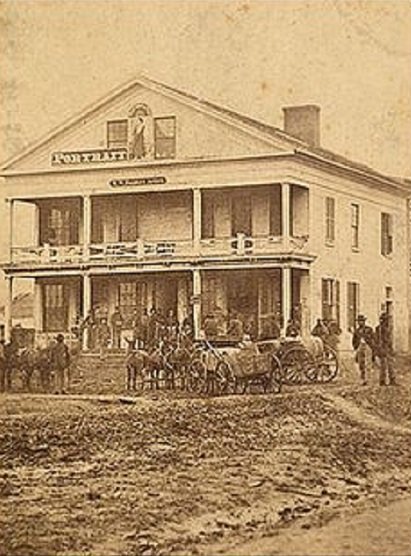
Thomas, Bankes Photo Gallery Helena 1862
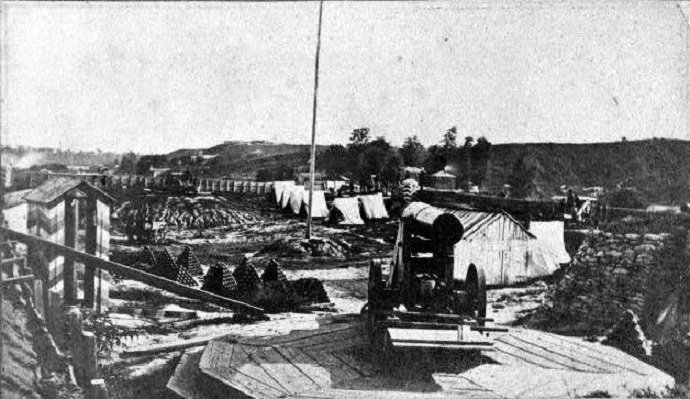
Fort Curtis Helena 1862
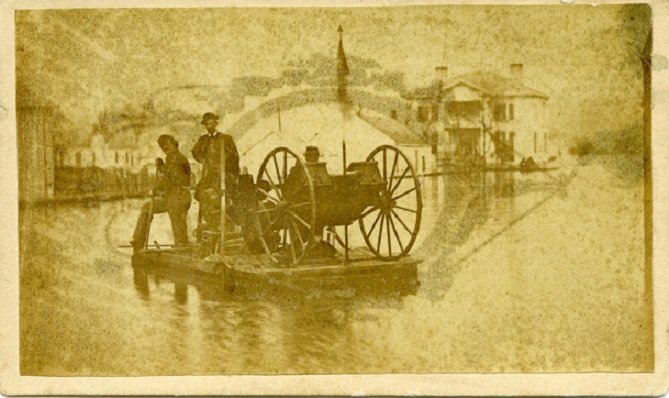
Flat boat picket duty Helena 1864
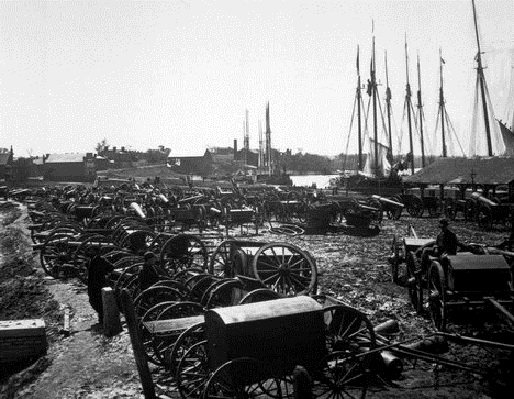
Helena 1864
Last Cavalry Campaign of the Civil War
March – April 1865 – photos
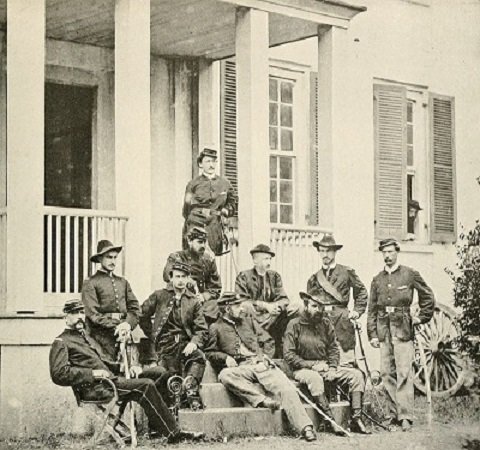
Chosen by General Grant, General James H. Wilson would lead one of the largest cavalry campaigns of the Civil War. Wilson would assemble over 13,500 troopers that would sweep through the South’s remaining primary manufacturing facilities and would be opposed unsuccessfully by a much smaller force under the command of Confederate General Nathan Bedford Forrest of about 2,500 men.
While planning for this campaign, General Wilson assessed all of his assets and determined that each cavalryman would be armed with the formidable 7-shot Spencer repeating rifle and would be riding the best mounts.
On March 18, 1865, General Order Number 24 was read:
“The Major General commanding takes great pleasure in announcing to the cavalry corps, that the officers and men of the Second Iowa, Sixth and Ninth Illinois, have with a spirit of generosity, excelled only by their gallantry, voluntary turned over to the First Division a large number of Spencer carbines, taking in exchange an equal number of inferior arms of various patterns; this too, they had been compelled to turn over their horses to the Seventh Division and other detachments. Such an exhibition of zeal for the interest of the public service, of self-denial, and of friendly regard for their brothers in arms, is unparalleled, and entitles the brave men who have so cheerfully made it, to the thanks and admiration of every soldier in the corps. Troops who have distinguished themselves by so many acts of gallantry has adorned the history of the Fifth Division could have made no greater sacrifice. They are entitled to the best remount, equipment, and arms the country can furnish and every effort will be made to secure them in time to enable them to participate in the events of the ensuing campaign. “ This order will be read to every regiment in the Fifth Division. By the Command of Brevet Major-General Wilson, [Signed]
E. B. Beaumont
Major and Assistant Adj. General
The 27 year Wilson, known as the old boy general conceived a plan to send his cavalry through Alabama and Georgia on a raid that would help to drive the final nail into the South’s cause. He believed that this raid would prove once and for all the validity and strength of the underused mounted arm of the union forces. “The horse is primary factor in the cavalry. Through him, the cavalry can move faster, gets there quicker, covers longer distance in less time, finds the weaker places in the enemy lines, strikes the flank or rear or breaks his means of communication and supply.”
And so began Wilson’s month long campaign to destroy war resources and prevent the South from staging their last stance.
The initial target of the campaign was Selma, Alabama, and Wilson struck so hard, so fast and with so many men that not even General Nathan Bedford Forrest was able to hold him back. Forrest skirmished and fought with Wilson as he pushed down through the Alabama iron country to Selma, but was unable to assemble enough men to halt the Union advance.
As he moved forward, Wilson destroyed many of the iron furnaces of Alabama. These industrial complexes had supplied the Confederacy with thousands of tons of iron for use in manufacturing cannon, artillery projectiles, cookware and more.
Forrest turned on Wilson at what is now Stanton, 24 miles north of Selma, to fight his last battle on ground of his own choosing. The Battle of Ebenezer Church ended in a Union victory, but not before Forrest had killed 33 men who fell before the general's pistols and saber during the engagement.
Following the Battle of Selma and the destruction of the industrial complex in that city, Wilson turned east and captured the capital city of Montgomery virtually without firing a shot.
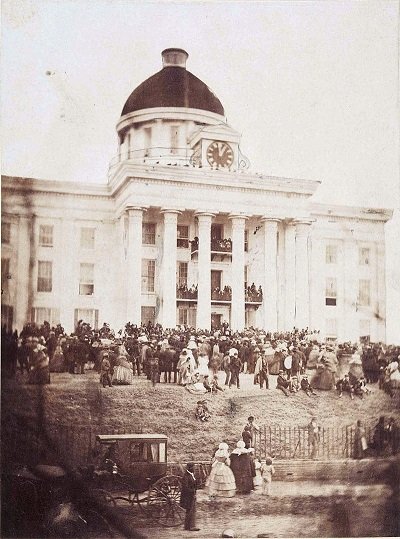
From Montgomery, Wilson continued east for Georgia. One column of his force captured West Point, Georgia, while the other fought the last major battle of the war at Columbus, Georgia.
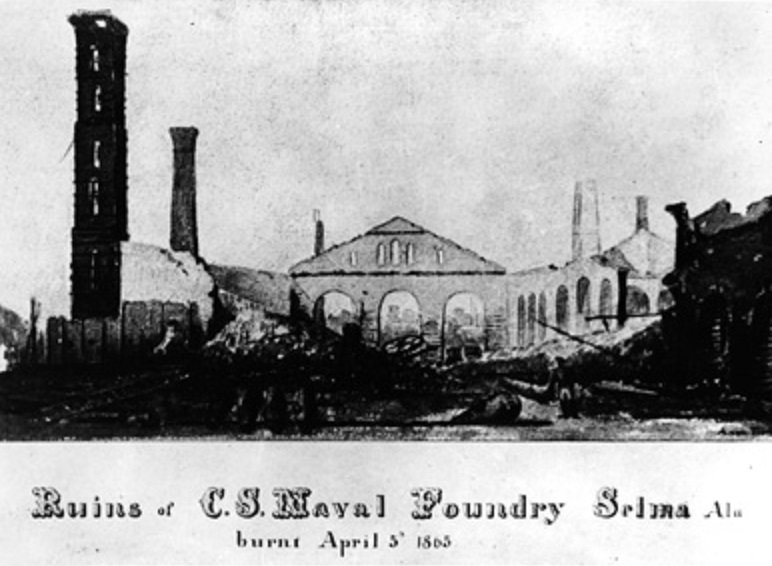
Selma’s arsenal contained, among other things, 15 siege guns, 60,000 rounds of artillery ammunition, and 1 million rounds of small arms ammunition. Wilson destroyed the city's eleven ironworks and foundries, which had produced war goods for the Confederacy, as well as locomotives and rail cars, thus depriving the Confederacy of one of its last reliable industrial centers.
Moreover, Forrest's cavalry would harass Wilson's forces no more. In a meeting between Forrest and Wilson, Forrest reputedly said to Wilson, "Well, General, you have beaten me badly, and for the first time I am compelled to make such an acknowledgement."
Wilson organized cavalry patrols to capture fleeing Confederate leaders and to obtain the surrender of any bands of Confederates still roaming Alabama and Georgia. On May 10, 1865, a group of Wilson's men captured the former president of the Confederacy, Jefferson Davis, at Irwinville in South Georgia. Groups of Wilson's men also captured or arrested former Confederate vice president Alexander Stephens, Georgia governor Joseph E. Brown, Georgia senator Benjamin Hill, and the infamous Henry Wirz, commandant of Andersonville prison. Wilson's forces were fully disbanded by early July.
Private Benjamin Frank Price
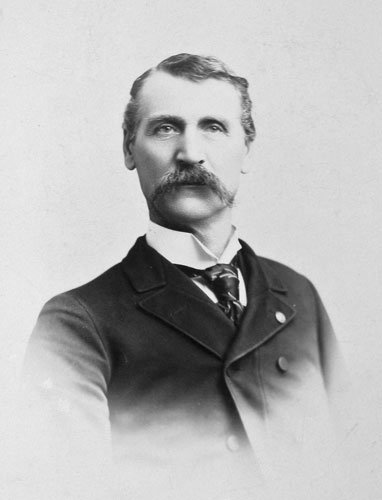
Benjamin was a farmer until he joined Company M. of the Ninth Illinois Cavalry, along with his older brother George A. Price. He was mustered into the regiment on August 28, 1862, and his residence was Onarga, Iroquois County, Illinois. He served for three years and participated in several skirmishes and one battle. While serving in Sturgis's division in the battle at Guntown, Mississippi on June 10, 1864, he was struck by a musket ball in the left arm. He subsequently rode to Memphis, Tennessee, a distance of 125 miles, where he had his arm amputated on June 13, 1864. He had nothing to eat during the entire journey.
Private Dwight L. Talcott, Company I
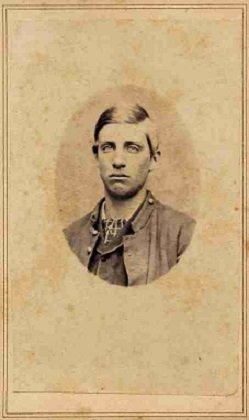
At the Battle of Campbellsville, Tenn., November 24, 1864, was taken prisoner and was sent to Andersonville. When Talcott entered the prison he weighed 147 pounds. When he was released he weighed but 75 pounds and his father, who called for him, was forced to carry him in his arms like a baby. The doctors at the prison were of the opinion that Talcott would never live until he reached his Rockton home. He was mustered out of service June 3, 1865 as a prisoner of war.
Roll of Honor

Private Adrian, Frederick., Company E. Died at Andersonville Prison, September 9, 1864; grave 8,2944.
Private Agarty, Jeremiah, Company K. Died at Eastport, Miss, May 16, 1865.
Private Ahr, William, Company B. Died at Gainesville, AL, September 21, 1865.
Private Albert, Mather, Company M. Died at Jacksonport, Ark, July 27, 1862.
Private Alberts, Reinhart, Company F. Died at Helena, Ark, September 25, 1862.
Corporal Albright, Delos, Company I. Died on hospital boat near St. Louis, October 1, 1862.
Private Alexander, Henry, Company M. Died at Onarga, Ill., March 8, 1862.
Private Atkins, Clinton, Company G. Died June 13, 1862.
Private Atkinson, Eli, Company I. Died at Helena, Ark, August 17, 1862.
Corporal Babcock, Merlin, Company G. Died at Memphis, Tenn., October 5, 1864.
Private Baker, Jacob, Company F. Died at Helena, Ark, September 25, 1862.
Private Bartlett, David C., Company B. Died at Helena, Ark, October 29, 1862.
Private Bear, Martin, Company E. Missing in action at Savanna, Tenn., October 17, 1864.
Private Barton, Charles, Company L. Died at Pocahontas, Mo., May 11, 1862.
Private Baxter, Alpheus, Company E. Died at Dennis, Mass., June 12, 1864.
Private Behers, John, Company F. Died at Selma, Ala, October 25, 1865.
Private Bennett, Isaac, Company K. Died at Patterson, Mo., May 11, 1862.
Private Bellows, Albert, Company H. Died at Tupelo, Miss., July 15, 1864.
Private Berry, James S., Company F. Died at St. Louis, Mo., November 3, 1862.
Private Berry, Jordan, Company E. Died at Memphis, Tenn., March 14, 1864.
Private Boden, William H., Company F. Died at Andersonville Prison, August 13, 1864; grave 5475.
Surgeon Brackett, Charles, Died at Helena, Ark, February 20, 1863.
Private Bradwell, Oliver, Company B. Died at Camp Douglass, Ill., January 15, 1862.
Private Branch, Edwin H., Company I. Died at Pontotoc, Miss, July 12, 1864.
Private Bringham, William, Company A. Died September 5, 1864 at Memphis, Tenn. From wounds received August 13th.
Private Brooks, James J., Company G. Died at Memphis, Tenn., April 25, 1864.
Private Brown, Caleb N., Company I. Died at Louisville, Ky., March 19, 1865.
Private Burmuster, Charles, Company B. Died at St. Louis, Mo., November 9, 1862.
Private Buncher, Lewis, Company A. Died June 2, 1862.
Private Burns, Barney, Company M. Died at Memphis Tenn., February 12, 1864.
Private Butcher, Isaac, Company I. Died at Cairo, Ill, March 25, 1865.
Bugler Buss, John, Company K. Died at Nashville, Tenn, January 1, 1865.
Private Carl, Sampson, Company G. Died at Helena, Ark., 1862.
Private Cameron, Edward, Company K. Died at Memphis, Tenn., March 24, 1864.
Private Cameron, Phillip, Company L. Died on hospital boat, October, 5, 1862.
Corporal Cerey, Patrick, Company F. Died at Keokuk, Iowa, November 17, 1863.
Private Chenneworth, Riley, Company M. Died at Reeve’s Station, Mo., March 23, 1862.
Private Cherry, William R., Company H. Died December 31, 1861.
Private Cole, Charles H., Company E. Died at Reeve’s station, Mo., April 14, 1862.
First Sergeant Cole, Marcellus, Company F. Died at Campbellville, Tenn., November 24, 1864.
Private Connerly, Peter, Company K. Died at Chicago, Ill., December 7, 1861.
Private Conasky, David, Company D. Died at Helena, Ark, October 1, 1862.
Private Conners, Edward, Company A. Died at St. Louis, Mo., April 1, 1864.
Private Cooley, John F., Company I. Died at Keokuk, Iowa, October 29, 1862.
Private Cooper, Enoch, Company A. Died at Keokuk, Iowa, October16, 1862.
Private Cooper, George, Company M. Killed at Oxford, Miss., August, 13, 1864.
Private Cornelius, James, Company H. Died at Andersonville Prison, August 24, 1864; grave 6738.
Private Crommett, David, Company C. Died at Anderson Prison, October 1, 1864.
Private Cunningham, Cornelius, Company G. Died August 25, 1862.
Private Curtis, George, Company I. Died at Louisville, Ky., January 10, 1865.
Private Dack, Charles H., Company H. Died at Andersonville Prison, September 18, 1864; grave 8187.
Private Daniels, William, Company M. Killed at St. Louis, Mo., March 1, 1864.
Private Danilson, Charles, Company E. Died at Memphis, Tenn., March 18, 1864.
Private Dawson, Robert A., Company L. Killed at Tupelo, Miss., July 15, 1864.
Bugler Denney, James H., Company L. Died at Hopewell, Mo., February 28, 1862, of wounds received on railroad.
Private Dillon, Patrick, Company E. Died at Germantown, Tenn., March, 10, 1864.
Sergeant Dillon, Newton, Company M. Died at Columbia, Tenn., November 24, 1864, of wounds.
Private Downing, Simon B., Company C. Died August, 30, 1864 of wounds.
Private Dunklin, Peter, Company I. Died about December 1864.
Private Elliot, Simon, Company B. Died at New Albany, Ind., January 6, 1865.
Sergeant Major Ellis, John C., Died August 18, 1865.
Private Englehaupt, David R. P., Company B. Died at Eastport, Miss., June 12, 1865.
Sergeant Ewing, David A., Company E. Died at Germantown, Tenn., May 12, 1863.
Private Fairchild, Squire, Company G. Died at Helena, Ark., 1862.
Private Fannen, Henry, Company M. Died at Gainesville, Ala., October 24, 1865.
Private Faunce, Thomas, Company B. Died at Cahaba Prison, Ala., June 13, 1865.
Private Fiddler, Conrad, Company G. Died at Eastport, Miss., May 22, 1865, of wounds.
Private Fogerty, Cornellus, Company I. Died at Keokuk, Iowa, November 17, 1862.
Sergeant Follett, John, Company M. Died at Reeve’s Station, Mo., March 30, 1862.
Private Fones, James, Company B. Killed at Savannah, Tenn., October 14, 1864.
Corporal Foster, Erastus S., Company K. Died at Andersonville Prison, January 17, 1865; grave 12473.
Private Fries, Daniel, Company B. Died at Iuka, Miss., July 15, 1865.
Private Frisby, Alonzo, Company M. Died at Andersonville Prison, February 8, 1864.
Private Goodall, John, Company D. Died at Helena, Ark., July 19, 1862.
Private Gray, William, Company I. Died at Eastport, Miss., February 10, 1865.
Corporal Griswold, Francis, Company K. Died at Memphis, Tenn., July 21, 1862.
Private Haggart, Ansel, Company G. Died at St. Louis, Mo., October 5, 1862.
Private Hanrahan, Patrick, Company L. Died at Montgomery, Ala., August 27, 1865.
Private Hamilton, Jacob, Company F. Died at Memphis, Tenn., June 14, 1864.
Private Hamilton, John, Company F. Died at Helena, Ark., November 26, 1862.
Private Hayes, Michael, Company B. Died at Nashville, Tenn., December 6, 1864.
Private Hendee, George W., Company G. Died of wounds about April 23, 1863.
First Sergeant Henderson, Robert H., Company H. Died at Campbellville, Tenn., November 24, 1864.
Private Hessey, Horatio, Company I. Killed at Campbellville, Tenn., November 24, 1864.
Private Hicks, Hiram, Company F. Died at St. Louis, Mo., October 20, 1862.
Private Hill, J. H., Company F. Died at Andersonville Prison, August 11, 1864; grave 4489.
Private, Hoover, Julius, Company M. Died at Iuka, Miss., July 14, 1865.
Private Horan, Kerran, Company B. Died at Demopolis, Ala., December 16, 1865.
Private Hover, Francis, Company B. Died at Camp Douglass, Ill., December 16, 1861.
Private Houghtaling, John A., Company F. Died at Montgomery, Ala., August 14, 1865.
Private House, Samuel, Company I. Died at Eastport, Miss., May 29, 1865.
Private Howard, Alonzo, Company A. Died at Nashville, Tenn., December 18, 1864.
Private Howard, Patrick, Company B. Died at Cahaba Prison, Ala., March 28, 1864.
Private, Ingleking, Conrad, Company D. Died April 19, 1862.
Private, Ireland, Henry, Company B. Died at Salem, Miss., October 8, 1863.
Private, Jackson, Mathew, Company H. Died at Helena, Ark., September 23, 1862.
Private, Jacobs, John G., Company B. Died at Helena, Ark., August 4, 1862.
Private, Jacobs, Oliver, Company B. Died at Helena, Ark., August 23, 1862.
King, James, Company B. Died at Memphis, Tenn.
Private, Jenkins, E. J., Company B. Died at Cotton Plant, Ark., May 17, 1862.
Corporal, Jergens, Christian, Company F. Killed in Mississippi, February 25, 1864.
Private, Johnson, Lucian, Company C. Died at Helena, Ark., August 29, 1862.
Private, Jones, Homer, Company G. Died at Reeve’s Station, Mo., April, 22, 1862.
Private, Katze, Henry, Company D. Died at Memphis, Tenn., October 20, 1864.
Private, Killian, Francis, Company F. Died at Demopolis, Ala., October 27, 1865.
Private, Knaggs, William, Company H. Died at Pilot Knob, Mo., April 8, 1862.
Private, Koethe, William, Company L. Died at Mount City, Mo., May 17, 1865.
Private, Kreizaz, Jacob, Company B. Died at Gainesville, Ala., August 25, 1865.
Sergeant, Lane, Alonzo P., Company L. Killed at Franklin, Tenn., November 30, 1864.
Sergeant, Laramore, William, Company E. Died at Andersonville Prison, August 16, 1864; grave 5906.
Private, Latson, William F., Company I. Died at Camp Douglas, Ill., February 24, 1862.
Private, Lennie, William, Company C. Died at St. Louis, Mo., December 17, 1862.
Private, Lewis, Henry, Company H. Died at Charleston, S. C. in prison.
Private, Louks, David, Company G. Died at Helena, Ark., September 29, 1862.
Commissary Sergeant, Ludden, Chancey F., Company I. died December 22, 1864 of wounds.
Private, Mackey, Benjamin, Company D. Died February 16, 1863.
Corporal, Maher, Dennis, Company D. Drown at Cairo, Ill., March 22, 1864.
Private, Maloy, Stephen, Company I. Died at Campbellville, Tenn., November 24, 1864.
Private, Mandville, Henry, Company H. Died at Helena, Ark., August 1, 1862.
First Sergeant, Maples, Alex, Company C. Died at Memphis, Tenn., September 3, 1864, of wounds.
Private, Marshall, Michael, Company F. Died near Clarendon, Ark., July 12, 1862.
Corporal Martin, Jefferson, Company K. Died at Andersonville Prison, July 27, 1864, grave 4.071.
Private, Marver, Alexander, Company I. Died at Nashville, Tenn., January 29, 1865.
Sergeant Matsel, Thomas, Company C. Killed at Campbellville, Tenn., November 24, 1864.
Private, Maxwell, William R., Company F. Died at Paducah, Ky., March 9, 1865.
Private, McBride, James, Company D. Died at Helena, Ark., October 13, 1862.
Private, McDade, Alfred, Company I. Died about July 1, 1864, in a rebel prison at Okolona, Miss.
First Lieutenant, McMahon, John H., Company D. Killed at Tupelo, Miss., July 16, 1864.
Private, Mendel, Lucien, Company M. Died at St. Louis, Mo., October 13, 1864.
Private, Metsel, John, Company B. Died at Memphis, Tenn., October 22, 1864.
Corporal, Meyer, Herman H., Company F. Died at Helena, Ark., October 1, 1862.
Private, Middaugh, Orlando, Company C. Died at Keokuk, Iowa, October 13, 1862.
Private, Miner, George, Company I. Died at Jeffersonville, Ind., April 5, 1865.
Private, Monroe, David B., Company I. Died at St. Louis, Mo., April 25, 1865.
Private, Montague, Cyrus, Company A. Died at Iuka, Miss., June 15, 1865.
Private, Mooney, Robert L, Company L. Died at Montevailo, Ala., September 19, 1865.
Private, Mordoff, Frank M., Company I. Died at Cairo, Ill., October 20, 1862.
Private, Morey, Moses D, Company L. Died at Helena, Ark., April 23, 1863.
Private, Morrow Alexander, Company B. Died at St. Louis, Mo., 1862.
Private, Morrow, Walter, Company B. Died at Keokuk, Iowa, October 23, 1862.
Private, Morris, Newel, Company I. Died at St. Louis, Mo., October 26, 1865.
Sergeant, Morris, Thomas, Company B. Died at Camp Douglas, Ill., January 2, 1862.
Lieutenant, Morrison, Thomas E., Company E. Died at Helena, Ark., August 22, 1862.
Private, Murry, Patrick, Company B. Died at Iuka, Miss., June 7, 1865.
Private, Myers, Peter, Company D. Died at Eastport, Miss., June 12, 1865.
Private, Myre, Joseph E., Company E. Died at Helena, Ark., August 16, 1862.
Captain, Neimeyer, Fred C., Company F. Died at Tuscaloosa, Ala., September 21, 1865.
Private, Netzel, John T., Company D. Died at Memphis, Tenn., October 26, 1864.
Private, Newberry, Leonidus, Company E. Died at Eastport, Miss., April 19, 1865.
Private, Olmstead, Alonzo, Company B. Died at Iuka, Mo., June 7, 1865.
Private, Olmstead, William B., Company K. Died at St. Louis, Mo., November 3, 1862.
Private, O’Mira, Daniel J., Company E. Died at Andersonville Prison, October 3, 1864; grave 10279.
Private, Osborn, Daniel J. W., Company H. Died at Andersonville Prison, October 7, 1864; grave 10,469.
Private, Ott, Daniel, Company F. Died at Campbellville, Tenn., November 24, 1864.
Private, Ott, David, Company F. Died at St. Louis, Mo., November 26, 1862.
Sergeant, Paddock, Charles B., Company K. Captured at Guntown, Miss. June 10, 1864, died in the hands of the enemy.
Lieutenant-Colonel Paddock, Sol. A., Died February 18, 1862.
Private, Perry, James, Company G. Died at Andersonville Prison, September 20, 1864; grave 9,313.
Sergeant, Peter, Robert, Company I. Died at Campbellville, Tenn., November 24, 1865.
Private, Pierson, Swanson, Company H. Died at Cahaba Prison, Ala., April 15, 1865.
Private, Pringle, Philander, Company G. Died at Village Creek, Ark., May 21, 1862.
Private, Proud, Aster, Company G. Died at Helena, Ark., November 2, 1862.
Quartermaster, Price, Samuel H., Died April 8, 1863. Sergeant, Pugh, William, Company A. Died at Nashville, Tenn., November 13, 1864.
Private, Putnam, David, Company M. Died at Memphis, Tenn., April 10, 1864.
Private, Quinn, Thomas, Company E. Died at Logansport, Ind., October 11, 1864.
Private, Race, James, Company E. Died March 28, 1865.
Private, Raymond, Andrew, Company I. Died at Belvidere, Ill., April 24, 1864.
Private, Renshaw, Felix, Company B. Died at Helena, Ark., September 15, 1862.
Private, Riley, Anthony E., Company L. Died at Guntown Miss., June 10, 1862.
Private, Rieneke, Clemens, Company F. Died at Patterson, Mo., May 17, 1862.
Private, Robb, Andrew, Company A. Died at Paducah, Ky., May 1, 1865.
Private, Roth, Joseph, Company F. Died at Hurricane Creek, Miss., August 13, 1863.
Private, Robinson, Frederick, Company I. Died at Helena, Ark., September 24, 1862.
Private, Robertson, John, Company L. Killed near Fish Creek, Miss., July 11, 1864.
Sergeant, Robertson, Nelson, Company L. Drown in Black River, Ark., June 22, 1862.
Private, Rogers, Isaac, Company L. Died at Augusta, Ark., August 6, 1862.
Private, Sand, Phillip, Company F. Died at Eastport, Miss., June 20, 1865.
Private, Schlothauer, Christopher, Company F. Died at Germantown, Tenn., July 6, 1863.
Private, Scoville, Franklin W., Company C. Died at Pilot Knob, Mo., March 13, 1862.
Private, Schafer, Frank, Company I. Died at Memphis, Tenn., August 1, 1864.
Private, Sellers, Andrew J., Company M. Drown at Black River, Ark., June 1, 1862.
Private, Sellers, Willey M., Company K. Died at Eastport, Miss., April 5, 1865.
Private, Selvey, William, Company M. Died at Little Black, Mo., May 2, 1862.
Private, Shaeffer, Christoff, Company D. Killed August 21, 1864.
Private, Skeels, William N., Company M. Died at Nashville, Tenn., December 24, 1864.
Private, Sleek, Philip, Company E. Died at Andersonville Prison, October 11, 1864; grave 10,663.
Private, Slick, Phillip, Died at Andersonville Prison, October 11, 1864; grave 10663.
Sergeant, Smith, Asa, Company H. Killed at Tupelo, Miss., July 15, 1864.
Private, Smith, Byron, Company G. Died at Pontotoc, Miss., July 18, 1864, from wounds.
Corporal, Smith, Geo., Company F. Died at Cairo, Ill., October 1, 1862.
Saddler, Smith, Henry, Company F. Died at Eastport, Miss., February 28, 1865.
Private, Smith, John W., Company D. Died at Helena, Ark., October 11, 1862.
Private, Smith, Noah, Company A. Died at White’s Station Tenn., September 30, 1864.
Private, Stebbins, William, Company I. Died at Memphis, Tenn.
Private, Stephens, Franklin, Company H. Died at Gallatin, Tenn., February 9, 1864.
Private, Stephens, George, Company K. Died at Mount City, Mo., May 7, 1865.
Private, Storm, Sylvester, Company I. Died at Reeve’s Station, Mo., April 12, 1862.
Private, Strang, Whitney, Company K. Died at Patterson, Mo., April 9, 1862.
Private, Strong, Thomas, Company I. Died at Gravelly Springs, Miss., February 5, 1865.
Saddler, Strums, Lewis G., Company C. Died at Reeve’s Station, Mo., March 25, 1862.
Private, Sutee, Benjamin, Company I. Died at Andersonville Prison, November 4, 1864; grave 11808.
Private, Sutton, Martin, Company M. Died at Andersonville Prison, August 13, 1864; grave 5515.
Private, Tapley, John, Company F. Died at Tuscaloosa, Ala., September 7, 1865.
Private, Tayler, Harmon, Company E. Died at Andersonville Prison, September 29, 1864; grave 10036.
Sergeant, Teas, William J., Company F. Died at Campbellville, Tenn., November 24, 1864.
Private, Teeters, Benjamin, Died at Helena, Ark., December 20, 1862.
Sergeant, Thomas, Chancey, Company F. Died at Helena, Ark., September 26, 1862.
Private, Thompson, William B., Company B. Died at Nashville, Tenn., December 26, 1864.
Sergeant, Tolbert, George W., Company M. Died at Reeve’s Station, Mo., March 30, 1862.
Corporal, Tompkins, Andrew, Company G. Died at Eastport, Miss., May 10, 1865.
Private, Turner, Orson A., Company I. Died at Nashville, Tenn., December 25, 1864.
Sergeant, Thayer, Lester, Company M. Died at Memphis, Tenn., October 1, 1862.
Private, Van Wess, George J., Company M. Died at Keokuk, Iowa, October 8, 1862.
Private, Van Valkenburg, W., Company G. Died at Jacksonport, Ark., December 24, 1864.
Private, Vetter, Robert, Company C. Died March 12, 1865.
Private, Vite, Barnett, Company M. Died Helena, Ark., September 12, 1862.
Corporal, Waldo, Judson M., Company K. Died at Andersonville Prison, October 12, 1864; grave 10756.
Private, Walsh, John, Company I. Died at Helena, Ark., September 21, 1862.
Private, Watkins, William N., Company L. Died at Cairo, Ill., October 21, 1862.
Private, Weakman, Fred, Company B. Died at Jefferson Barracks, Mo., June 8, 1865.
Private, Wehargen, Joseph, Company B. Died October 21, 186 of wounds received at Salem, October 8.
Lieutenant, Westbrook, Abner, Company I. Died at Memphis, Tenn., October 22, 1864.
Private, West, Joseph C., Company K. Died at St. Louis, Mo., November 15, 1862.
Private, Wheeler, W. F., Company B. Died at Montgomery, Ala., August 21, 1865.
Private, Whipp, Charles, Company E. Died at Andersonville Prison, September 4, 1864; grave 8713.
Corporal, Wiesner, John W., Company D. Died at Germantown, Tenn., June 4, 1863.
Private, Wilbanks, Randolph, Company B. Died at Helena, Ark., September 19, 1862.
Private, Williams, Alfred, Company E. Died at Germantown, Tenn., September 4, 1863.
Private, Wilson, Asa W., Company M. Died near Jacksonport, Ark., June 26, 1862.
Private, Wilson, Robert, Company A. Killed at Guntown, Miss, June 10, 1864.
Private, Wollensack, Charles E., Company F. Died at Helena, Ark., July 15, 1862.
Private, Wood, James W., Company A. Died at Huntsville, Ala, July, 1865.
Private, York, Joseph, Company C. Died at Helena, Ark., September 4, 1862.
Private, Zerbe, Peter, Company E. Died at Helena, Ark., September 4, 1862, of wounds.
Private, Zerrick, Clement, Company F. Died at Patterson, Mo., May 17, 1862.
Unassigned Recruits
Private Lyon, John, Died at Camp Butler, Ill, April 11, 1864.
Private Mower, John R., Died at Camp Butler, Ill, April 27, 1864.
Private Thompson, James W., Died at Camp Butler, Ill, December 21, 1864.
Died at Andersonville Prison
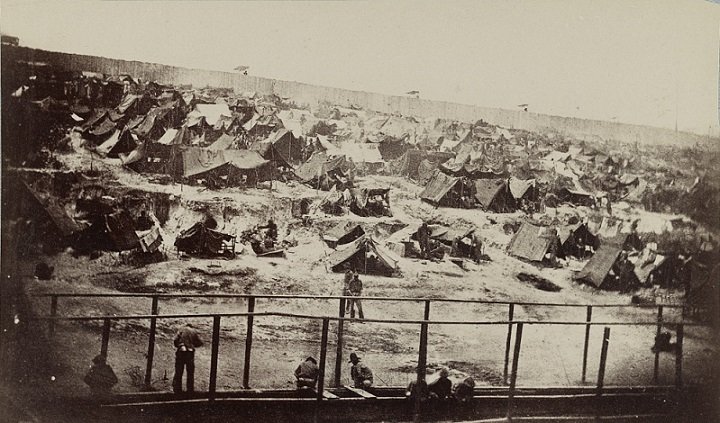
Private Adrian, Frederick., Company E. Died at Andersonville Prison, September 9, 1864; grave 8,2944.
Private Boden, William H., Company F. Died at Andersonville Prison, August 13, 1864; grave 5475.
Private Cornelius, James, Company H. Died at Andersonville Prison, August 24, 1864; grave 6738.
Private Dack, Charles H., Company H. Died at Andersonville Prison, September 18, 1864; grave 8187.
Corporal Foster, Erastus S., Company K. Died at Andersonville Prison, January 17, 1865; grave 12473.
Private Frisby, Alonzo, Company M. Died at Andersonville Prison, February 8, 1864.
Private Hill, J. H., Company F. Died at Andersonville Prison, August 11, 1864; grave 4489.
Sergeant, Laramore, William, Company E. Died at Andersonville Prison, August 16, 1864; grave 5906.
Corporal Martin, Jefferson, Company K. Died at Andersonville Prison, July 27, 1864, grave 4.071.
Private, O’Mira, Daniel J., Company E. Died at Andersonville Prison, October 3, 1864; grave 10279.
Private, Osborn, Daniel J. W., Company H. Died at Andersonville Prison, October 7, 1864; grave 10,469.
Private, Perry, James, Company G. Died at Andersonville Prison, September 20, 1864; grave 9,313.
Private, Sleek, Philip, Company E. Died at Andersonville Prison, October 11, 1864; grave 10,663.
Private, Slick, Phillip, Died at Andersonville Prison, October 11, 1864; grave 10663.
Private, Sutee, Benjamin, Company I. Died at Andersonville Prison, November 4, 1864; grave 11808.
Private, Sutton, Martin, Company M. Died at Andersonville Prison, August 13, 1864; grave 5515.
Private, Tayler, Harmon, Company E. Died at Andersonville Prison, September 29, 1864; grave 10036.
Corporal, Waldo, Judson M., Company K. Died at Andersonville Prison, October 12, 1864; grave 10756.
Private, Whipp, Charles, Company E. Died at Andersonville Prison, September 4, 1864; grave 8713.
Died at Cahaba Prison
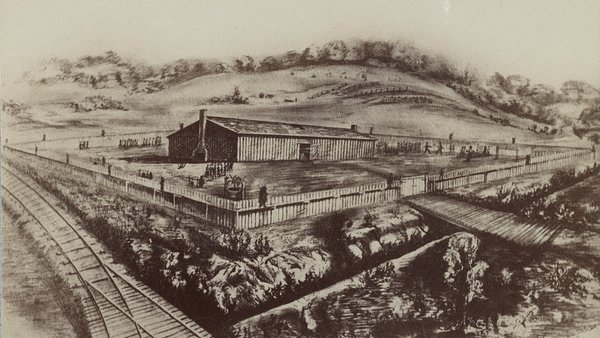
Private Howard, Patrick, Company B. Died at Cahaba Prison, Ala., March 28, 1864.
Private, Pierson, Swanson, Company H. Died at Cahaba Prison, Ala., April 15, 1865.
Died at other Prisons
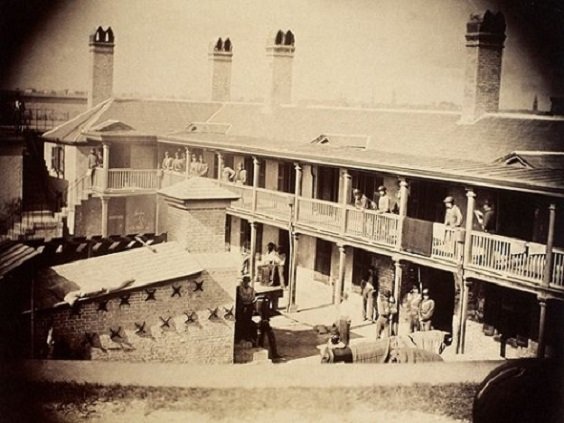
Castle Pinckney
Private, Lewis, Henry, Company H. Died at Charleston, S. C. in prison.
Private, McDade, Alfred, Company I. Died about July 1, 1864, in a rebel prison at Okolona, Miss.
Andersonville Prison
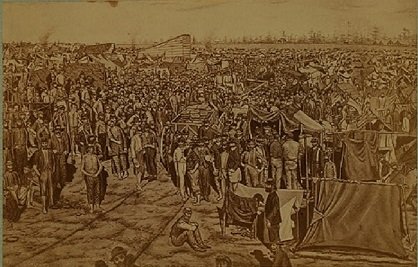
Andersonville Prison (also known as Camp Sumter) was one of the largest confederate prison camps during the Civil War. Over the course of 14 months, 45,000 Union soldiers passed through the prison and nearly 13,000 of them died from conditions like diarrhea, dysentery and starvation. When Harper’s Weekly published photos of prisoners after the war, Americans were shocked to see the POWs reduced to skin and bones.
The 16-acre prison opened in Andersonville, GA, in February of 1864, intended to hold 10,000 prisoners. By June, the population had ballooned to twice that size. “Place so full can Scarcely Walk,” wrote one miserable prisoner. Confederates hastily built an extra ten acres, but the prison was still overcrowded and low on resources. Food was especially scarce; a typical daily meal for the prisoners was a slice of cornbread and a paltry piece of pork and the food was often rotten. “This is no other than a place of Starvation – a disgrace to any Government,” the same prisoner wrote.
Many POW’s lacked basic shelter and clothing to protect them from the elements. “A good many tore up their underclothes, drawers, &c., and
sewed them together and managed to make a little shelter,” recounted a prisoner. Despite rampant conditions like scurvy and gangrene, medical supplies were in short supply. “Many undressed wounds were fly-blown and swarming in maggots,” wrote an imprisoned Union captain.
Prisoners didn’t just die from disease, they were also killed if they crossed “the deadline,” a line of wooden posts that stood about 19 feet from the stockades. Prisoners who ventured beyond this line were liable to be shot by guards. Some men desperate to end their misery, intentionally stepped over the line.
After the war, Captain Henry Wirz, the commandant at Andersonville Prison, was found guilty of “conspiring to impair and injure the health and destroy the lives of federal prisoners” and “murder in violation of the laws of war.” Many prisoners testified against him, though some supporters argued that he was a scapegoat who was merely following orders. Either way, he was hanged at Capitol prison on November 10, 1865.
Remembering the backbone of the Civil War
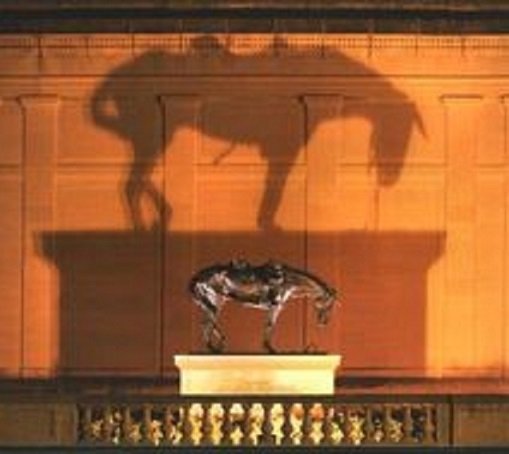
Without them, the canvas of the war would have been painted very differently. From 1861-1865, there would be over one and one half million horses and mules of the Union and Confederate Armies would be killed, wounded or die from disease. For every soldier killed during the Civil War, almost five horses met a similar fate.
One cannot overstate the importance of both horses and mules during the Civil War. The cavalry on both sides rode them. The material and supplies that each side depended upon was hauled by them. The artillery pieces and heavy guns could not have been moved from battle to battle, or maneuvered during battle, without them. They carried Generals and other high ranking officers into battle, and they transported the wounded soldiers away from the battle-field to hospitals behind the lines.
An order from Major General William T. Sherman to his troops in 1864 shows the value of the horse to the Army: “Every opportunity at a halt during a march should be taken advantage of to gut grass, wheat, or oats and extraordinary care be taken of the horses upon everything depends.”
Let us never forget their courage, loyalty and sacrifice that they gave to all.


